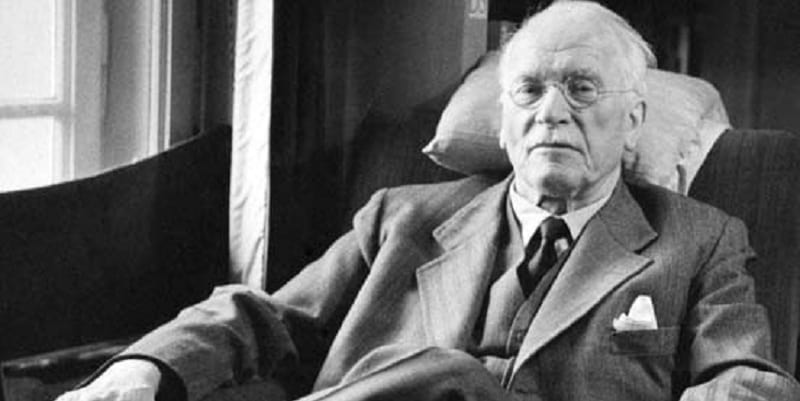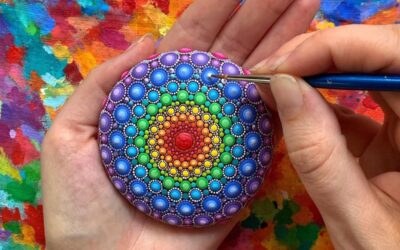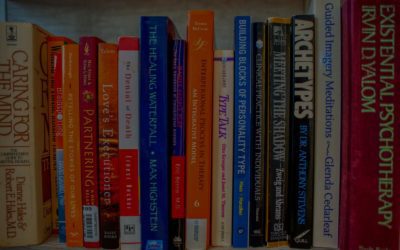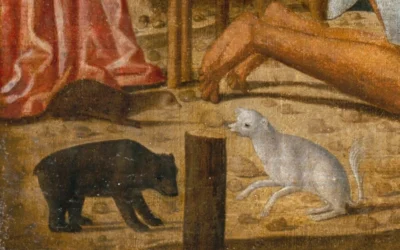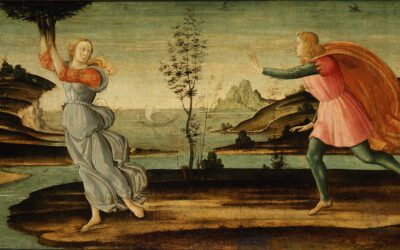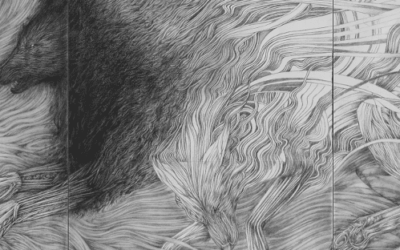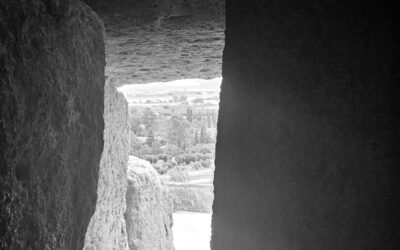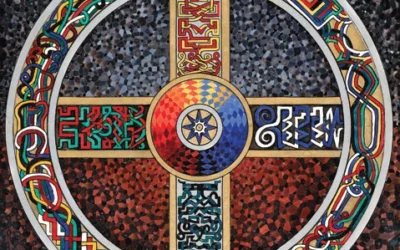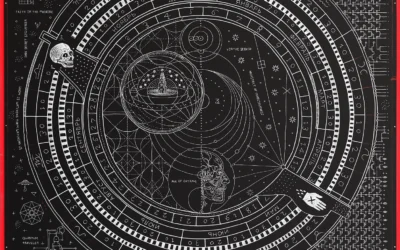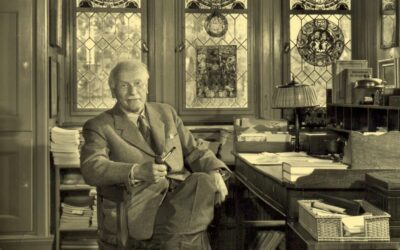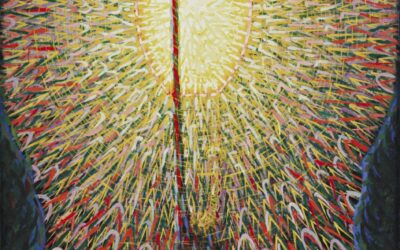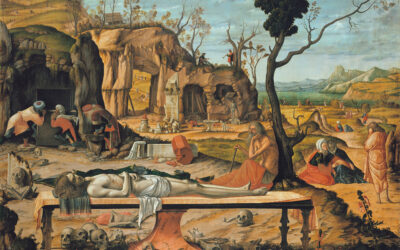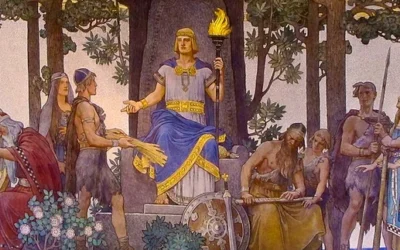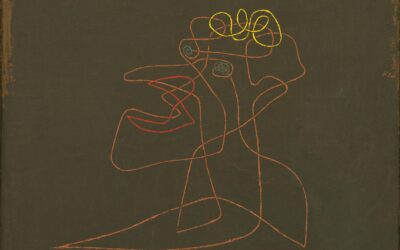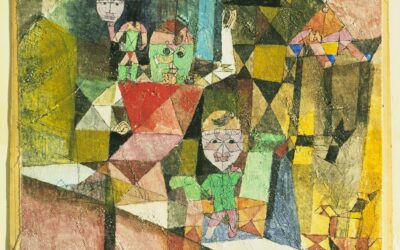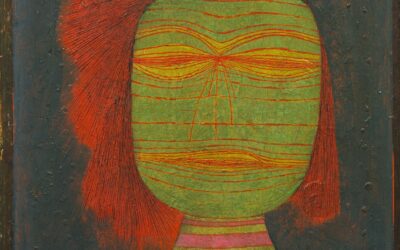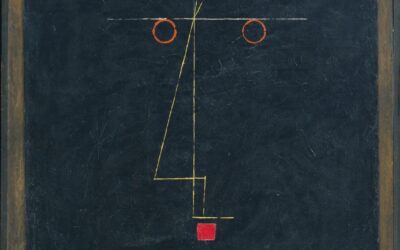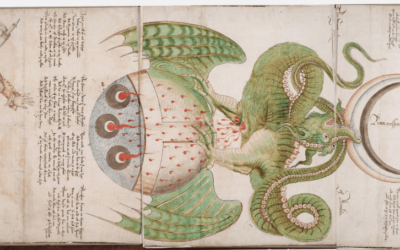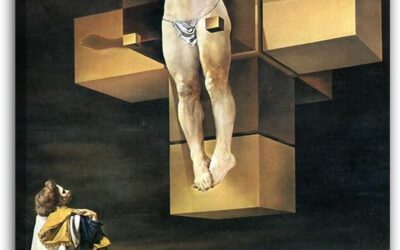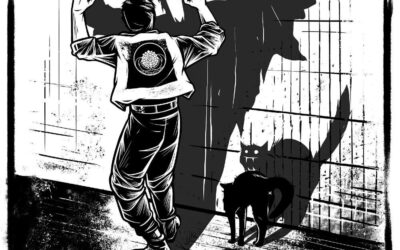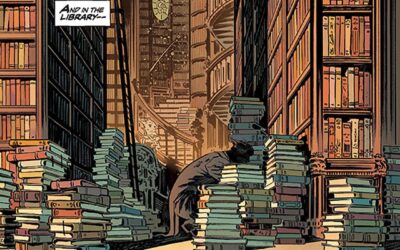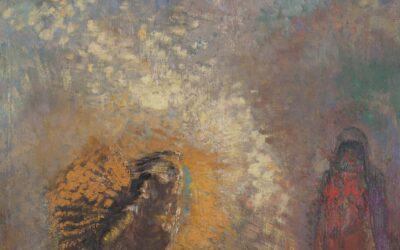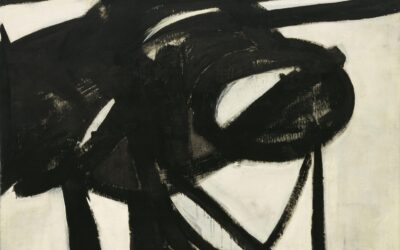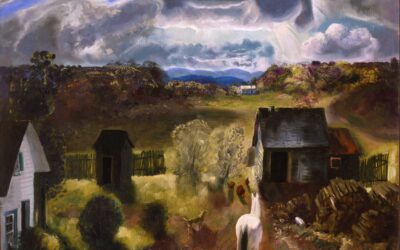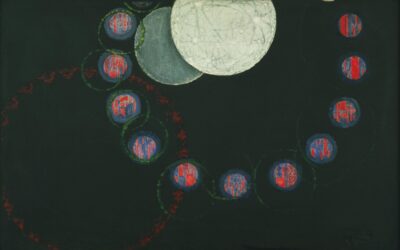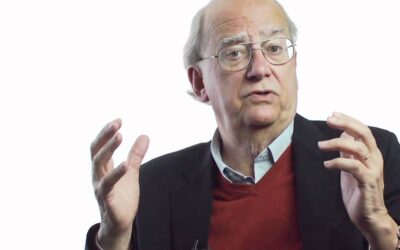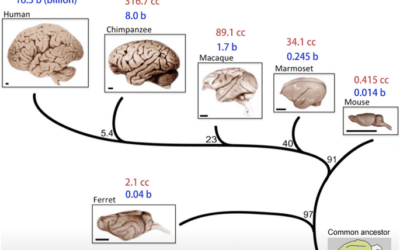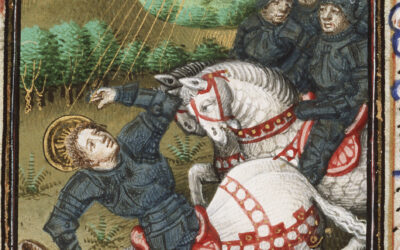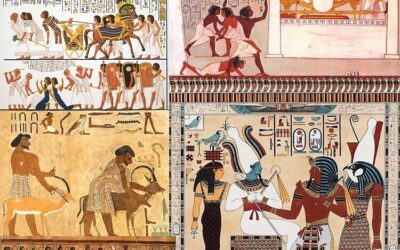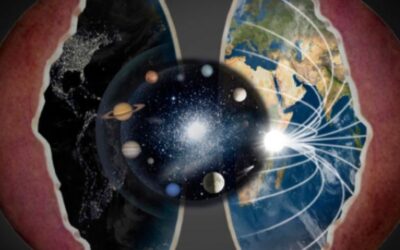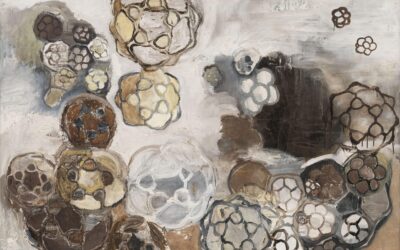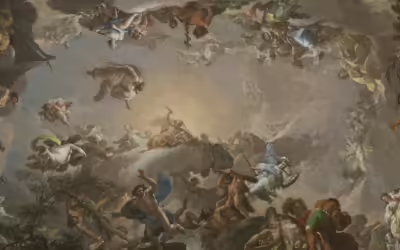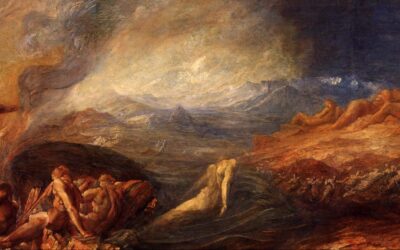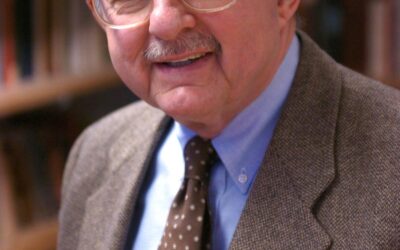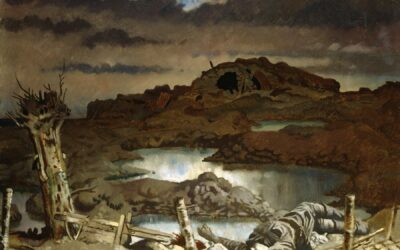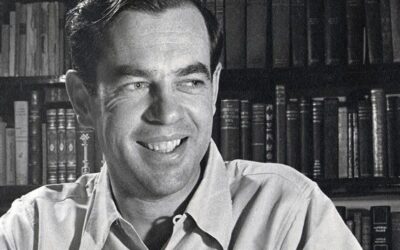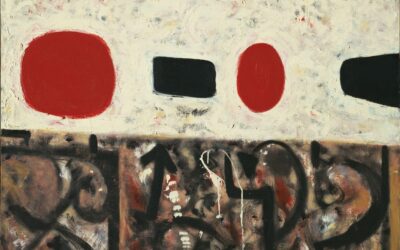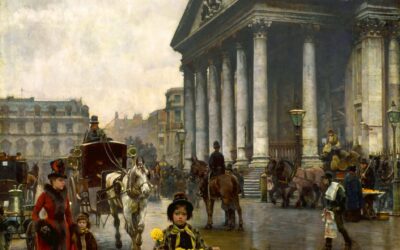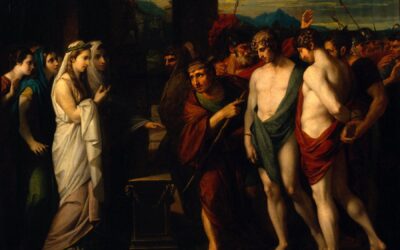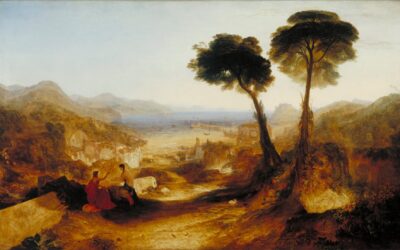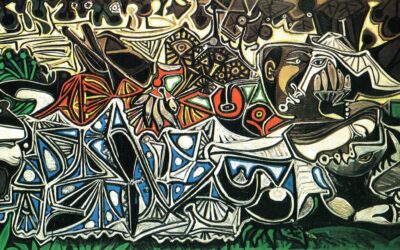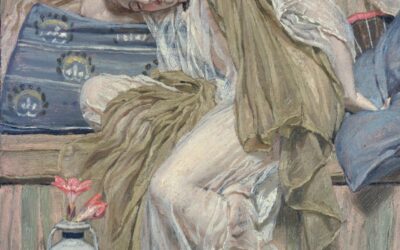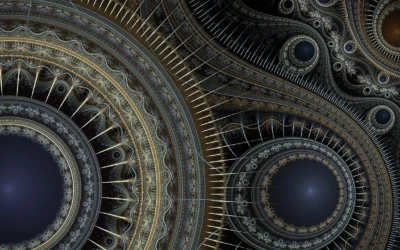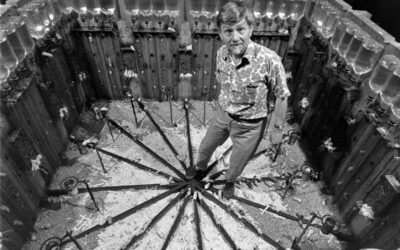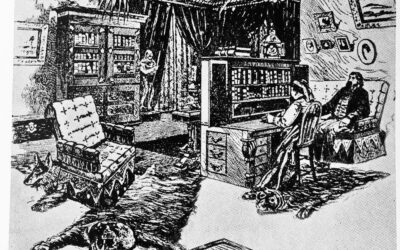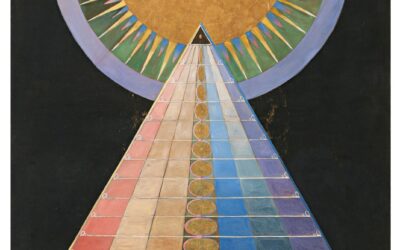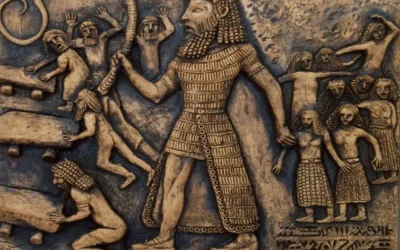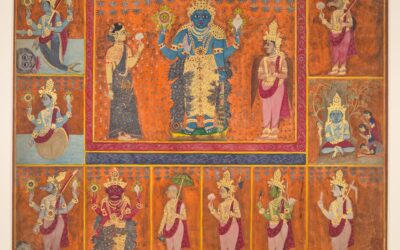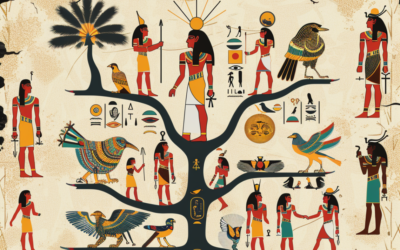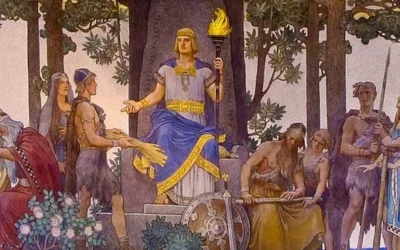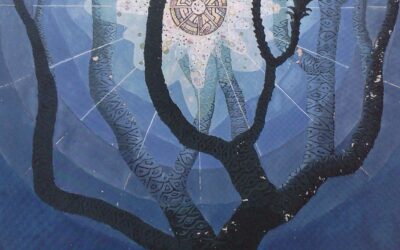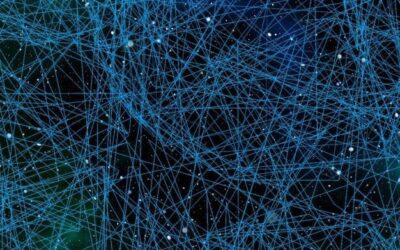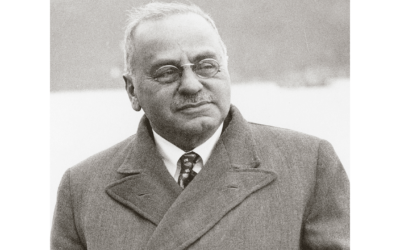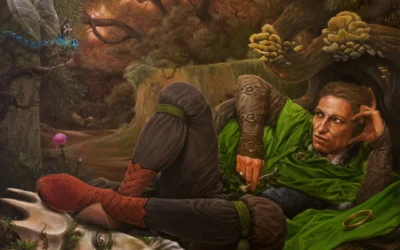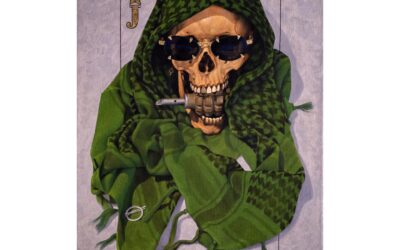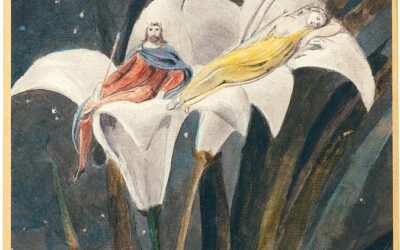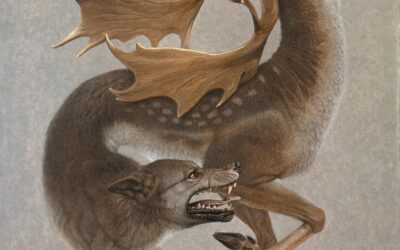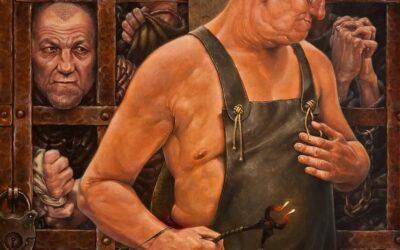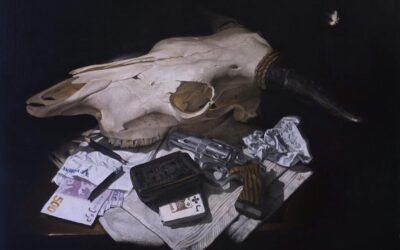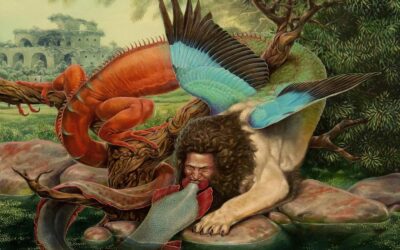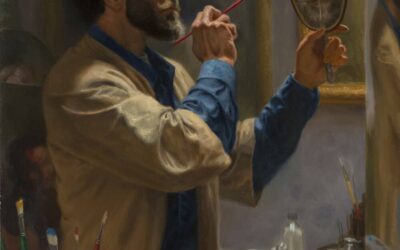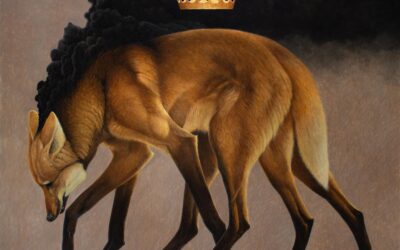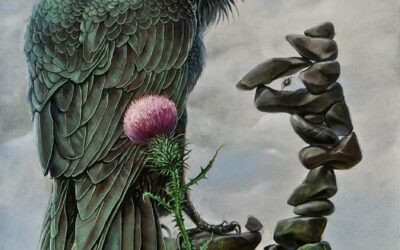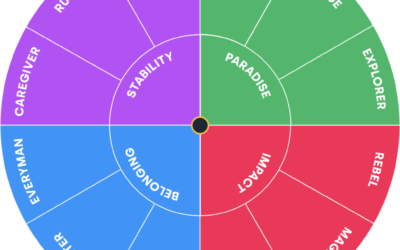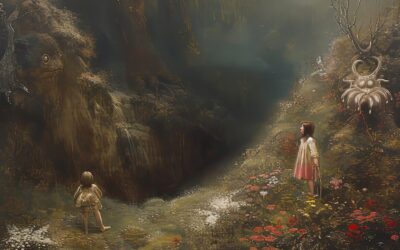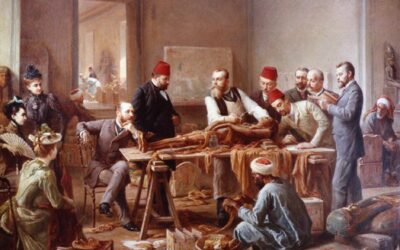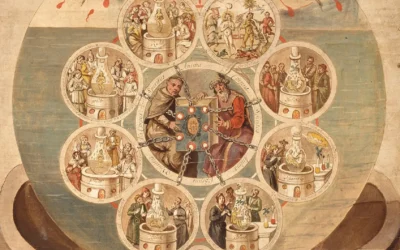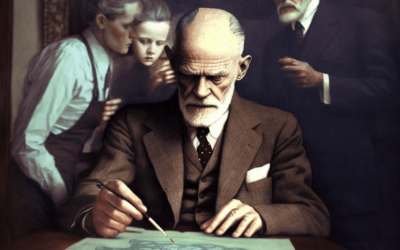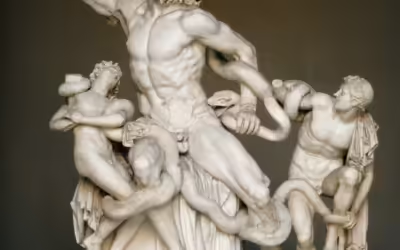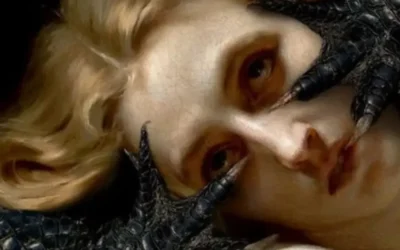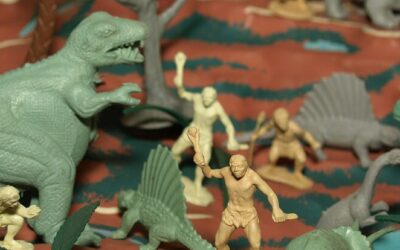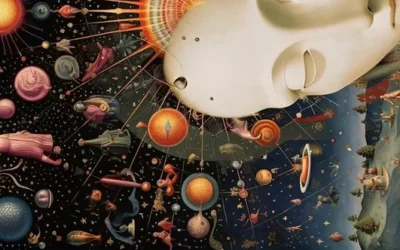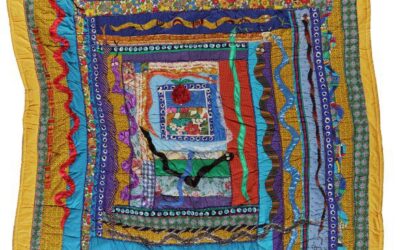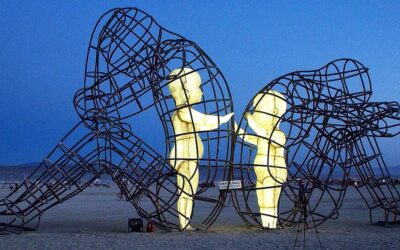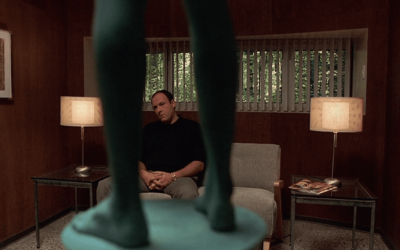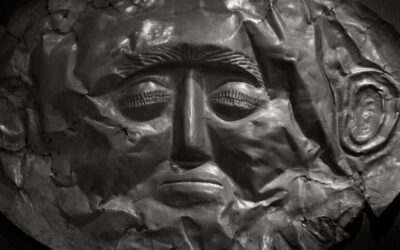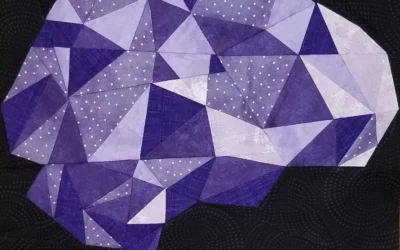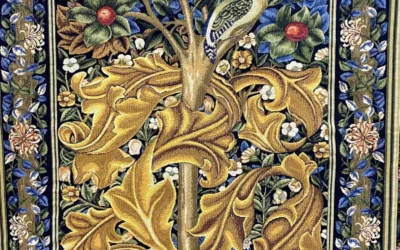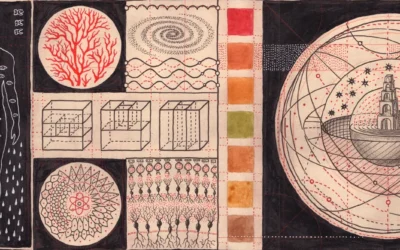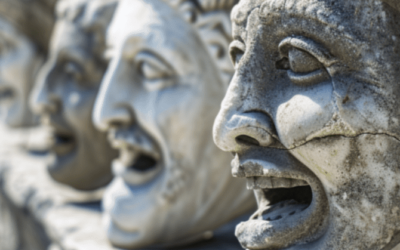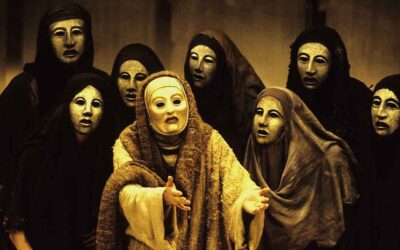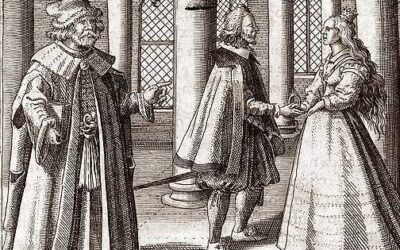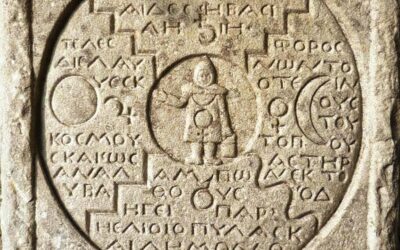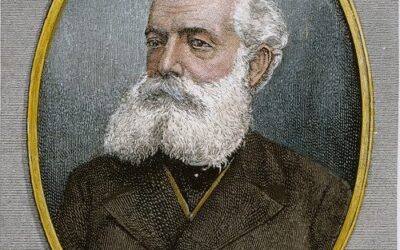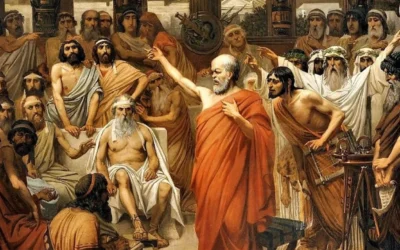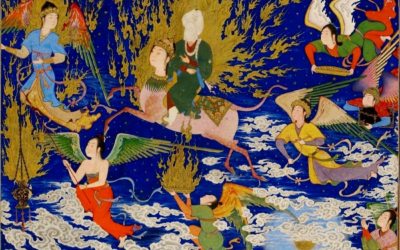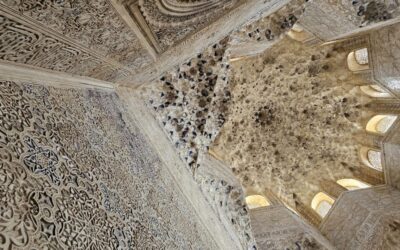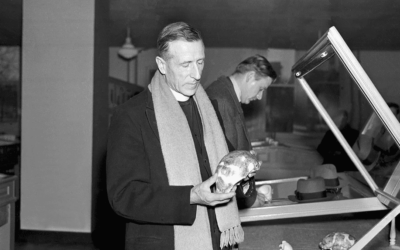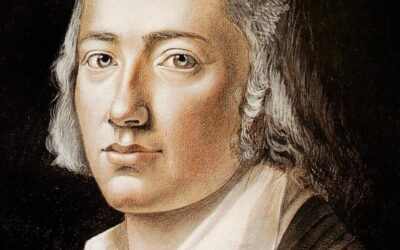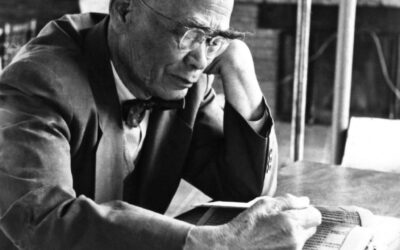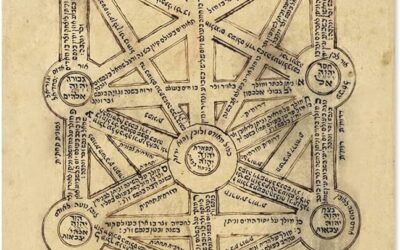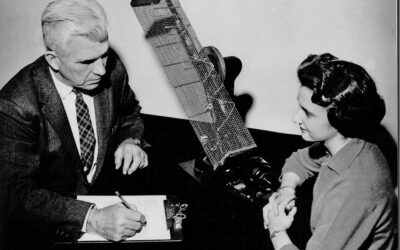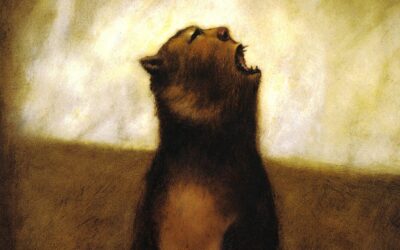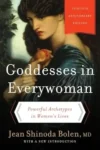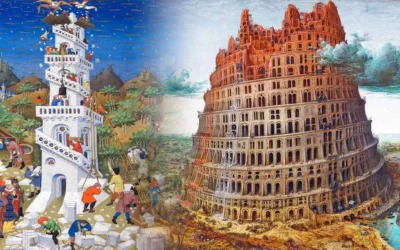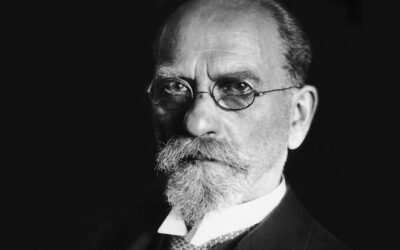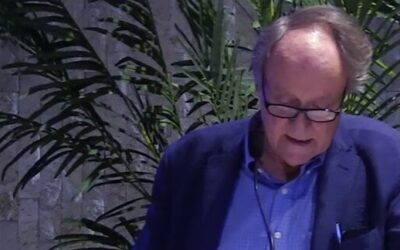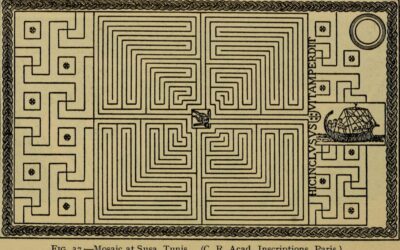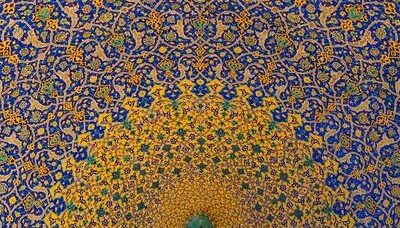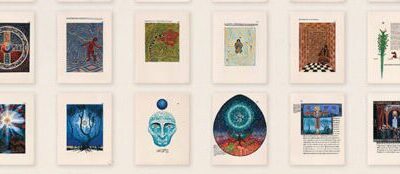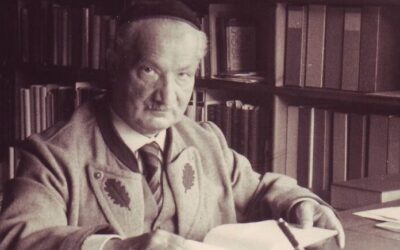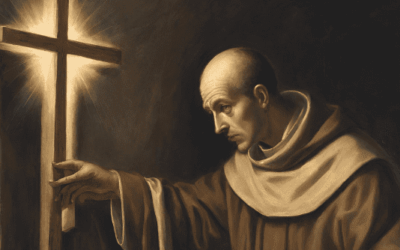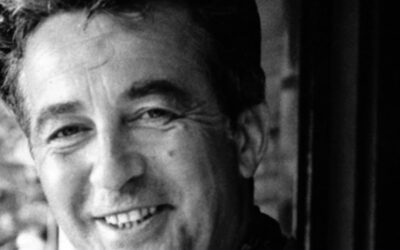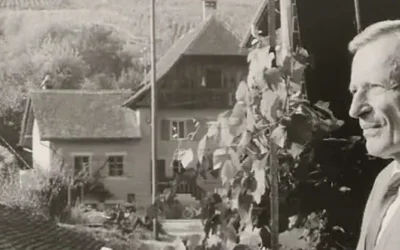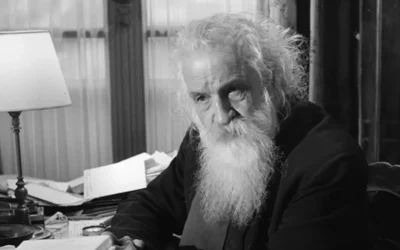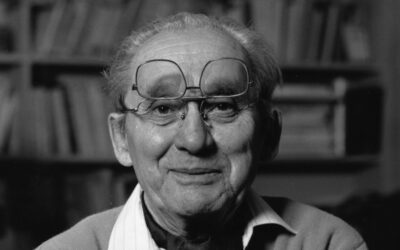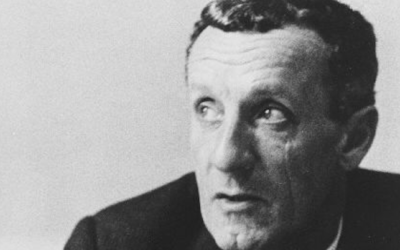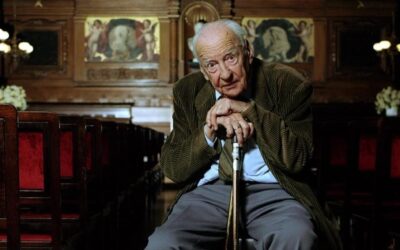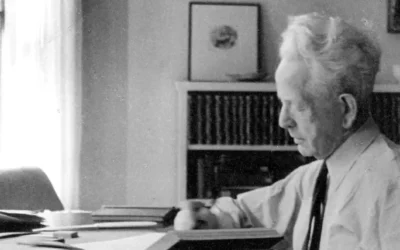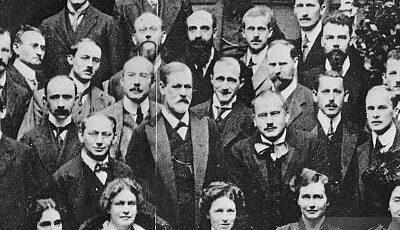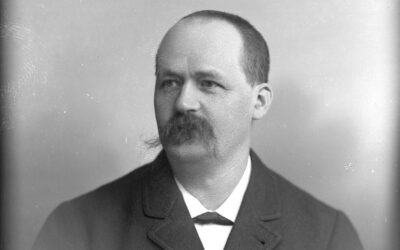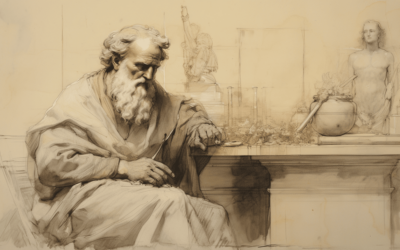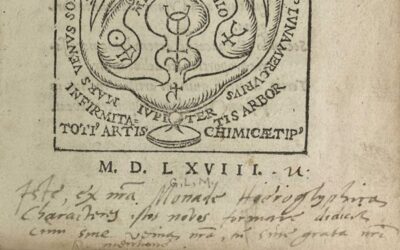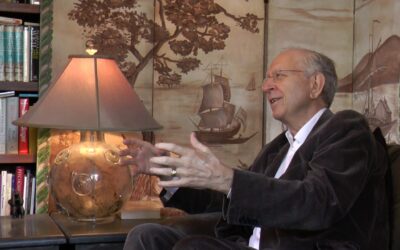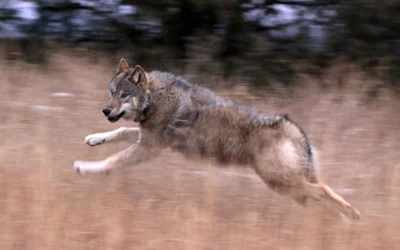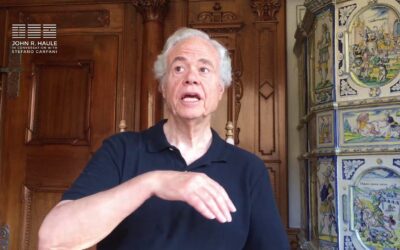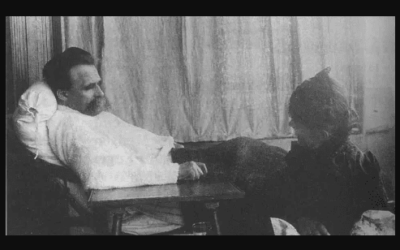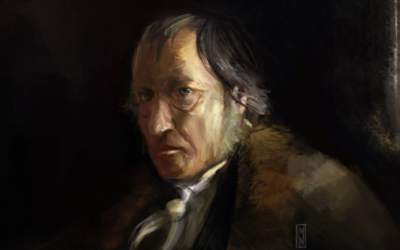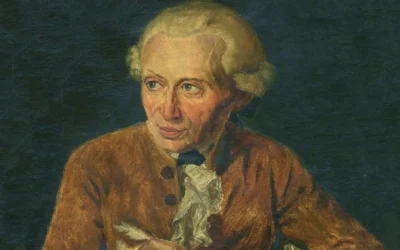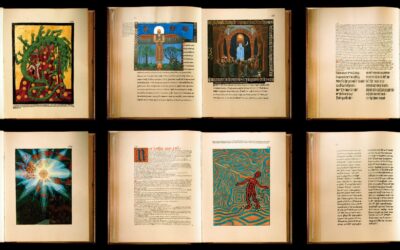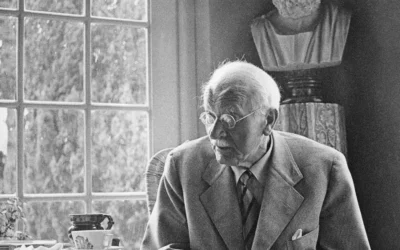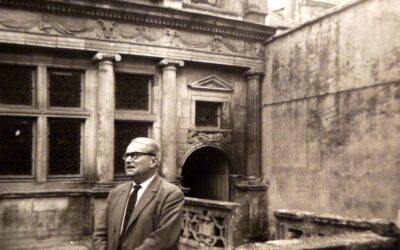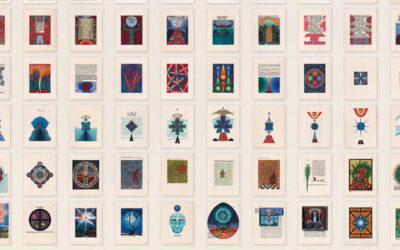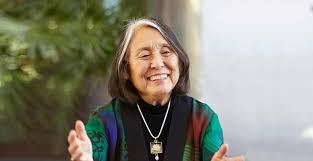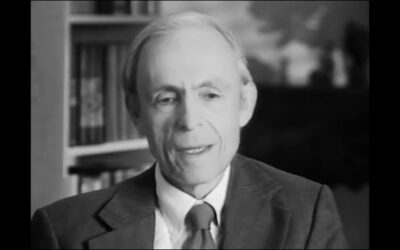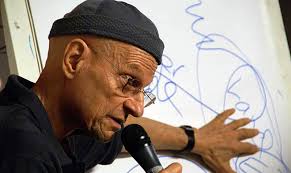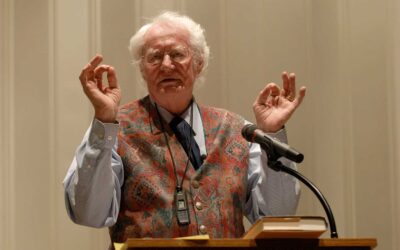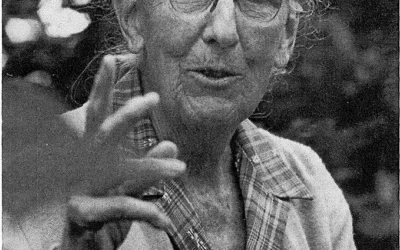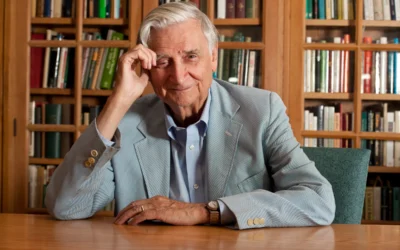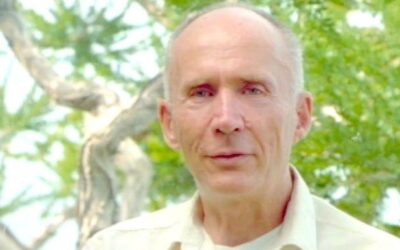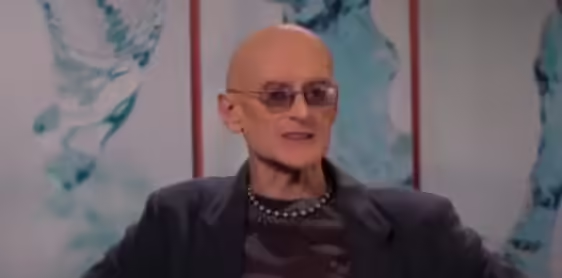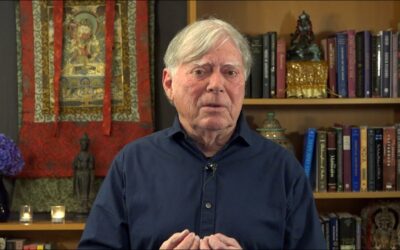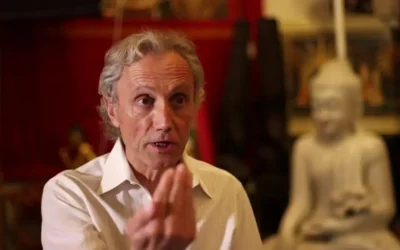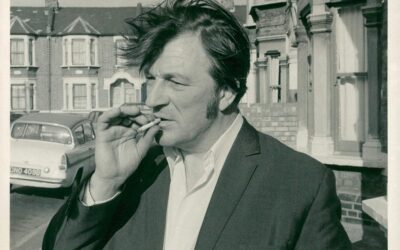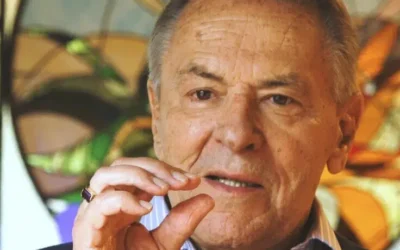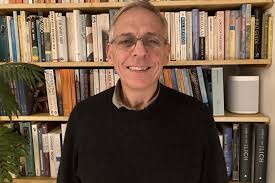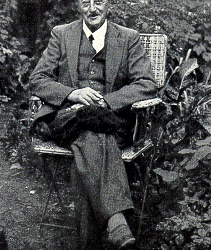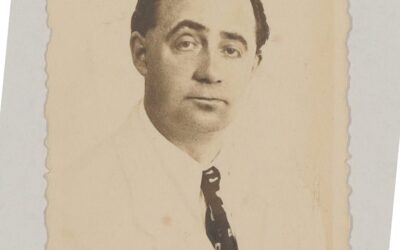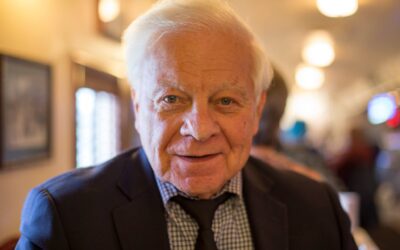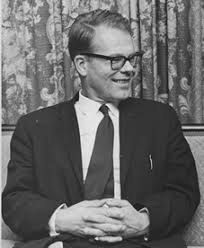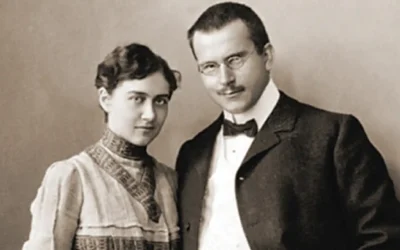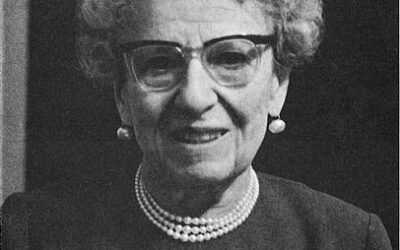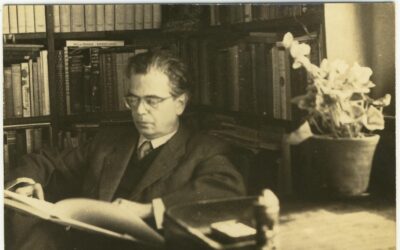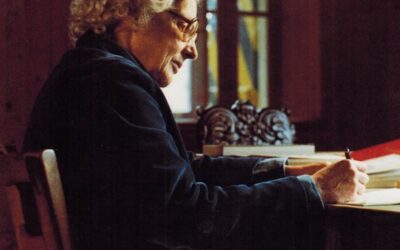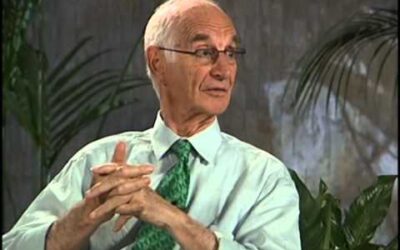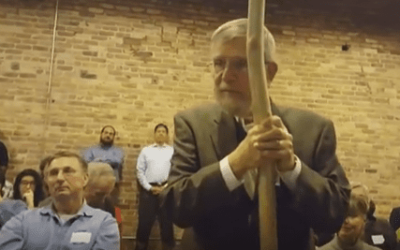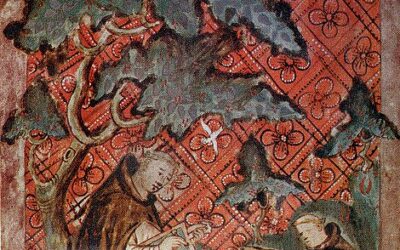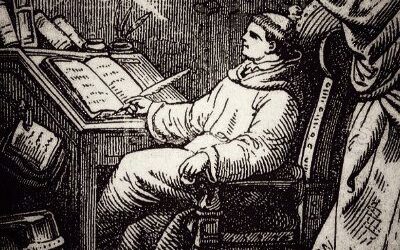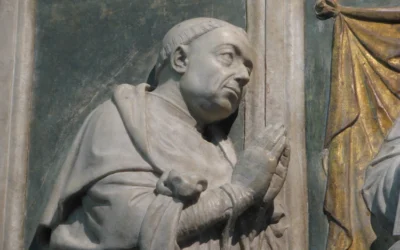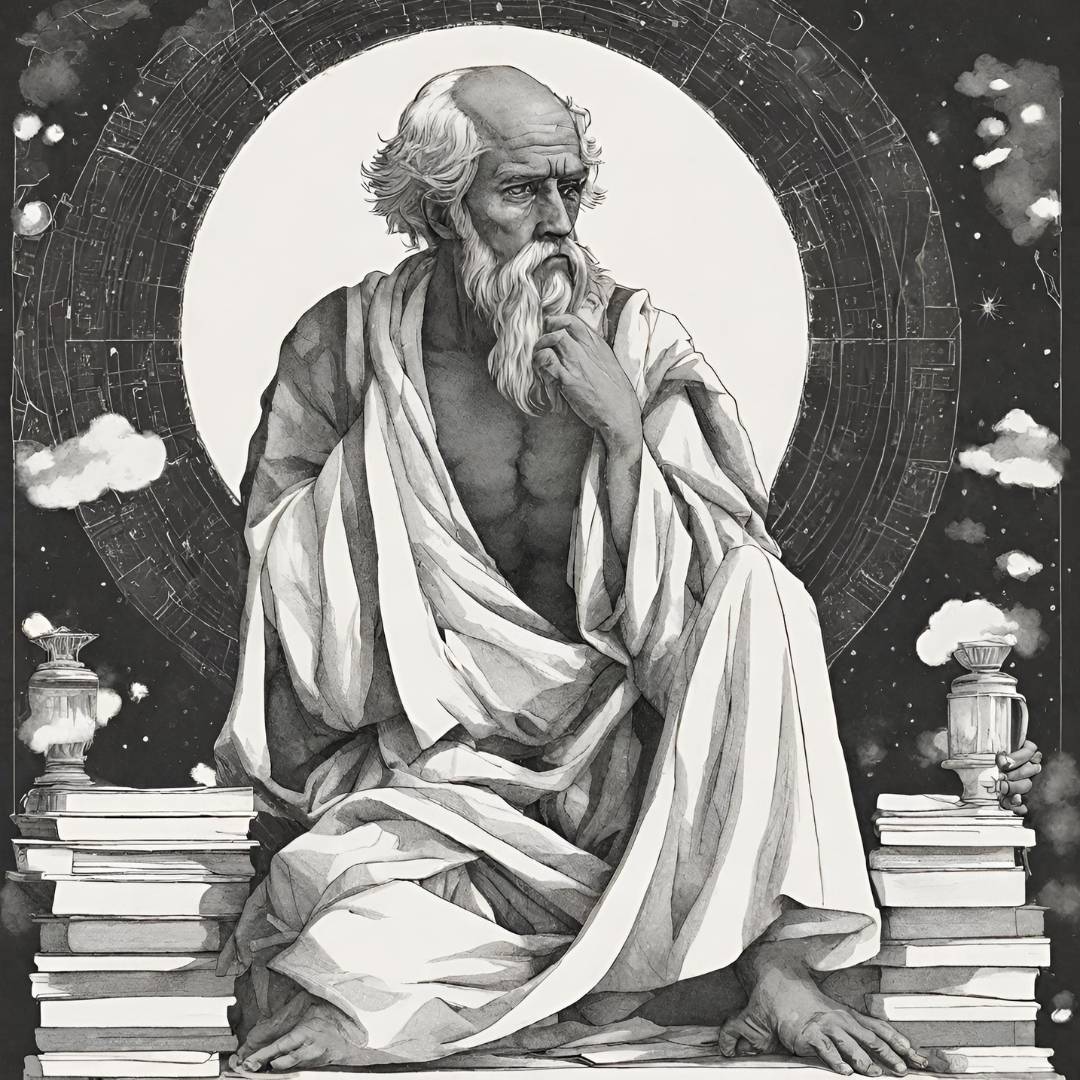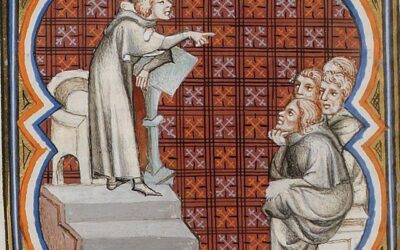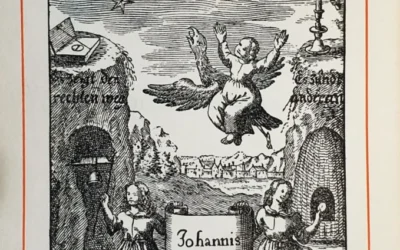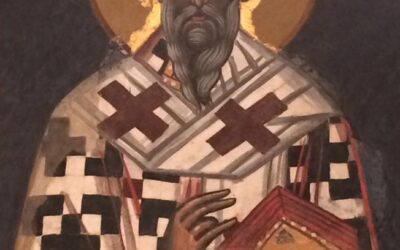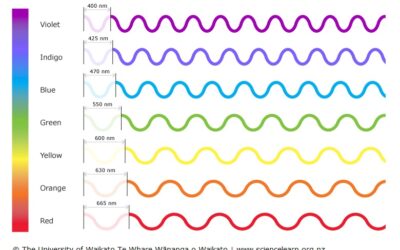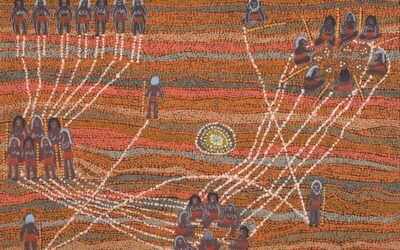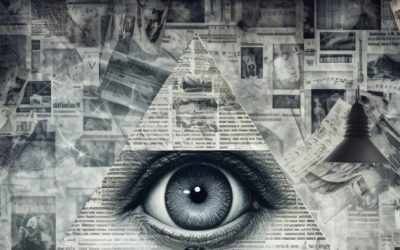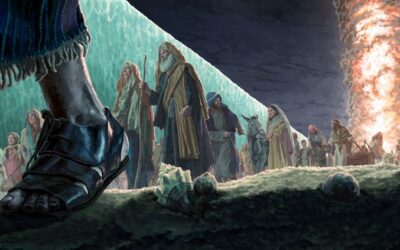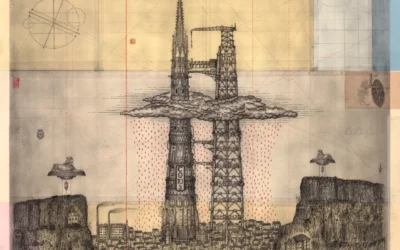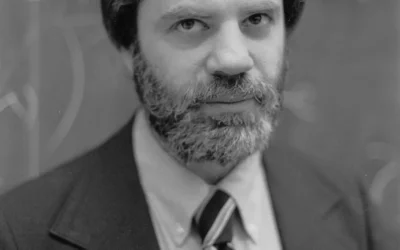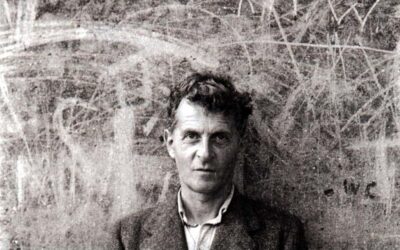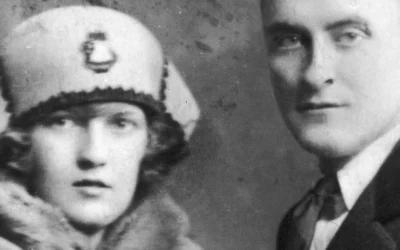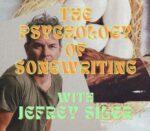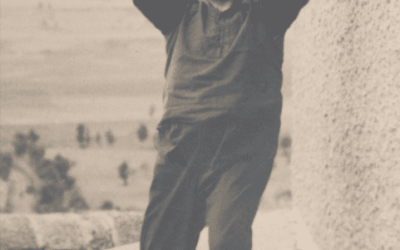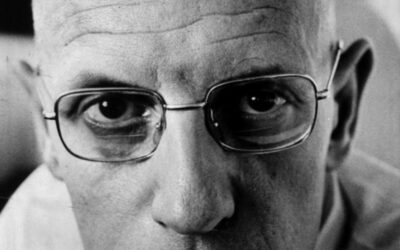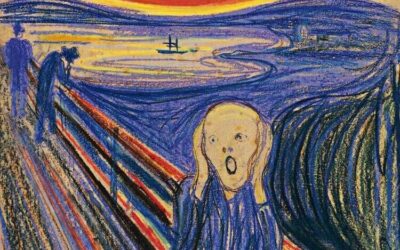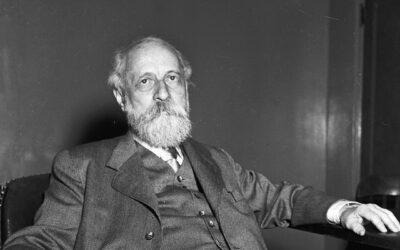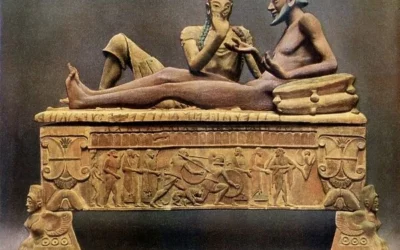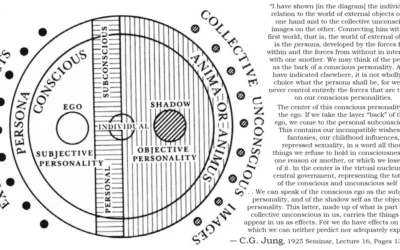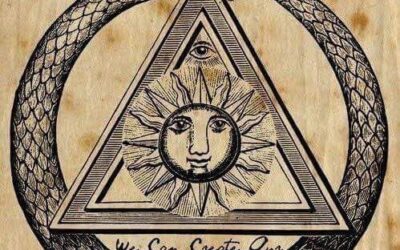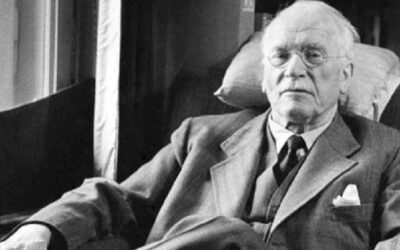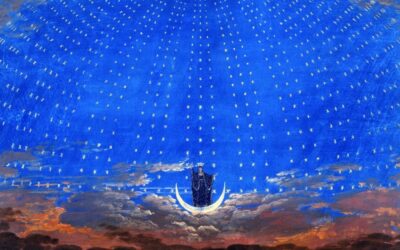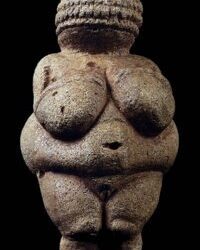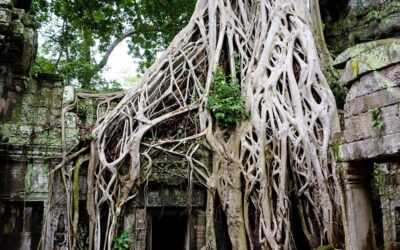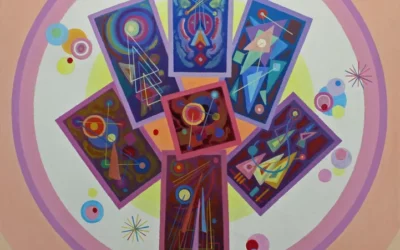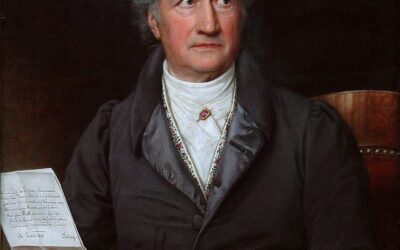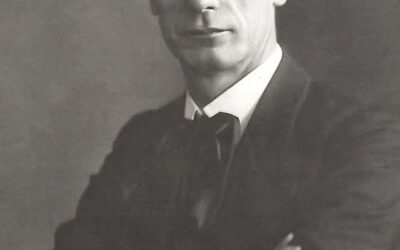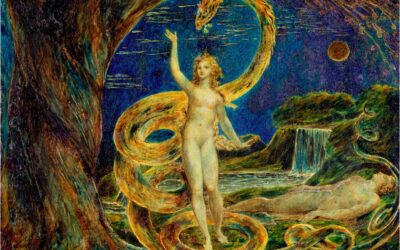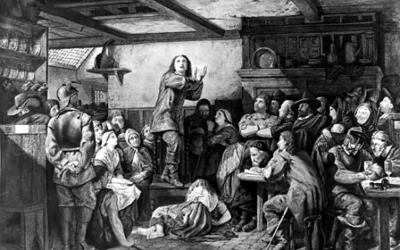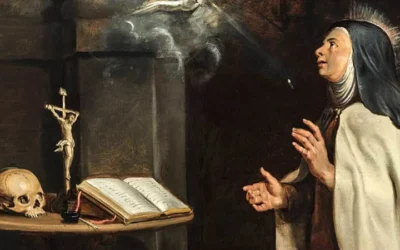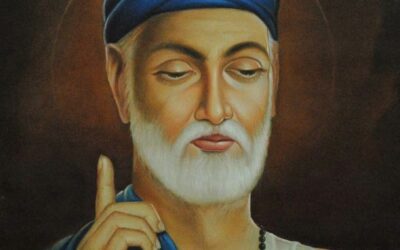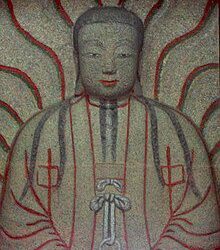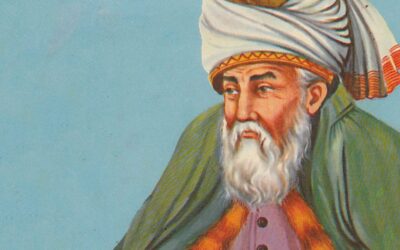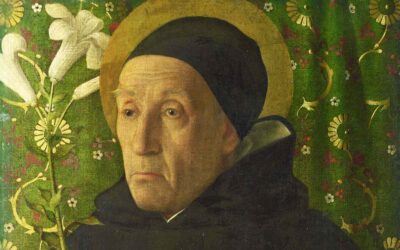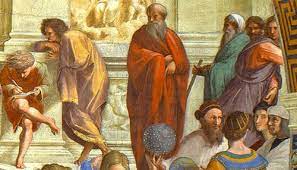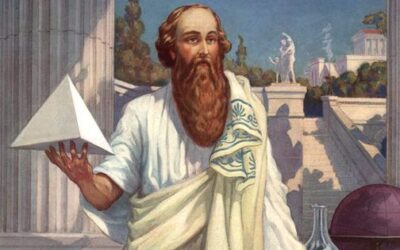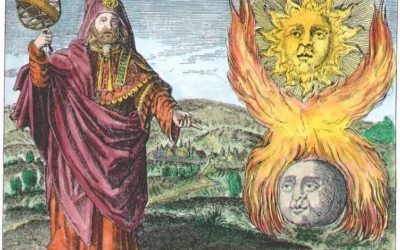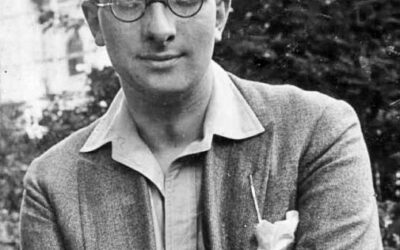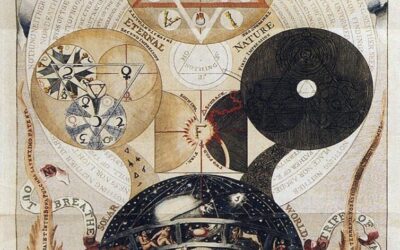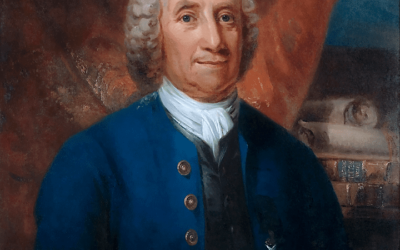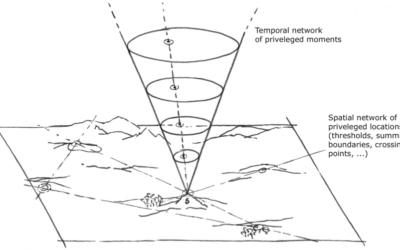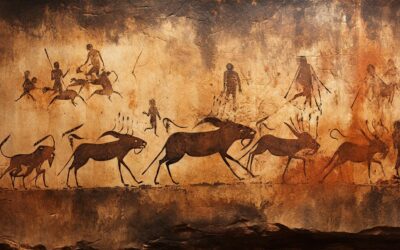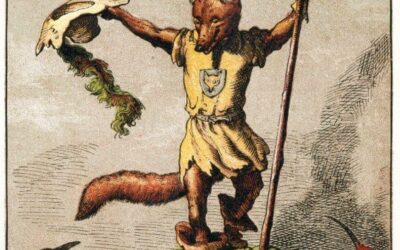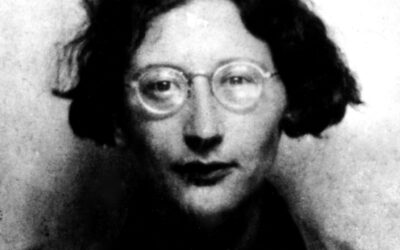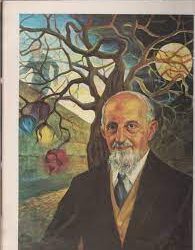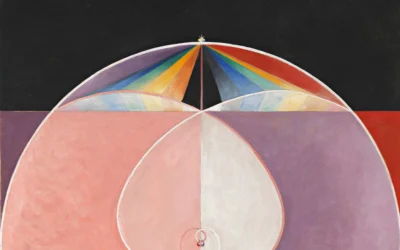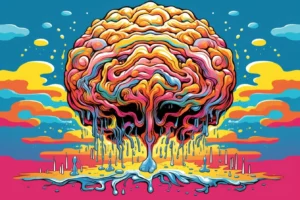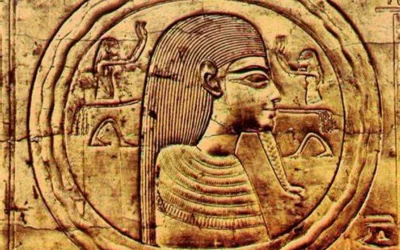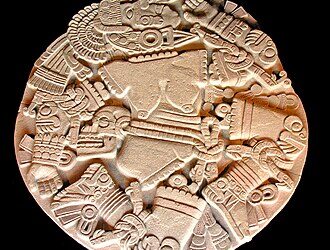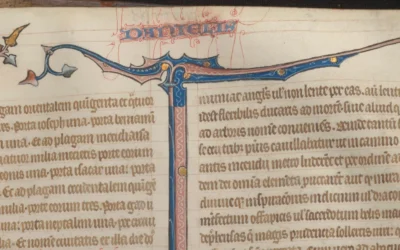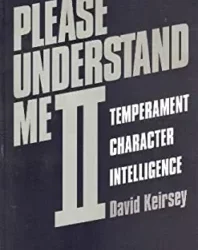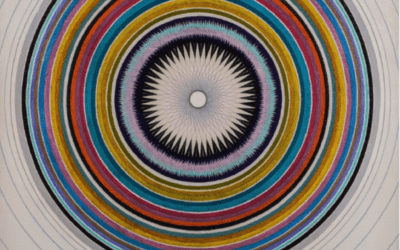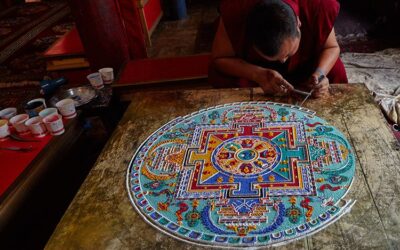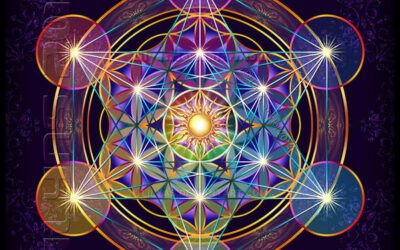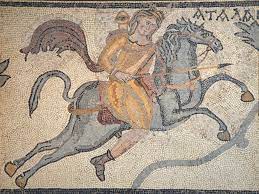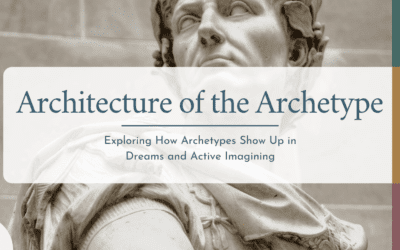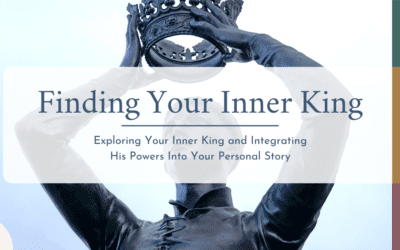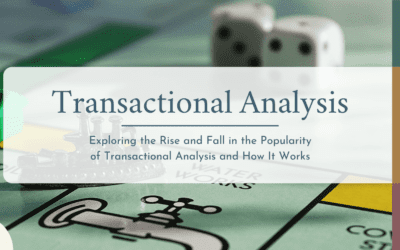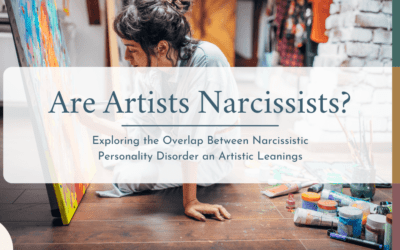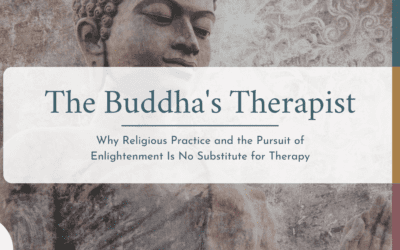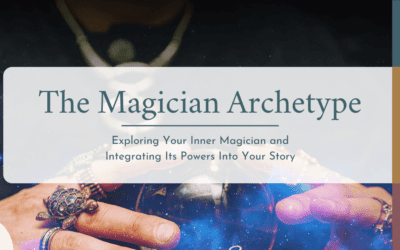"I don't know where I end and he begins," Elena confessed, tears streaming down her face. "I've lost myself completely in this relationship. When Carlos is happy, I'm happy. When he's stressed, I'm stressed. When he needs something, I drop everything to help him. I used to think this meant I was a loving partner, but now I realize I have no idea who I am outside of taking care of him." Elena's story illustrates one of the most common yet misunderstood relationship patterns: codependency. Often disguised as love,...
Jungian Concepts and Depth Psychology: Exploring the Hidden Depths of the Human Psyche
Ancient Wisdom Meets Modern Therapeutic Practice in Birmingham
Welcome to Taproot Therapy Collective’s exploration of Jungian psychology and depth therapeutic approaches that honor the profound complexity of human consciousness. As Birmingham’s premier integrative therapy practice, we recognize that lasting healing often requires venturing beyond surface symptoms to engage with the deeper patterns, symbols, and archetypal forces that shape our inner lives.
Understanding Depth Psychology and Jungian Analysis
Our Jungian Concepts and Depth Psychology blog category delves into Carl Jung’s revolutionary insights into the human psyche, exploring how concepts like the collective unconscious, archetypes, shadow work, and individuation process continue to transform lives in contemporary therapeutic practice. We examine how these timeless psychological principles illuminate personal struggles while offering pathways toward wholeness and authentic self-expression.
This approach builds on the comprehensive therapeutic philosophy outlined on our main services page, where we emphasize that therapy involves more than symptom reduction and embrace individualized care that honors each person’s unique psychological landscape and life calling.
Core Jungian Concepts in Modern Therapy
The Collective Unconscious and Archetypes represent Jung’s groundbreaking discovery that humans share universal psychological patterns manifesting through archetypal figures like the Hero, Anima/Animus, Shadow, and Self. These patterns appear in dreams, relationships, creative expression, and life transitions, offering profound frameworks for understanding personal experiences within larger human contexts.
Shadow Work and Integration involves courageously engaging with rejected, denied, or unconscious aspects of personality that often contain vital energy and wisdom. Rather than eliminating difficult emotions or traits, Jungian approaches seek integration and conscious relationship with all parts of the psyche. Our exploration of shadow concepts appears throughout our analysis of psychological storytelling and character development, where archetypal patterns illuminate both personal growth and creative expression.
Individuation Process describes the lifelong journey toward psychological wholeness and authentic self-realization that Jung considered the central task of human development. This process involves integrating conscious and unconscious elements, reconciling opposing forces within the psyche, and developing a mature relationship with the Self archetype that transcends ego-centered concerns.
Dreams and Active Imagination serve as direct communications from the unconscious mind, offering symbolic guidance for personal growth and healing. Jungian dream work treats dream images as meaningful expressions of the psyche’s self-regulating wisdom rather than merely processing daily experiences or wish fulfillment.
Jung’s Personal Journey and The Red Book
Understanding Jung’s own confrontation with the unconscious through his intensive self-analysis provides crucial context for depth psychological work. Our detailed examination of Carl Jung’s The Red Book reveals how Jung’s personal descent into the unconscious depths generated the foundational insights that continue to guide depth therapeutic practice today.
The Red Book demonstrates how engaging with unconscious material through writing, drawing, and active imagination can facilitate profound psychological transformation. Jung’s sixteen-year process of documenting his inner experiences shows how sustained attention to unconscious communications creates possibilities for healing and individuation that extend far beyond traditional therapeutic approaches.
Research-Based Insights from Leading Institutions
Contemporary research from C.G. Jung Institute of Chicago, International Association for Analytical Psychology, and Pacifica Graduate Institute continues validating Jung’s insights while expanding applications to modern therapeutic challenges including trauma recovery, addiction treatment, relationship counseling, and creative blocks.
Neuroscience research increasingly supports Jungian concepts, with studies on default mode networks, archetypal activation patterns, and symbolic processing demonstrating neurological correlates for depth psychological phenomena. Research from University of California San Francisco and Stanford University School of Medicine shows how archetypal patterns activate across cultures and individuals, supporting Jung’s collective unconscious hypothesis.
Birmingham Applications of Depth Psychology
Living in Birmingham, Alabama, creates unique opportunities for depth psychological work that honors regional cultural patterns, historical trauma, and collective healing needs. Birmingham’s pivotal role in civil rights history connects with archetypal themes of heroic transformation, standing against oppression, and collective shadow confrontation that appear throughout depth psychological work.
Southern storytelling traditions, gospel music influences, and African American spiritual practices offer rich archetypal material that enhances Jungian approaches while honoring cultural authenticity. Industrial heritage themes of fire, forge, and transformation provide metaphorical frameworks for understanding personal and collective change processes.
Practical Applications in Therapeutic Work
Dream Analysis and Interpretation uses Jungian methods to explore dream symbols, recurring themes, and archetypal figures that appear in unconscious communications. Rather than predetermined dream dictionaries, this approach honors individual associations while recognizing universal symbolic patterns that guide personal development and healing.
Creative Expression and Art Therapy draws on Jung’s understanding of creative work as direct expression of unconscious contents. Painting, writing, sculpture, and other artistic modalities become therapeutic tools for accessing and integrating unconscious material while developing authentic self-expression.
Complex Analysis examines how autonomous psychological complexes affect behavior, relationships, and emotional responses. Understanding personal complexes through Jungian lens helps individuals develop conscious relationship with triggered patterns while accessing the valuable energy contained within complex formations.
Transference and Countertransference Work explores how archetypal patterns manifest in therapeutic relationships, creating opportunities for healing projection, developing authentic relating skills, and working through unresolved psychological material through relationship dynamics.
Integration with Contemporary Evidence-Based Practice
While rooted in depth psychological tradition, our Jungian approaches integrate with contemporary evidence-based modalities detailed in our psychology and research section. Internal Family Systems therapy shows remarkable compatibility with Jungian concepts of psychological parts and Self energy, while EMDR and trauma therapies benefit from archetypal frameworks for understanding trauma responses and recovery patterns.
Somatic approaches align with Jung’s emphasis on body wisdom and instinctual knowing, while cognitive therapies gain depth through understanding how archetypal patterns influence thought processes and belief systems. This integration honors both scientific rigor and psychological depth while providing comprehensive treatment options.
Connect with Our Depth Psychology Community
For deeper exploration of Jungian concepts and depth psychological approaches, check out more on the Discover + Heal + Grow Taproot Therapy Collective blog and podcast where we regularly feature Jungian analysts, depth psychologists, and practitioners integrating archetypal insights with contemporary therapeutic work.
Subscribe to our YouTube channel for weekly explorations of Jungian concepts and depth psychology applications, listen to our podcast for extended interviews with depth practitioners and Jungian analysts, follow us on Instagram for daily archetypal insights and psychological wisdom, connect on LinkedIn for professional depth psychology resources, find us on Google Maps for depth-oriented therapy services, and join our Reddit community for discussions on Jungian concepts and individuation journeys.
Featured Article Categories
Our Jungian Concepts and Depth Psychology blog includes Archetypal Psychology exploring universal patterns in personal experience, Shadow Work focusing on integration of rejected psychological material, Dream Analysis using Jungian approaches to unconscious communication, Active Imagination techniques for engaging unconscious contents, Individuation Process supporting authentic self-development, Creative Expression as depth psychological tool, Complex Analysis understanding autonomous psychological patterns, and Contemporary Applications integrating Jungian insights with modern therapeutic practice.
Specialized Depth Psychology Programs
We offer Jungian Dream Analysis Groups for monthly exploration of dream material through archetypal lens, Shadow Work Intensives providing structured approaches to psychological integration, Creative Expression Workshops using art and writing for depth psychological exploration, and Individual Analysis for long-term depth therapeutic relationships focused on individuation and psychological development.
Start Your Depth Psychology Journey Today
The profound insights of Carl Jung and depth psychology offer transformative approaches to understanding yourself and navigating life’s complexities. Our Birmingham-based therapists at Taproot Therapy Collective integrate Jungian concepts with contemporary therapeutic approaches, honoring both psychological depth and evidence-based practice.
Contact Taproot Therapy Collective: 📍 2025 Shady Crest Dr. Suite 203, Hoover, AL 35216
📞 (205) 598-6471
🌐 www.GetTherapyBirmingham.com
🎧 Podcast: gettherapybirmingham.podbean.com
We provide depth-oriented therapy that honors the full complexity of human experience while integrating ancient psychological wisdom with contemporary healing approaches for lasting transformation and authentic self-realization.
Discover + Heal + Grow with Taproot Therapy Collective – Birmingham’s gateway to Jungian psychology and depth therapeutic transformation.
The Relationship Mirror: How Your Partner Reflects Your Unconscious Patterns
Jungian Therapy and Depth Psychology
"I keep attracting the same type of person," Marcus said, frustration evident in his voice. "Different faces, different backgrounds, but somehow I always end up with partners who are emotionally unavailable, highly critical, and make me feel like I'm walking on eggshells. My friends tell me to just choose better, but I don't understand why I keep creating this pattern." Marcus's story reveals one of the most profound insights from depth psychology: our relationships are mirrors reflecting our unconscious patterns...
When Your Type Attracts Its Opposite: Understanding Psychological Compatibility and Conflict
Jungian Therapy and Depth Psychology
"We're complete opposites," Lisa laughed during our first session, "and that's exactly what drew us together. I'm this detail-oriented, practical person who plans everything, and Jake is this big-picture visionary who lives in the moment. I loved his spontaneity, and he loved my groundedness. But now, three years later, the same differences that attracted us are driving us crazy." Lisa's story illustrates one of the most common patterns in relationships: psychological opposites attracting. Research consistently...
Why Your Relationship Keeps Having the Same Fight:
Jungian Therapy and Depth Psychology
The Psychology of Recurring Conflicts "We're having the same fight again," Jessica said, exhaustion evident in her voice. "It doesn't matter what we start arguing about—money, household chores, time with friends—it always ends up in the exact same place. I'm the 'needy' one who wants more connection, and Mark's the 'selfish' one who doesn't care about my feelings. We've been repeating this pattern for three years." Jessica and Mark's story illustrates one of the most frustrating aspects of intimate relationships:...
“5 Signs You’re Dating Your Shadow (And What to Do About It)”
Jungian Therapy and Depth Psychology
Many of us find ourselves repeatedly attracting the same type of partner, despite our conscious desire for something different. Often, we're unconsciously drawn to people who carry our shadow—the disowned, unintegrated parts of ourselves. When we're "dating our shadow," we're essentially seeking completion through another person rather than integration within ourselves. While this creates intense attraction initially, it often leads to painful patterns of conflict, disappointment, and repeating cycles....
“The Anima and Animus Test: Discover Your Inner Opposite in 10 Questions”
Jungian Therapy and Depth Psychology
"The Anima and Animus Test: Discover Your Inner Opposite in 10 Questions" One of Carl Jung's most profound insights was that every person carries within them an image of the opposite gender—what he called the anima (feminine aspect in men) and animus (masculine aspect in women). This inner figure doesn't just influence our dreams and creativity; it profoundly shapes who we're attracted to and how we experience relationships. But most of us are completely unconscious of our anima or animus. We project these inner...
“The Hidden Psychology of Attraction: Why We Fall for Our Shadow Partners”
Jungian Therapy and Depth Psychology
Have you ever wondered why you keep attracting the same type of person, even when you consciously want something different? Or why that initial spark of attraction sometimes leads to the most challenging relationships? The answer lies deep in your unconscious mind, in what Carl Jung called the "shadow"—the parts of yourself you haven't fully acknowledged or integrated. The Magnetic Pull of the Shadow In relationships, we don't just fall in love with another person—we fall in love with parts of ourselves we've...
Subconscious vs Unconscious: The Epic Split Between Jung and Freud That Still Divides Psychology Today
History of Psychotherapy, Jungian Therapy and Depth Psychology, Psychotherapy Biographies: Historical Figures in the History of Psychology
Subconscious vs Unconscious: The Epic Split Between Jung and Freud That Still Divides Psychology Today Introduction: When Giants Collide The relationship between Sigmund Freud and Carl Jung represents one of the most dramatic breakups in intellectual history. What began as a passionate friendship between mentor and protégé in 1907 ended in bitter acrimony by 1913, creating a schism in psychology that persists over a century later. Their split wasn't merely personal—it fundamentally shaped how we understand the...
Understanding Dissociation, Trauma, and Addiction: Insights from Adam O’Brien and the Wounded Healer Institute
Depth Psychology Approaches and Techniques, Jungian Therapy and Depth Psychology
A Revolutionary Approach to Mental Health In a groundbreaking interview between Joel Blackstock and Adam O'Brien, founder of the Wounded Healer Institute, we explore the profound interconnections between dissociation, trauma, and addiction that challenge conventional psychiatric approaches. This comprehensive discussion offers mental health professionals, individuals experiencing dissociation, and anyone interested in alternative healing approaches a fresh perspective on understanding and treating complex...
What is the Daimon? Tracing the Authentic Self Through the History of Psychotherapy
Jungian Therapy and Depth Psychology, Symbolism and Meaning in Psychotherapy
The concept of the daimon—an inner guiding force representing both our authentic self and the source of creative and healing potential—has appeared throughout the history of psychotherapy under various names and conceptualizations. From Socrates' divine sign to contemporary neuroscientific understandings of intuition and trauma, major figures in psychology and psychotherapy have understood this vulnerable center of selfhood that lies paradoxically close to both our greatest gifts and deepest wounds. Through...
The Secret Carl Jung: Uncovering the Censored Material from Memories, Dreams, Reflections
Jungian Therapy and Depth Psychology, Psychotherapy Biographies: Historical Figures in the History of Psychology
Carl Jung remains an enduring subject of fascination, his life and ideas sparking impassioned debate over 60 years after his death. As the founder of analytical psychology, Jung pioneered the exploration of the unconscious mind, dream interpretation, archetypes, and the quest for individuation. His theories have left an indelible mark on everything from psychotherapy and the arts to spirituality and popular culture. Yet even the most dedicated Jung scholars are often unaware of the full extent of his inner world...
The Wounded Healer: Navigating Trauma, Intuition, and Projection in the Helping Professions
Executive and Physician Burnout, Jungian Therapy and Depth Psychology, Psychology, Psychology Topics and Articles, Recovering from Abuse
The Chiron Paradox In the constellation of Greek mythology, few figures embody the paradox of human suffering and healing as profoundly as Chiron, the wounded healer. Unlike his brutish centaur kin, Chiron was wise, gentle, and skilled in the arts of medicine, music, and prophecy. Yet he carried within himself an unhealable wound—struck by a poisoned arrow, he lived in perpetual pain despite his vast knowledge of healing arts. This mythological figure serves as a powerful metaphor for a phenomenon deeply embedded...
The Evolution of Addiction Recovery: How Jungian Psychology is Creating Deeper, More Sustainable Healingaft
Executive and Physician Burnout, Jungian Therapy and Depth Psychology, Psychology Topics and Articles, Recovering from Abuse, Therapeutic Approaches and Techniques for Therapists, Trauma Treatment in Alabama
In the landscape of addiction recovery, a quiet revolution is taking place. While traditional 12-step programs continue to serve as crucial foundations for early sobriety, a growing number of treatment professionals are recognizing that lasting recovery requires something deeper—a transformation at the soul level that goes far beyond behavior modification. Corey Gamberg, Executive Director of Rockland Recovery Treatment Centers in Massachusetts, represents this new wave of thinking. His approach integrates...
Glass Objects in the Mouth: Understanding a Recurring Dream Pattern in Psychotherapy
What Does It Mean to Dream About Glass Objects in Your Mouth? Dreams about glass objects trapped in the mouth represent one of the most psychologically rich and recurring patterns I've encountered in clinical practice. These dreams typically involve glass balls, light bulbs, bottles, or other fragile objects that are too large to remove from the mouth, yet too dangerous to swallow without causing internal damage. What Is a Dream About a Glass Ball in the Mouth? When patients describe dreams featuring glass...
Can Jungian Archetypes be Evidence-Based?
Comparative Religion for Therapy, Depth Psychology Approaches and Techniques, Jungian Therapy and Depth Psychology, Metamodernism and Deconstruction
Examining the Science and Cultural Manifestations of Archetypal Psychology The concept of archetypes is a central pillar of Carl Jung's analytical psychology. Jung proposed that there are universal patterns or images that shape the human psyche and emerge symbolically across cultures and throughout history. He called these primordial images "archetypes" and believed they reside in the "collective unconscious," a layer of the psyche that is inherited rather than shaped by personal experience alone. But are Jungian...
Reclaiming the Soul of Psychology: Recentering the Study of Consciousness in Psychotherapy
Brainspotting in Alabama: Revolutionary Trauma Therapy for Deep Healing, Jungian Therapy and Depth Psychology, Phenomenology and Existential Psychology, Philosophy for Therapists, Psychology Topics and Articles
Psychology, as a field, stands at a critical juncture. Over the past few decades, the focus has shifted away from the fundamental nature of human consciousness and towards a more mechanistic, symptom-focused approach to mental health. Manualized therapies, diagnostic checklists, and a preoccupation with "evidence-based" practices have come to dominate the landscape, threatening to reduce the rich tapestry of human experience to a set of computerized algorithms. As a graduate student, I remember feeling a deep...
Gnosticism as a Metaphor for Consciousness: Meaning, Evolution, and Healing
Christian Mysticism in Therapy, Comparative Religion for Therapy, Jungian Therapy and Depth Psychology
Gnosticism as a Metaphor for Consciousness: Meaning, Evolution, and Healing Gnosticism is an ancient spiritual and philosophical worldview that offers a profound metaphor for the nature and dilemmas of human consciousness. While Gnosticism should not be taken as a literal philosophy or religion to adopt wholesale, it provides a powerful lens for exploring the ways we as conscious beings make meaning, how we evolved psychologically over time, and potential pathways for healing trauma by reconnecting with deeper...
Holographic Memory Theory: Implications for Trauma Healing and Consciousness
Depth Psychology Approaches and Techniques, Jungian Therapy and Depth Psychology, Somatic Experiencing In Alabama
What is Holographic Memory Theory? The holographic memory theory represents one of the most fascinating paradigm shifts in our understanding of the brain, memory, and consciousness. First proposed through the collaborative insights of neuroscientist Karl Pribram and quantum physicist David Bohm, this theory suggests that memory storage and retrieval operate according to principles similar to those found in holography. Unlike traditional models that locate specific memories in discrete neural regions, holographic...
Sacred Spaces: How Geography Shapes Our Gods and Meaning Making
Jungian Therapy and Depth Psychology
The Birth of Architecture and Cosmic Connection The invention of architecture during the Neolithic period marked a profound shift in human psychology and spirituality. When our ancestors erected the first megalithic structures like the Dolmen de Menga in Antequera, Spain, they weren't simply creating physical shelters they were establishing a new relationship with time, mortality, and the cosmos. These early architectural endeavors, dating back to the 3rd millennium BCE, represented humanity's first...
Who was Richard Maurice Bucke?
Psychology of Mystics, Gurus, and Spiritual Philosophers, Psychotherapy Biographies: Historical Figures in the History of Psychology
Richard Maurice Bucke and Cosmic Consciousness Richard Maurice Bucke (1837-1902) was a Canadian psychiatrist, philosopher, and mystic whose groundbreaking work explored the evolution of human consciousness and the nature of mystical experience. His most famous book, Cosmic Consciousness: A Study in the Evolution of the Human Mind, published in 1901, has become a seminal text in the study of transpersonal psychology and spirituality. In it, Bucke argued that humanity is undergoing a profound transformation,...
The Mystical Roots and Therapeutic Fruits of Initiation Rites
Anthropology and Evolutionary Psychology for Therapy, Christian Mysticism in Therapy, Comparative Religion for Therapy, Jungian Therapy and Depth Psychology, Ritual and Initiation, Spirituality and The Transcendent Function in Psychotherapy
Is Psychotherapy a Type of Initiation Have you ever been part of a fraternity, sorority, or similar organization? If so, you may have experienced rituals or ceremonies that felt both challenging and transformative. Even if you haven't, you've likely encountered such rites of passage in religious services, coming-of-age celebrations, or weddings. These experiences tap into a deep human need for initiation—a symbolic death and rebirth that ushers us into a new stage of life. We see this theme in modern day rituals...
Why You Should Tell Patients to Wear Cowboy Boots
Jungian Therapy and Depth Psychology, Somatic Experiencing In Alabama
Integrating Posture Analysis Into Psychotherapy for Trauma As therapists, we are always looking for new ways to help our patients heal from complex trauma. In my own journey as a practitioner, I've found that incorporating somatic and energetic practices alongside talk therapy can be incredibly powerful in accessing and transforming deep-rooted issues. I have a strong identification with the Magician archetype. When I discovered Brainspotting, a brain-based therapy that uses a pointer (which I jokingly call my...
Unlocking the Wisdom of Your Dreams: A Journey with the Authors of “Dream Wise”
Color Psychology, Depth Psychology Approaches and Techniques, Dreams and the Unconscious, Jungian Therapy and Depth Psychology
Unlocking the Wisdom of Your Dreams: A Journey with the Authors of "Dream Wise" Buy the book! I recently had the pleasure of interviewing Deborah Stewart, Lisa Marchiano, and Joseph Lee, the hosts of the popular This Jungian Life podcast and authors of the new book Dreamwise: Unlocking the Meaning of Your Dreams. As a therapist interested in spirituality and mysticism, I was eager to explore their approach to Jungian dream work and learn about the inspiration behind their book. Key Takeaways from the...
Free Dictionaries of Greek, Egyptian, Norse and Prehistoric Mythologies
Jungian Therapy and Depth Psychology, Mythology and Therapy
The Jungian Approach to Mythology Mythological Dictionaries for Depth Psychology Explore our comprehensive dictionaries of mythological systems through the lens of depth psychology: Greek Mythology The humanized gods with complex personalities and conflicts; emphasis on fate vs. free will. Read Online Download PDF Egyptian Mythology Cyclical view of existence; complex afterlife journey; integration of opposing forces. Read Online Download PDF Norse Mythology Stark worldview with emphasis on courage despite fate;...
How Did Jung and Freud’s Parents Effect Their Psychology
Executive and Physician Burnout, History of Psychotherapy, Jungian Therapy and Depth Psychology, Psychotherapy Biographies: Historical Figures in the History of Psychology, Spirituality and The Transcendent Function in Psychotherapy
Is Religious Cosmology Just the Unlived Life of the Parent? A commonly quoted fact about astronomy is that the Universe is “expanding”, but that’s not really true. Our universe is nothing more than a giant ball of rules that we can measure. Rules like time, temperature, and distance. We say that the Universe is “expanding” because the amount of space we can measure inside it is increasing. We have no way of knowing what is outside of this ball of rules. It is doubtful that measurements like time and temperature...
Is The Pineal Gland an Evoloutionary Basis for Archetypes
Jungian Therapy and Depth Psychology, Spirituality and The Transcendent Function in Psychotherapy
Neuroevolutionary Basis of Archetypes: An Exploration of the Parietal Eye and Pineal System The quest to understand the enigmatic nature of the human psyche has long been a central preoccupation of both Western psychology and Eastern spiritual traditions. In the early 20th century, the Swiss psychiatrist Carl Gustav Jung proposed that beneath the veneer of our individual minds, there lay a deeper stratum of consciousness he termed the "collective unconscious." This hidden realm, Jung argued, was populated by...
What Does Mysticsim have to do with Therapy?
Color Psychology, Depth Psychology Approaches and Techniques, Guided Meditations for Therapy, Jungian Therapy and Depth Psychology, Spirituality and The Transcendent Function in Psychotherapy
The Mystical Depths of the Psyche: Exploring the Intersection of Mysticism, Psychology, and Psychotherapy Throughout history, humans have sought to understand the depths of their own minds and souls through various mystical and spiritual traditions. In recent times, the fields of psychology and psychotherapy have also delved into the inner workings of the psyche, often drawing upon mystical concepts. This essay explores the fascinating intersection of mysticism, psychology, and psychotherapy, examining how these...
A Short Introduction to Jungian Psychology
Color Psychology, Jungian Therapy and Depth Psychology
Quick Introduction to Jungian Psychology Carl Jung was a Swiss psychiatrist and psychoanalyst who founded the school of analytical psychology in the early 20th century. While Jung began his career as a close associate of Sigmund Freud, he eventually broke away to develop his own theories and approach, which came to be known as Jungian psychology. At the heart of Jungian thought is the idea that the human psyche is a self-regulating system that strives for wholeness and balance. Jung saw the psyche as composed of...
Schizophrenia, Trauma, and the Double Bind: Bridging Neurobiology, Depth Psychology, and the Spectrum of Psychosis
Anthropology and Evolutionary Psychology for Therapy, Color Psychology, Jungian Therapy and Depth Psychology, Recovering from Abuse
Understanding Trauma Through Schizophrenia and Schizophrenia Through Trauma The relationship between schizophrenia and trauma has long been a subject of fascination and debate in the fields of psychiatry and psychology. While early theories often focused on developmental and psychodynamic factors, recent research has shed new light on the neurological and genetic underpinnings of the disorder. However, this does not mean that environmental factors, such as trauma, have been ruled out as contributing to the onset...
Grief, Acceptance, Getting Over It:
Color Psychology, Jungian Therapy and Depth Psychology, Recovering from Abuse, Therapy and Crisis Intervention for College Students in Alabama
Moving On from Trauma When Perpetrators Can't Understand "Father, forgive them, for they know not what they do." Jesus as he was being crucified, encapsulates a profound truth about the nature of harm and healing. Very often, those who hurt us most deeply are acting out of their own unresolved wounds, defenses, and blindspots. They literally don't understand the impact of their behavior, because they lack the self-awareness, empathy, or emotional capacity to truly take in the devastation they've caused. This is a...
The Dictionary of Norse Mythology for Jungian Psychology
Jungian Therapy and Depth Psychology, Mythology and Therapy
Encyclopedia of Norse Myth for Depth Psychology and Comparative Religion Norse mythology, the pre-Christian religious beliefs and legends of the Scandinavian peoples, offers a rich tapestry of gods, goddesses, heroes, and cosmic events that continue to captivate the modern imagination. Yet compared to the well-known and widely worshipped deities of ancient Greece and Rome, the gods of the Norse often feel more enigmatic, their stories more fragmentary and elusive. This sense of mystery is partly due to the nature...
PTSD and Intuition: Did Our Reptile Ancestors have a Literal Third Eye?
Anthropology and Evolutionary Psychology for Therapy, Brainspotting in Alabama: Revolutionary Trauma Therapy for Deep Healing, Color Psychology, Jungian Therapy and Depth Psychology, Somatic Experiencing In Alabama
The Subcortical Brain and the Roots of the Unconscious The human mind is a vast and complex landscape, with conscious awareness representing only the tip of the iceberg. Beneath the surface lies a realm of unconscious processes, instincts, and archetypal patterns that profoundly shape our perceptions, emotions, and behaviors. In recent years, advances in neuroscience and depth psychology have begun to shed light on the evolutionary roots of the unconscious mind and its intimate connection to the subcortical brain...
Science or Science-Flavored Capitalism? Deconstructing the Evidence-Based Practice Paradigm
Color Psychology, Jungian Therapy and Depth Psychology
Evidence-based practice (EBP) has become the dominant paradigm in healthcare and mental health, promising to ground clinical decision-making in rigorous scientific evidence. Proponents argue that by privileging data from randomized controlled trials (RCTs) and systematic reviews, EBP can optimize treatment outcomes, standardize best practices, and eliminate waste from the healthcare system. However, a closer examination of the EBP movement reveals a number of epistemological, methodological, and political issues...
The Limits of Behaviorism: Rediscovering the Soul in Psychotherapy
Evidence Based Practice in Therapy, Jungian Therapy and Depth Psychology, Metamodernism and Deconstruction
For much of the 20th century, the dominant paradigm in psychology was behaviorism, which focused on observable behavior and sought to understand the mind through the lens of stimulus-response conditioning. This approach gave rise to cognitive-behavioral therapy (CBT), which remains one of the most widely practiced forms of psychotherapy today. While CBT has proven effective for certain conditions, particularly anxiety disorders, it is fundamentally limited by its reliance on a narrow, mechanistic view of the...
Generational Cycles and Parts-Based Therapy: Understanding Generational Differences as Overreactions
Color Psychology, Jungian Therapy and Depth Psychology, Psychology of Media and Culture, Psychology Topics and Articles
The Generational Cycles of Trauma: A Parts-Based Perspective It has long been pointed out be different schools of therapy that the patterns that repeat in the individual psyche on a micro level also mirror the family system at a mezzo and the society at a macro level. Parts-based therapy, a post-jungian modality rooted in the recognition of distinct internalized aspects of the self, offers a valuable lens through which to understand these generational cycles. Parts-based therapies represent an evolution of...
The Perennial Philosophy and Depth Psychology: Uncovering Universal Patterns of Wisdom and Healing
Christian Mysticism in Therapy, Color Psychology, Jungian Therapy and Depth Psychology
Throughout history, mystics, philosophers, and wisdom traditions from around the world have independently arrived at strikingly similar insights into the nature of the human psyche, the path to healing and wholeness, and the fundamental structure of reality. These recurring patterns and themes, often referred to as the perennial philosophy, point to a universal substratum of human experience that transcends cultural and historical boundaries. In the 20th century, the pioneering work of depth psychologists such as...
The Development of Carl Jung’s Psychology: A Biographical and Intellectual Journey
Color Psychology, Jungian Therapy and Depth Psychology, Psychotherapy Biographies: Historical Figures in the History of Psychology
Carl Gustav Jung (1875-1961) was a seminal figure in the history of psychology, whose original and wide-ranging thought laid the foundations for the field of analytical psychology. Over the course of his long career, Jung developed an extensive theoretical framework that encompassed such concepts as the collective unconscious, archetypes, psychological types, and the process of individuation. In this article, we will trace the development of Jung's ideas through the major periods of his life, exploring the...
Indigo: The Color of Insight, Intuition and Inner Vision
Jungian Therapy and Depth Psychology, Psychology of Buildings and Architecture
What Does Indigo Mean in a Dream? Indigo, a deep and mysterious hue, often symbolizes wisdom, intuition, and a connection to the unconscious when it appears in dreams. This color bridges the seen and unseen, suggesting an invitation to explore hidden truths, psychic awareness, and deep inner knowing. Indigo is frequently associated with mystery, the night sky, and the depths of the psyche, making it a potent symbol of self-discovery and spiritual insight. From a Jungian perspective, indigo represents the journey...
The Tree of Life: A Universal Symbol of Growth, Connection and Transformation
Jungian Therapy and Depth Psychology, Symbolism and Meaning in Psychotherapy
Here is the revised essay with more integrated links: What do trees in Dreams Symbolize? The Tree of Life is one of the most pervasive and enduring symbols in human history, appearing in the art, myths and religious traditions of cultures around the world. From the ancient Middle East to medieval Europe to indigenous societies of the Americas, the Tree of Life has captured the human imagination as a powerful representation of growth, interconnectedness, and the cycle of birth, death and renewal. At its most...
The Symbolism of The Pomegranate
Comparative Religion for Therapy, Jungian Therapy and Depth Psychology, Symbolism and Meaning in Psychotherapy
A Fruit Steeped in Symbolism and Spiritual Significance The pomegranate is a fruit that has captured the imagination of cultures and religions across the world for millennia. From ancient Greek myths to Jewish tradition, this unique fruit has been imbued with a rich tapestry of symbolic meanings and spiritual significance. In this exploration, we will delve into the various ways in which the pomegranate has been interpreted and revered, particularly in Jewish and Greek traditions, and how these meanings have been...
Harrowing of Hell: From Olympus to Golgotha
Jungian Therapy and Depth Psychology
From Jewish Messiah to Greco-Roman Hero: The Transformations of Jesus in Early Christianity The story of Jesus Christ is undoubtedly one of the most influential narratives in human history. But the Jesus we know today - the divine-human savior who died and rose again for the salvation of the world - is in many ways a product of the complex cultural and religious milieu of the ancient Mediterranean. To understand how the Jewish Messiah became the cosmic Christ of Christian faith, we must explore the profound...
Carl Jung’s Shadow: Holding the Tension of Opposites in Depth Psychology
Jungian Therapy and Depth Psychology, Psychology of Mystics, Gurus, and Spiritual Philosophers, Psychotherapy Biographies: Historical Figures in the History of Psychology
Carl Jung's Tension of Opposites: Mapping the Psyche's Polarities for Healing and Wholeness One of Carl Jung's most profound yet often misunderstood ideas is the concept of the tension of opposites within the psyche. Far from a simple binary or a problem to be solved, this dynamic interplay of contrary forces is in fact crucial to the process of growth and individuation. As Jung wrote, "The self is made manifest in the opposites and in the conflict between them; it is a coincidentia oppositorum [coincidence of...
Lenses of Inquiry: How Philosophy Can Inform Psychology
Jungian Therapy and Depth Psychology, Phenomenology and Existential Psychology, Philosophy for Therapists
How to Use Philosophy in Existential Therapy Philosophy and psychology have long been intertwined, both seeking to understand the complexities of the human mind and experience. By applying philosophical frameworks as lenses of inquiry, we can gain deeper insights into psychological phenomena and develop more effective therapeutic practices. Let's explore how approaches like phenomenology, epistemology, existentialism, and others offer valuable perspectives for psychology. Phenomenology: Exploring Lived Experience...
The Hero’s Journey from Gilgamesh to Greek Tragedy:
Christian Mysticism in Therapy, Executive and Physician Burnout, Jungian Therapy and Depth Psychology, Mythology and Therapy
Evolving Mythologies and Depth Psychology The hero's journey is one of the most enduring archetypes in world mythology, a narrative pattern that has shaped stories across cultures and centuries. At its core, the hero's journey is a psychological one—a symbolic representation of the process of individuation, the development of the self through the integration of conscious and unconscious elements. By tracing this archetype through the evolution of ancient mythology, particularly in the Greek tradition, we can gain...
Free Comprehensive Jungian Psychology Resource Library
Depth Psychology Approaches and Techniques, Jungian Therapy and Depth Psychology
Complete Jungian Psychology Resource Library How do I learn about Carl Jung and Jungian Psychology? Delving into the depths of Jungian psychology can feel like exploring an endless labyrinth of interconnected ideas, spanning from the personal shadow to collective mythologies that shape our understanding of the human psyche. This comprehensive resource library serves as your Ariadne's thread, guiding you through Carl Jung's revolutionary concepts and their modern applications. Whether you're a practicing...
The Trial of Carl Jung: Assessing a Legacy
Jungian Therapy and Depth Psychology, Psychotherapy Biographies: Historical Figures in the History of Psychology
Was Carl Jung a Pseudoscientist? "The world today hangs by a thin thread, and that thread is the psyche of man." - C.G. Jung This trial will be an effort in intellectual history and retrospective assessment, not a literal legal proceeding. But it will draw on the judicial spirit of weighting evidence, calling expert witnesses, and rendering an impartial verdict. In that sense, it will be a trial in the court of informed opinion, one that will ask: How do Jung's legacy and the claims of analytical...
Carl Jung’s Secret Work with the OSS: Profiling Hitler and Understanding the Fascist Mind
Depth Psychology Approaches and Techniques, Jungian Therapy and Depth Psychology
Did Carl Jung work with the CIA? Carl Jung, the famed Swiss psychiatrist and founder of analytical psychology, led a fascinating life that included a little-known period working with the American Office of Strategic Services (OSS), the intelligence agency that later became the CIA, during World War II. At the request of the OSS, Jung developed psychological profiles of Adolf Hitler and other Nazi leaders in an effort to better understand the fascist mindset. In 1943, Jung was contacted by Allen Dulles, who headed...
The Blindspot: What We Cannot See in Ourselves and Society
Christian Mysticism in Therapy, History of Psychotherapy, Psychology
What are our psychological blindspots in mass and individual psychology? "Maybe the only thing each of us can see is our own shadow. We are all like the blind man in the dark room looking for the black cat that isn't there." - The Great Dictator, Charlie Chaplin The Lacuna There is a small region devoid of photoreceptors called the physiological blindspot or lacuna. Located where the optic nerve passes through the retina, this area literally cannot detect light. And yet, we don't perceive a black void in our...
The Ripple Effect of Carl Jung’s Ideas
Comparative Religion for Therapy, Depth Psychology Approaches and Techniques, History of Psychotherapy, Jungian Therapy and Depth Psychology
What Schools of Thought did Carl Jung Influence? When Carl Jung began developing his theories of the psyche in the early 20th century, he likely did not foresee just how far his ideas would reach. As a psychoanalyst and philosopher, Jung was primarily focused on understanding the human mind and our inner worlds. Yet his groundbreaking concepts like the collective unconscious, archetypes, and the process of individuation ended up sowing seeds of insight that would sprout up far beyond the realm of psychology. Jung...
The Fusion of Science and Mysticism: Neurobiology and Soul
Alternative Medicine and Holistic Health, Jungian Therapy and Depth Psychology, Neuroscience and the Brain for Therapists
Eastern Body, Western Mind: Exploring Anodea Judith's Book Key Points: Anodea Judith integrates the Eastern chakra system with Western developmental psychology, somatic theory, and Jungian archetypes to create a comprehensive framework for understanding human development. The seven chakras represent distinct stages of physical, emotional, and psychological growth, each with its own developmental tasks and challenges. Unresolved traumas or unmet needs at any stage can lead to energetic blocks in the corresponding...
The Architecture of Sleep: Understanding the Neurobiology, Evolution, and Therapeutic Implications
Dreams and the Unconscious, Lifespan integration in Alabama, Neuroscience and the Brain for Therapists, Recovering from Abuse, Trauma, Depth Psychology, and Social Work, Understanding Neurodivergence and Neurodiversity in Therapy
Why do we Sleep? Sleep is a fundamental biological process that is essential for the health and well-being of all mammals, including humans. Despite its ubiquity and importance, sleep remains one of the most mysterious and poorly understood aspects of our lives. In this article, we will explore the complex architecture of sleep, including its neurobiology, evolution, and therapeutic implications. We will examine the different stages of sleep, the role of dreams in Jungian analysis, and the various ways in which...
Why Consciousness Won’t Emerge from Large Language Models:
Anthropology and Evolutionary Psychology for Therapy, Jungian Therapy and Depth Psychology
The Competing Elements of Human Consciousness Introduction The quest to create artificial consciousness has long captured the human imagination. From the golems of Jewish folklore to the robots of modern science fiction, we have dreamed of breathing mental life into inanimate matter. In recent years, the rapid advancement of large language models (LLMs) like GPT-3 and PaLM has reignited hopes that machine consciousness may be within reach. These AI systems, trained on vast corpora of human knowledge, can engage...
Consciousness and Depth Psychology: Insights from Michael Gazzaniga
Anthropology and Evolutionary Psychology for Therapy, Jungian Therapy and Depth Psychology, Psychotherapy Biographies: Historical Figures in the History of Psychology
What are the Origins of Conciousness? The nature of consciousness has long been one of the most profound and perplexing questions in psychology, neuroscience, and philosophy. How does subjective experience arise from the objective, physical processes of the brain? What is the relationship between mind and matter, between the inner world of thoughts and feelings and the outer world of neurons and synapses? In his groundbreaking book The Consciousness Instinct, neuroscientist Michael Gazzaniga offers a compelling...
Consciousness, Emotion and the Self
Anthropology and Evolutionary Psychology for Therapy, Jungian Therapy and Depth Psychology, Symbolism and Meaning in Psychotherapy
Where Does Conciousness Come From? Where did conciousness come from?The nature of human consciousness has long been one of the great mysteries of science and philosophy. What is this subjective inner experience that seems to define our existence? Where does our sense of self come from? And what happens when the psyche is shattered by trauma? In recent decades, groundbreaking work by neuroscientists like Michael Gazzaniga and Antonio Damasio has shed new light on these profound questions. While approaching the...
Glossary of Blog Articles
Anthropology and Evolutionary Psychology for Therapy, Jungian Therapy and Depth Psychology, Mythology and Therapy
Our blog is designed as a resource for those seeking to deepen their understanding of the human psyche and its expression through culture, therapy, and history. Below, you'll find an overview of the diverse topics we cover and an invitation to explore the categories that resonate most with your interests. Jungian Innovators Dive into the foundational ideas of depth psychology with articles that celebrate the works of Jungian visionaries such as Carl Jung, James Hillman, Marie-Louise von Franz, and more. These...
What is The Golden Shadow In Jungian Psychology?
Depth Psychology Approaches and Techniques, Jungian Therapy and Depth Psychology
Reclaiming the Golden Shadow: Integrating Our Disowned Potential In my work as a therapist, I often see this dynamic play out with my clients. They may come into therapy feeling fundamentally flawed, unworthy, or incapable in some way. Yet as they talk about the people they admire, a pattern begins to emerge. A client may gush about their favorite musician's incredible creativity and self-expression, or their partner's unwavering confidence and ease in social situations. They may become enthralled listening to a...
Gods of the Ancient World: Literal Beings, Metaphorical Constructs, or Something In Between?
Comparative Religion for Therapy, Jungian Therapy and Depth Psychology, Mythology and Therapy
How Literally Did Ancient People Take Their Mythology? The nature of gods and deities in ancient civilizations has long been a subject of fascination and debate. Did the Greeks, Romans, Egyptians, Norse, and followers of Vedic religions literally believe their gods to be anthropomorphic beings directly intervening in the mortal realm? Or were these mythological figures viewed more symbolically, as personified representations of natural forces, human virtues and vices, and the ineffable mysteries of the cosmos? As...
What is Emotion?
Brainspotting in Alabama: Revolutionary Trauma Therapy for Deep Healing, Jungian Therapy and Depth Psychology, Phenomenology and Existential Psychology, Philosophy for Therapists, Psychology, Psychology Topics and Articles
Emotion: A Conjunction of Inner and Outer Spheres James Hillman's book Emotion: A Comprehensive Phenomenology of Theories and Models presents a philosophical and psychological exploration of emotions, investigating them not as mere physiological responses but as integral aspects of human experience and soul life (Hillman, 1960). Hillman critiques the way traditional psychology and psychiatry have often treated emotions in mechanistic, reductive ways, urging instead a deeper understanding of emotions as vital...
Subjective Experience in Trauma: A Comparative Analysis of Freud, Adler, and Jung
History of Psychotherapy, Jungian Therapy and Depth Psychology
How did Freud Jung and Adler Concieve of Trauma? The conceptualization of psychological trauma has undergone significant evolution since the pioneering work of Sigmund Freud, Alfred Adler, and Carl Jung in the early 20th century. These founding fathers of psychotherapy each developed distinct theories regarding the origins and manifestations of trauma, with their perspectives shaped by their understanding of emotion, the unconscious mind, and the role of subjective experience in shaping psychological well-being....
How to Use Mythology as a Therapist
Jungian Therapy and Depth Psychology, Mythology and Therapy, Recovering from Abuse, Symbolism and Meaning in Psychotherapy
Insights from Greek, Norse, Egyptian, and Hindu Mythology for Psychotherapy, Creativity and Trauma Why do Depth Psychologists Use Mythology in Therapy? Mythology has long been recognized as a powerful tool for understanding the human psyche and the complexities of consciousness. Through vivid narratives and symbolic imagery, myths from around the world offer profound insights into the intricate workings of the mind, the nature of the self, and the universal experiences that shape our lives. Many therapists and...
Timotheus Vermeulen and Robin van den Akker: Integrating Modernity, Postmodernity and the Therapeutic Encounter
Anthropology and Evolutionary Psychology for Therapy, Comparative Religion for Therapy
Who are Timotheus Vermeulen and Robin van den Akker? In their seminal 2010 essay "Notes on Metamodernism", cultural theorists Timotheus Vermeulen and Robin van den Akker outlined an emerging cultural paradigm they dubbed "metamodernism". Oscillating between the opposing poles of modernist sincerity and postmodern irony, the metamodern sensibility attempts to transcend the aporia of the postmodern era without regressing to the naivete of the modern. This article will explore the implications of Vermeulen and van...
The Metamodern Turn of Christopher Partridge: Spirituality, Depth Psychology and Healing Trauma in a Post-Postmodern World
Comparative Religion for Therapy, Depth Psychology Approaches and Techniques, Jungian Therapy and Depth Psychology, Metamodernism and Deconstruction
Who is Christopher Partridge? Professor Christopher Partridge is a leading British religious studies scholar and social scientist whose work has profoundly influenced our understanding of alternative spirituality, popular culture, and contemporary religion. As Professor of Religious Studies at Lancaster University, his groundbreaking research in Western esotericism, new religious movements, and the intersection of religion with popular music has shaped academic discourse since the 1990s. His influential books,...
John D. Caputo and the Post-Secular Path to Healing Trauma
Comparative Religion for Therapy, Depth Psychology Approaches and Techniques, Metamodernism and Deconstruction
John D. Caputo’s post-secular philosophy offers a compelling framework for psychotherapists working with trauma in the modern age. By recovering the spiritual and existential dimensions of healing, Caputo charts a path beyond the impasses of modernity towards a more soulful, transformative approach to therapy.
The Future of Therapy: Navigating the Tensions of Our Time
Anthropology and Evolutionary Psychology for Therapy, History of Psychotherapy, Jungian Therapy and Depth Psychology, Metamodernism and Deconstruction
As a practicing therapist, I find myself constantly grappling with the widening gulf between the realities of clinical work and the priorities of the academic and research establishment in psychology. We are living through a time of profound cultural and epistemological transition, and the assumptions that have long undergirded the mental health field are showing serious cracks. If psychotherapy is to remain relevant and vital in the coming decades, we will need to radically re-envision both the form and content...
The Mythic Wisdom of Joseph Campbell: Insights for Anthropology and Psychotherapy
Anthropology and Evolutionary Psychology for Therapy, Comparative Religion for Therapy, Jungian Therapy and Depth Psychology, Psychotherapy Biographies: Historical Figures in the History of Psychology
Illuminating the Hero's Journey of the Human Soul by [Author Name] | [Date] "Myth is much more important and true than history. History is just journalism and you know how reliable that is." - Joseph Campbell 1. Who was Joseph Campbell Joseph Campbell (1904-1987) was an American mythologist, writer, and lecturer, best known for his work in comparative mythology and religion. His work is vast, covering many aspects of the human experience. Campbell's lifelong fascination with myth and his deep knowledge of...
The Bridge Between Ancient Wisdom and Modern Practice
Anthropology and Evolutionary Psychology for Therapy, Comparative Religion for Therapy, Guided Meditations for Therapy, Jungian Therapy and Depth Psychology
How Can Ancient Practices Inform Modern Therapy In today's fast-paced world, an interesting phenomenon has occurred - ancient spiritual practices that originated hundreds or thousands of years ago have undergone a remarkable transformation, evolving from their roots as sacred rituals and ceremonies into secular, evidence-based therapeutic techniques and wellness trends. A closer look reveals fascinating insights into how traditional wisdom continues to shape contemporary approaches to well-being, offering a...
Ethics of Care in Psychotherapy
Anthropology and Evolutionary Psychology for Therapy, Jungian Therapy and Depth Psychology
Interdisciplinary Insights from Philosophy, Anthropology, and Therapy The ethics of care is a moral philosophy that emphasizes the importance of empathy, compassion, attentiveness, and responsibility in human relationships. It challenges traditional Western ethical theories that prioritize abstract principles, individual rights, and impartial reasoning. Instead, care ethics recognizes the centrality of caring relations in human life and moral development. This article delves into the interdisciplinary connections...
Psychedelic Therapy and Shamanism:
Anthropology and Evolutionary Psychology for Therapy, Jungian Therapy and Depth Psychology
What Can We Learn from Indigenous Practices? The Resurgence of Psychedelics in the Modern World In recent years, there has been a resurgence of interest in psychedelic substances as potential tools for healing and self-discovery. After decades of stigma and criminalization, drugs like psilocybin, LSD, and MDMA are now being studied in clinical trials for their therapeutic benefits. At the same time, many people are turning to indigenous shamanic traditions that have long used plant medicines and altered states of...
Existentialism and Indigenous Worldviews: Finding Purpose in a Complex World
Jungian Therapy and Depth Psychology, Phenomenology and Existential Psychology, Philosophy for Therapists
The Search for Meaning in Existentialism and Indigenous Thought Existentialist philosophy and indigenous worldviews offer contrasting but potentially complementary perspectives on one of life's biggest questions: What is the meaning and purpose of human existence? While existentialists like Jean-Paul Sartre and Albert Camus grappled with the apparent absurdity of life, arguing that individuals must create their own sense of purpose, many indigenous traditions see the individual as embedded in a deeply meaningful...
Beyond the Individual: Philosophical and Anthropological Perspectives on Collective Trauma
Anthropology and Evolutionary Psychology for Therapy, Jungian Therapy and Depth Psychology
Philosophical and Anthropological Perspectives on Collective Trauma The Cultural Embeddedness of Trauma While traditional psychotherapy focuses on healing the individual psyche, many philosophical and anthropological perspectives suggest that personal wounds are deeply embedded in larger cultural traumas. From war and oppression to displacement and genocide, shattering societal ruptures leave scars that can endure for generations, shaping both individual and collective psyches. This article examines some key...
The Philosophy of Suffering:
Anthropology and Evolutionary Psychology for Therapy, Jungian Therapy and Depth Psychology
Insights from Global Cultures on the Nature of Pain and Healing What can therapy learn from ancient cultures? Suffering is a universal human experience, yet the way we make meaning of our pain is profoundly shaped by our cultural context. By examining diverse philosophical and cultural perspectives on suffering, therapists can gain a deeper understanding of their clients' lived experiences and develop more effective, empathetic approaches to treatment. Western Philosophy: Suffering as a Problem to be Solved In...
The Rituals of Healing:
Anthropology and Evolutionary Psychology for Therapy, Comparative Religion for Therapy, Jungian Therapy and Depth Psychology, Ritual and Initiation
Anthropological Insights into Modern Psychotherapy Throughout human history and across cultures, rituals and storytelling have played a central role in addressing psychological ailments and facilitating healing. While modern psychotherapy can seem like a far cry from the traditional practices of shamans and healers, a closer examination reveals intriguing parallels in how both employ symbols, narrative, and community to treat mental illness and restore well-being. At their core, healing rituals and psychotherapy...
Myth, Meaning, and the Self: The Role of Archetypes Across Cultures
Anthropology and Evolutionary Psychology for Therapy, Jungian Therapy and Depth Psychology
What Are Myths? How to use Mythology in Therapy? Myths are not just entertaining stories - they are powerful narratives that shape how we understand ourselves and navigate the world. At the heart of mythic tales are archetypes, the universal patterns of human behavior and experience that transcend cultures and time periods (Jung, 1980). By connecting us to something greater than our individual egos, archetypes imbue our lives with deeper meaning and purpose. This article will explore how archetypes from different...
Sacred Spaces in Therapy and Culture: Creating Environments for Healing
Anthropology and Evolutionary Psychology for Therapy, Jungian Therapy and Depth Psychology
Across cultures and throughout history, humans have created sacred spaces for healing, ritual, and spiritual growth. From ancient temples to modern meditation rooms, these environments are imbued with a special quality that fosters safety, insight, and transformation. As philosopher Mircea Eliade (1959) observes, sacred spaces are "hierophanies" where the divine breaks through into the profane world, revealing a deeper order of reality. This article will explore how different cultures create sacred healing spaces...
Plato’s Atlantis: Misinformation or Metaphor?
Jungian Therapy and Depth Psychology, Mythology and Therapy, Psychology of Mystics, Gurus, and Spiritual Philosophers
What did Plato say about Atlantis: In Plato's Republic, Socrates and his interlocutors set out to answer a profound question: What is justice? In the course of this inquiry, they imagine an ideal city-state, a utopia ruled by philosopher kings. On the surface, the Republic reads as a work of political philosophy, a blueprint for a perfect society. But a closer look reveals that Plato's utopia is more than a socio-political thought experiment. It is also a map of the human psyche, an allegory of the inner world....
Can Psychotherapy Survive Staying Seperated from Anthropology and Philosophy?
Comparative Religion for Therapy, Depth Psychology Approaches and Techniques, Evidence Based Practice and Research Psychology, Trauma, Depth Psychology, and Social Work
Should Psychotherapy Ponder the Mysteries of Philosophy and Anthropology? The specialized and fragmented nature of modern psychology has led to an abstracted and decontextualized view of the self, one that is disconnected from the embodied, embedded, and enactive dimensions of human experience. By drawing upon the insights of anthropology, philosophy, and the study of ancient religious traditions, we can begin to re-imagine psychology as a more holistic and integrative discipline, one that recognizes the deep...
The Evolution of Archetypes: The Wheels of Understanding Jung Set in Motion
Comparative Religion for Therapy, Depth Psychology Approaches and Techniques, History of Psychotherapy, Jungian Therapy and Depth Psychology, Models of Psychotherapy
From Jung to Contemporary Thought Patterns of Self The concept of archetypes is one of the most enduring and influential ideas to emerge from the work of Swiss psychiatrist Carl Gustav Jung. Archetypes are universal patterns of behavior, images, and symbols that Jung believed reside within the collective unconscious of humanity. They are not individual-specific but are shared across cultures and throughout history, shaping our understanding of the world and our place within it. This paper will explore the origins...
The Trickster Archetype in Homer’s Odyssey: A Jungian Analysis
Jungian Therapy and Depth Psychology, Mythology and Therapy
What are the Archetypes of the Odyssey? Odysseus as Trickster, Achilles as Warrior, Menelaus as King Homer's two epic poems, The Iliad and The Odyssey, present different archetypes of male heroes engaged in a cosmic battle that transcends the mortal realm. The Iliad explores the tension between the warrior archetype, embodied by Achilles, and the king archetype, represented by Menelaus. While Menelaus longs for the glory and honor of the battlefield, he is ultimately dependent on Achilles' prowess as a warrior to...
The Universe 25 Experiment and the Psychological Stress of Modern Civilization
Anthropology and Evolutionary Psychology for Therapy, Jungian Therapy and Depth Psychology, Psychology of Modernism Post Modernism and the Meta Modern
What Was The Universe 25 Experiment? In the 1970s, ethologist John B. Calhoun conducted a famous experiment called Universe 25. In the study, a colony of mice was placed in a utopian enclosure called a "mouse paradise" with unlimited access to food, water, and nesting materials. The colony rapidly expanded but then exhibited increasingly dysfunctional and abnormal behaviors as overcrowding intensified. Many withdrew from social interaction, some became aggressive, mothers neglected their young, and eventually the...
Helena Blavatsky and the Theosophical Legacy: Charlatanry, Wisdom, and the Unconscious Mind
Jungian Therapy and Depth Psychology, Psychology of Mystics, Gurus, and Spiritual Philosophers, Symbolism and Meaning in Psychotherapy
Who was Helena Blavatsy? Helena Petrovna Blavatsky, the enigmatic and controversial founder of the Theosophical Society, left an indelible mark on the spiritual and intellectual landscape of the late 19th and early 20th centuries. Her life and work have been the subject of fascination, admiration, and criticism, making her one of the most polarizing figures in the history of Western esotericism. This essay explores Blavatsky's legacy, the key ideas of Theosophy, its similarities to other esoteric and...
Modernist Painting was Invented by a Woman: The Theosophical Diagrams of Hilma Af Klint
Jungian Therapy and Depth Psychology, Psychology of Modernism Post Modernism and the Meta Modern, Psychology of Mystics, Gurus, and Spiritual Philosophers
Hilma af Klint: A Visionary Artist Who Pioneered Abstract Art Hilma af Klint (1862-1944) was a Swedish artist and mystic whose pioneering abstract paintings predated the work of Vasily Kandinsky and other modernist artists by several years. Born in Stockholm, af Klint studied at the Royal Academy of Fine Arts, where she developed her skills in traditional painting and portraiture. However, her true artistic breakthrough came after she embraced spirituality and began exploring the unseen realms of existence...
How do Animals Show Up In Dreams Through Archetypes?
Anthropology and Evolutionary Psychology for Therapy, Jungian Therapy and Depth Psychology, Symbolism and Meaning in Psychotherapy
The Enduring Imprint of the Natural World on the Human Psyche Throughout human history, our relationship with the natural world has shaped our evolution, not only in terms of physical adaptation but also in the realm of the psyche. One of the most profound ways in which this connection manifests is through our relationship with and identification with animals. These creatures, both real and mythological, have long been woven into the fabric of our dreams, stories, and unconscious minds, serving as powerful...
The Yin and Yang of Culture: Navigating Order and Chaos
Anthropology and Evolutionary Psychology for Therapy, Depth Psychology Approaches and Techniques, Jungian Therapy and Depth Psychology
What is the Left Hand Path and Right Hand Path? I. In her haunting short story "The Lottery", Shirley Jackson paints a disturbing portrait of a quaint village where residents gather on a sunny summer morning to enact a brutal annual tradition - the random selection and stoning of a community member. Jackson's allegorical tale serves as a potent reminder of the perils of unthinkingly adhering to tradition and the vital necessity of critically examining cultural norms. Viewed through the lens of Jungian psychology...
The Epic of Gilgamesh: A Depth Psychological Reading
Comparative Religion for Therapy, Jungian Therapy and Depth Psychology, Mythology and Therapy, Symbolism and Meaning in Psychotherapy
How to Understand The Epic of Gilgamesh What is the Epic of Gilgamesh The Epic of Gilgamesh is one of the oldest surviving works of literature, dated to around 2100 BCE. This Sumerian epic poem tells the story of Gilgamesh, the hero-king of Uruk, and his adventures with his wild-man companion Enkidu. On the surface, it is a tale of heroic exploits, friendship, loss, the search for immortality, and the acceptance of death. Yet when viewed through the lens of depth psychology, the Epic of Gilgamesh can be seen as a...
The Pantheon: Myths are Public Dreams, Dreams are Private Myths
Comparative Religion for Therapy, Jungian Therapy and Depth Psychology, Mythology and Therapy, Symbolism and Meaning in Psychotherapy
"Myths are public dreams, dreams are private myths. By finding your own dream and following it through, it will lead you to the myth-world in which you live. But just as in dream, the subject and object, though they seem to be separate, are really the same." Joseph Campbell Why do they use Mythology in Therapy? Mythology has long been a source of fascination for people around the world. These ancient stories, filled with gods, heroes, and fantastical creatures, have captured the imagination of generations....
Hindu Mythology: As Parts of Self
Comparative Religion for Therapy, Jungian Therapy and Depth Psychology, Mythology and Therapy
Hindu Mythology: A Tapestry of Divine Multiplicity and the Nature of Self Chapter 11, Verses 30-33: 30. "I am time, the great destroyer of the worlds, and I have come here to destroy all people. With the exception of you [the Pandavas], all the soldiers here on both sides will be slain. 31. Therefore, you should perform your duty in battle. I have already determined that these soldiers will die. Do not be disturbed by this. 32. You are merely an instrument of my divine plan, so fight without attachment to the...
Greek Mythology: The Gods of Change, Cyclical Order, and Human Experience
Comparative Religion for Therapy, Jungian Therapy and Depth Psychology, Mythology and Therapy
Why do they Use Greek Myths in Therapy? Unlike the Egyptian pantheon, which emphasized permanence and cosmic stability, the Greek gods were more often involved in the affairs of the world, representing both order and chaos, creation and destruction. Their myths explored the tensions between fate and free will, the rise and fall of empires, and the cycles of life, death, and rebirth. Central to Greek myth is the idea that the gods were not distant, unchanging forces but active participants in a world of continual...
Egyptian Mythology: Gods, Dynasties, and the Eternal Empire
Comparative Religion for Therapy, Depth Psychology Approaches and Techniques, Dreams and the Unconscious, Jungian Therapy and Depth Psychology, Mythology and Therapy
Exploring Permanence in Egyptian Mythology Egyptian architecture with its bold forms and slow lines is still associated and used to envoke power and formalism through structure. Egyptian mythology, like the civilization that produced it, is steeped in notions of permanence, eternity, and cosmic order. This focus on permanence is understandable when one considers Egypt’s geographical and political context: a kingdom bound to the cyclical flooding of the Nile, subject to occasional famine or drought, and ruled by...
Norse Mythology and the Self
Comparative Religion for Therapy, Jungian Therapy and Depth Psychology, Mythology and Therapy
A Jungian Perspective on Norse Pantheon Archetypes in Therapy In the deep frost of Scandinavian myth, the Norse pantheon emerges not only as a constellation of divine beings but as a reflection of the human psyche. Unlike the rigidly idealized gods of Greek and Egyptian myth, the gods of Norse mythology seem to struggle with the same chaotic, inevitable forces that shape the human condition. These figures—Odin, Thor, Freyja, Loki, and others—are not merely external representations of power or virtue but...
From Analytical to Experiential: The Transformation of Post-Jungian Psychotherapy
History of Psychotherapy, Jungian Therapy and Depth Psychology, Models of Psychotherapy, Psychotherapy Biographies: Historical Figures in the History of Psychology
What Happened to Jungian Therapy After Jung Died? Carl Gustav Jung, the founder of analytical psychology, left an indelible mark on the field of psychotherapy. His groundbreaking ideas about the collective unconscious, archetypes, and the individuation process have influenced generations of therapists and continue to shape our understanding of the human psyche. However, in the years following Jung's death in 1961, the landscape of Jungian psychotherapy began to shift in ways that some argue strayed from the core...
Unlocking Relationship Potential: A Deep Dive into Mindfulness-Based Relationship Enhancement Therapy
Depth Psychology Approaches and Techniques, History of Psychotherapy, Models of Psychotherapy, Recovering from Abuse
What is Mindfulness-Based Relationship Enhancement Therapy? Mindfulness-Based Relationship Enhancement (MBRE) is an innovative therapeutic approach that combines the principles of mindfulness with relationship-focused interventions. This therapy is designed to help couples and individuals enhance their relationships by cultivating present-moment awareness, emotional regulation, and compassionate communication. MBRE builds upon the foundation of Mindfulness-Based Stress Reduction (MBSR) and adapts it specifically...
Accelerated Experiential Dynamic Psychotherapy (AEDP): An Overview
History of Psychotherapy, Jungian Therapy and Depth Psychology, Models of Psychotherapy
What is Accelerated Experiential Dynamic Psychotherapy (AEDP)? Accelerated Experiential Dynamic Psychotherapy (AEDP) is a form of psychotherapy that integrates elements of attachment theory, affective neuroscience, and experiential therapies. Developed by Dr. Diana Fosha in the early 2000s, AEDP aims to foster transformation and healing by emphasizing the role of positive emotions, secure attachment, and the therapeutic relationship. Core Assumptions and Tenets of AEDP AEDP is grounded in the belief that humans...
The Unfinished Legacy of Alfred Adler: Revisioning Psychology for Social Transformation
History of Psychotherapy, Industrial Organisational Psychology, Jungian Therapy and Depth Psychology, Psychology of History, Psychotherapy Biographies: Historical Figures in the History of Psychology
"The human psyche is shaped by the interplay between inner drives and outer cultural forces. For every dominant social pattern, the unconscious generates a compensatory movement, seeking to restore balance and wholeness. By understanding these cultural-psychological dynamics, we can work towards greater self-awareness, social responsibility, and holistic well-being." -Alfred Adler Who Was Alfred Adler? Alfred Adler (1870-1937) was an Austrian medical doctor, psychotherapist, and founder of the school of...
The Evolutionary Roots of PTSD: The Lizard Screaming in Your Brainstem
Anthropology and Evolutionary Psychology for Therapy, History of Psychotherapy, Jungian Therapy and Depth Psychology, Ketamine for Trauma and PTSD, Psychology, Recovering from Abuse
Resolving the Conflict Between Lizard and Mammal Brains The human brain is an astonishingly complex and metabolically expensive organ. Weighing in at just three pounds, it consumes a whopping 20% of the body's total energy budget [1]. This high cost is a testament to the brain's incredible processing power, which has allowed humans to become the most intelligent and adaptable species on the planet. But the human brain is not a monolithic entity. Rather, it is a product of millions of years of evolution,...
The Complete Dictionary of Psychotherapy
Depth Psychology Approaches and Techniques, Free Resources for Therapists in Private Practice, History of Psychotherapy, Models of Psychotherapy, Neuroscience and the Brain for Therapists, Parts Based Therapy, Psychology, Therapy and Crisis Intervention for College Students in Alabama, Therapy Resources, Tips and Tools, Understanding Neurodivergence and Neurodiversity in Therapy
What is Every Model of Therapy and Why Do They All Exist? Download This as a PDF Here Psychotherapy is a vast field with numerous approaches, techniques, and models developed over decades of research and practice. This comprehensive dictionary aims to demystify the various types of psychotherapy, providing insights into their founders, approaches, techniques, focus, historical context, and criticisms. Whether you're a mental health professional, student, or simply curious about the world of psychotherapy, this...
The Wizard Archetype: Mastering the Mysteries
Jungian Therapy and Depth Psychology, Symbolism and Meaning in Psychotherapy
What is the Wizard Archetype? The Wizard archetype represents the eternal human fascination with magic, mystery, and the power to shape reality. Transcending cultures and historical eras, the Wizard embodies our desire to understand and harness the hidden forces of the universe [1]. This article explores the origins, characteristics, and significance of the Wizard archetype, tracing its evolution from ancient mythologies to modern times. Explore all the Archetypes The 12 Archetypes The Sage The Innocent The...
The Explorer Archetype: Adventure and Innovation
Symbolism and Meaning in Psychotherapy
What is the Explorer Archetype? Origins and Characteristics The Explorer archetype represents the universal human desire for adventure, discovery, and the pursuit of new frontiers. Present in various forms throughout history, the Explorer embodies the qualities of curiosity, independence, and the willingness to take risks in the search for new knowledge and experiences [1]. This article explores the origins, characteristics, and significance of the Explorer archetype, examining its role in shaping human culture...
The Innocent Archetype: Exploring Purity and Victimhood
Jungian Therapy and Depth Psychology, Mythology and Therapy
What is The Innocent Archetype Origins and Characteristics The Innocent archetype represents the universal human desire for purity, goodness, and a return to the simplicity of childhood. Present in various forms throughout history, the Innocent embodies the qualities of trust, optimism, and the belief in the inherent goodness of the world [1]. This article explores the origins, characteristics, and significance of the Innocent archetype, examining its role in shaping human culture and consciousness. Explore all...
The Jester Archetype: Exploring the Creation, Destruction, and Deconstruction
Jungian Therapy and Depth Psychology, Symbolism and Meaning in Psychotherapy
What is the Jester Archetype Origins and Characteristics The Jester archetype represents the universal human desire for humor, spontaneity, and the subversion of social norms. Present in various forms throughout history, the Jester embodies the qualities of wit, playfulness, and the ability to speak truth to power [1]. This article explores the origins, characteristics, and significance of the Jester archetype, examining its role in shaping human culture and consciousness. Explore all the Archetypes The 12...
The Caregiver Archetype: Exploring the Nurturing side
Jungian Therapy and Depth Psychology, Symbolism and Meaning in Psychotherapy
“Embrace the nurturing Caregiver archetype: offering compassion, support, and protection. Understand its role in relationships and personal development.”
The Lover Archetype: Exploring Conection and Control
Jungian Therapy and Depth Psychology, Symbolism and Meaning in Psychotherapy
What is the Lover Archetype? Origins and Characteristics The Lover archetype represents the universal human desire for intimacy, passion, and connection. Present in various forms throughout history, the Lover embodies the pursuit of love, beauty, and sensual pleasure [1]. This article explores the origins, characteristics, and significance of the Lover archetype, examining its role in shaping human culture and consciousness. Explore all the Archetypes The 12 Archetypes The Sage The Innocent The Creator The...
The Everyman Archetype: Exploring the most relatable parts of self
Jungian Therapy and Depth Psychology, Symbolism and Meaning in Psychotherapy
What is the Everyman Regular Guy Archetype? Origins and Characteristics The Regular Guy/Gal archetype represents the everyday person who embodies the values and experiences of the common people. Present in various forms throughout history, the Regular Guy/Gal serves as a relatable and grounding force in storytelling and culture [1]. This article explores the origins, characteristics, and significance of the Regular Guy/Gal archetype, examining its role in shaping human culture and consciousness. Explore all the...
The Outlaw Archetype: Exploring the left hand path
Depth Psychology Approaches and Techniques, Jungian Therapy and Depth Psychology
What is the Outlaw Archetype? Origins and Characteristics The Outlaw archetype represents the rebellious spirit that challenges the status quo and fights against injustice. Present in various forms throughout history, the Outlaw embodies the human desire for freedom, autonomy, and authenticity [1]. This article explores the origins, characteristics, and significance of the Outlaw archetype, examining its role in shaping human culture and consciousness. Explore all the Archetypes The 12 Archetypes The Sage The...
The Hero Archetype: Exploring the Protagonist
Jungian Therapy and Depth Psychology, Symbolism and Meaning in Psychotherapy
The Hero Archetype Origins and Characteristics The Hero archetype represents the universal human desire to overcome challenges, achieve greatness, and serve others. Present in myths, legends, and stories across cultures, the Hero embodies courage, determination, and self-sacrifice [1]. This article explores the origins, characteristics, and significance of the Hero archetype, examining its role in shaping human culture and consciousness. Explore all the Archetypes The 12 Archetypes The Sage The Innocent The...
The Creator/Artist Archetype: Exploring the Impulse to Create and Innovate
Jungian Therapy and Depth Psychology, Symbolism and Meaning in Psychotherapy
What is the Artist Archetype? The Creator/Artist archetype represents the human drive to create, innovate, and express oneself through various forms of art and craftsmanship. This archetype is driven by a deep desire to bring ideas and visions to life, often challenging the status quo and pushing the boundaries of what is possible [1]. The Creator/Artist seeks to inspire, provoke, and transform through their creative endeavors. This article explores the origins, characteristics, and significance of the...
The Ruler Archetype: Exploring the Timeless Quest for Wisdom
Jungian Therapy and Depth Psychology, Symbolism and Meaning in Psychotherapy
“Explore the power of the Ruler archetype: embodying leadership, authority, and order. Discover its impact on personal ambition and societal structures.”
The Sage Archetype: Exploring the Timeless Quest for Wisdom
Jungian Therapy and Depth Psychology, Symbolism and Meaning in Psychotherapy
What is the Sage Archetype? The Sage archetype represents the eternal human pursuit of truth, knowledge, and wisdom. Transcending cultures and historical eras, the Sage embodies our desire to understand the world and our place within it [1]. This article explores the origins, characteristics, and significance of the Sage archetype, tracing its evolution from ancient mythologies to modern times. Explore all the Archetypes The 12 Archetypes The Sage The Innocent The Creator The Explorer The Rebel The Wizard The...
The 12 Major Archetypes: Exploring Universal Patterns of Human Experience
Jungian Therapy and Depth Psychology, Mythology and Therapy
Exploring Universal Patterns of Human Experience In the vast tapestry of human psychology, certain patterns emerge that seem to transcend culture, time, and individual experience. These universal themes, known as archetypes, were first identified by Swiss psychiatrist Carl Jung as fundamental components of our collective unconscious (Jung, 1969). Today, we recognize 12 primary archetypes that shape our understanding of human behavior, storytelling, and personal growth (Pearson, 1991). Let's explore each of these...
The Dark Side of Haloween Candy
Symbolism and Meaning in Psychotherapy
An Overview of Haloween and its Sweet Traditions Candy is a central feature of modern Halloween celebrations, with trick-or-treating children gathering sweets from neighbors and stores stocking up on mini chocolate bars and gummy worms. Yet this sweet tradition has a complex history that reflects broader social, economic, and cultural shifts. The story of Halloween candy is a microcosm of changing attitudes towards food, festival, and community in American society and beyond. Tracing the origins and evolution of...
Monsters in Dreams
Jungian Therapy and Depth Psychology, Symbolism and Meaning in Psychotherapy
A Jungian Perspective on the Symbolism and Cultural Significance of Halloween Creatures From the depths of our collective unconscious, monsters have long haunted our dreams and nightmares. These creatures, often associated with Halloween, take on various forms, such as vampires, werewolves, zombies, and ghosts, each embodying unique fears and anxieties that we may struggle to confront in our waking lives. By examining the appearance of these monsters in dreams from a Jungian perspective, we can gain insight into...
The Mummy: A Cultural, Historical, and Anthropological Perspective
Psychology of History, Symbolism and Meaning in Psychotherapy
A History of the Mummy: Mummies have long held a place of fascination in the human imagination, serving as enduring symbols of ancient civilizations and the mysteries of life and death. From the carefully preserved remains of ancient Egyptian pharaohs to the naturally mummified bodies discovered in bogs and glaciers, mummies provide a tantalizing glimpse into the past and offer insights into the beliefs, practices, and cultural values of the societies that created them (Aufderheide, 2003). By examining mummies...
The Vampire: An Anthropological and Historical Exploration
Psychology of History, Symbolism and Meaning in Psychotherapy
Why do we believe in Vampires? Vampires have long captured the human imagination, appearing in the folklore, literature, and popular culture of societies across the globe. These enigmatic figures, often depicted as undead beings who sustain themselves by feeding on the life essence of the living, have roots that run deep in human history and mythology (Beresford, 2008). The persistent fascination with vampires can be attributed to their ability to embody and reflect the fears, desires, and cultural anxieties of...
The Evolution of Halloween Costumes
Psychology of History, Symbolism and Meaning in Psychotherapy
Costumes as a Reflection of Societal Change Halloween, celebrated annually on October 31st, has its roots in the ancient Celtic festival of Samhain, which marked the end of the harvest season and the beginning of winter. The Celts believed that on this night, the boundary between the world of the living and the dead blurred, allowing spirits to cross over. To ward off evil spirits and disguise themselves, people wore costumes made from animal skins, leaves, and other natural materials. As Halloween evolved over...
What Does Alchemy Have to Do With Psychology?
Alternative Medicine and Holistic Health, Depth Psychology Approaches and Techniques, Jungian Therapy and Depth Psychology
A History of Alchemical Symbolism and Metaphor The connection between alchemy and psychology has been a subject of intrigue and controversy. Influential thinkers like Manly P. Hall and Carl Jung saw the history of alchemy as an integral part of the evolution of human psychology, rather than just a primitive pseudoscience. Manly P. Hall believed that the alchemists of old were consciously guarding and encoding an esoteric process of self-actualization into the language and symbolism of a material science. In his...
Therapy and Morality:
History of Psychotherapy, Jungian Therapy and Depth Psychology
Examining the Implied Assumptions in Different Therapy Modalities When we think of therapy, we often associate it with self-improvement and positive change. After all, isn't the goal of therapy to help us become better versions of ourselves? But does therapy inherently make us more moral? The answer may not be so straightforward. In fact, different therapy approaches make various assumptions about morality and what it means to have a healthy sense of self. What is Morality? Before diving into how therapy...
Graham Harvey’s Relevance to Modern Depth Psychology
Anthropology and Evolutionary Psychology for Therapy, Jungian Therapy and Depth Psychology
Who is Dr. Graham Harvey? Breaking from Early Theorists British scholar Graham Harvey, a prominent voice in religious studies since the 1990s, has played a key role in updating the anthropology of religion for the 21st century. His work breaks from the mold of early luminaries like E.B. Tylor, James Frazer, and Mircea Eliade, who tended to view indigenous and pagan religions through a lens of "primitive" superstition and irrationality. Tylor and Frazer, writing in the late 19th century, largely saw animistic and...
James George Frazer: Pioneering Insights into Myth, Religion, and the Psyche
Anthropology and Evolutionary Psychology for Therapy, Jungian Therapy and Depth Psychology, Psychotherapy Biographies: Historical Figures in the History of Psychology
Who was James George Frazer? James George Frazer (1854-1941) was a groundbreaking Scottish anthropologist, folklorist, and classical scholar whose work laid the foundations for modern anthropology, psychology, and comparative religious studies. Best known for his monumental study of myth and religion, The Golden Bough, Frazer pioneered the comparative method in anthropology, seeking to unveil universal patterns and evolutionary sequences in human beliefs and practices across cultures. His ideas not only shaped...
Synthesizing Post-Freudian and Post-Jungian Perspectives on Trauma and the Psyche
Jungian Therapy and Depth Psychology, Recovering from Abuse, Therapeutic Approaches and Techniques for Therapists
How do Jungians and Freudians Conceptualize Trauama Differently? The understanding of trauma and its impact on the human psyche has been a central concern for depth psychology since its inception. However, the two pioneering schools of thought in this field, Sigmund Freud's psychoanalysis and Carl Jung's analytical psychology, developed divergent frameworks for conceptualizing the nature and impact of traumatic experiences. Freud's model of the psyche emphasized the central role of instinctual drives,...
The “Lost World” of Miyazaki’s Masterpiece
Interviews and Case Studies, Phenomenology and Existential Psychology, Psychology, Psychology of Buildings and Architecture, Psychology of Film and TV, Psychology of Media and Culture, Symbolism and Meaning in Psychotherapy
*This review contains spoilers for the film The Boy and the Heron What is The Boy and the Heron trying to tell us? To escape from this depressing situation, they often find themselves wishing they could live in a world of their own - a world they can say is truly theirs, a world unknown even to their parents. To young people, anime is something they incorporate into this private world. I often refer to this feeling as one yearning for a lost world. It's a sense that although you may currently be living in a world...
The Jungian Anima and Animus: How They Show Up in Relationships
Depth Psychology Approaches and Techniques, Symbolism and Meaning in Psychotherapy
How does the anima and animus show up in relationships? The concept of the anima and animus is one of the most enduring and influential ideas to emerge from the work of Swiss psychiatrist Carl Jung. In this post, we'll take a deep dive into the anima/animus theory, exploring its origins, evolution, and practical applications in intimate relationships and family systems. We'll see how Jung's original formulation of the anima/animus was expanded upon by his proteges and successors, and consider criticisms and...
Charles Eames: Pioneering Designer of the Modern Era
Interviews and Case Studies, Psychology of Buildings and Architecture, Psychology of Mystics, Gurus, and Spiritual Philosophers
Who were Charles and Ray Eames? Charles Eames (1907-1978) was a pioneering American designer whose groundbreaking work in furniture, architecture, and film helped define the aesthetic of postwar modernism. In partnership with his wife and creative collaborator Ray Eames, Charles developed a design philosophy centered on the belief that good design should be accessible to all. From their iconic molded plywood chairs to their experimental Case Study Houses, the Eameses' work embodied the optimism and innovation of...
Ludwig Mies van der Rohe: Architect of the Modern Age
Psychology of Buildings and Architecture, Psychology of Mystics, Gurus, and Spiritual Philosophers, Psychotherapy Biographies: Historical Figures in the History of Psychology
Who was Ludwig Mies van der Rohe? Ludwig Mies van der Rohe (1886-1969) was a towering figure in the history of modern architecture, whose influence continues to shape the built environment well into the 21st century. Over a career spanning more than half a century, Mies developed a distinctive vision of structural clarity and spatial poetry that redefined the very language of building. From his early experiments in European modernism to his iconic American skyscrapers, Mies pursued an architecture of essential...
Niels O. Möller: Master of Danish Modern Chair Design
Psychology of Buildings and Architecture, Psychology of Mystics, Gurus, and Spiritual Philosophers, Psychotherapy Biographies: Historical Figures in the History of Psychology
Who was Niels Moller? Early Life and Training Niels Otto Möller was born in 1920 in Aarhus, Denmark. The son of a shoe manufacturer, Möller developed an appreciation for craftsmanship and materials from an early age. As a young man, he trained as a cabinetmaker before studying at the prestigious Danish School of Arts and Crafts in Copenhagen. After completing his education in 1944, Möller returned to Aarhus and opened his own workshop and design studio. There he began experimenting with chair designs, honing the...
Was Freud Wrong About Sexuality?
History of Psychotherapy, Jungian Therapy and Depth Psychology, Models of Psychotherapy, Phenomenology and Existential Psychology, Psychotherapy Biographies: Historical Figures in the History of Psychology
Evolution, the Divided Brain, and the Complexity of the Human Psyche Sigmund Freud, the father of psychoanalysis, is famous (or perhaps infamous) for his controversial theories that placed sexuality at the very center of the human psyche. He argued that sexual instincts and impulses, emerging from the unconscious id, were the primary drivers of human behavior, motivation, personality development, and even mental illness. But was Freud wrong about the primacy of sexuality? Insights from evolutionary psychology,...
Antonio Damasio: Reuniting Mind, Body, and Emotion
Phenomenology and Existential Psychology, Psychology of Mystics, Gurus, and Spiritual Philosophers
Who is Antonio Damasio? Antonio Damasio is a pioneering neuroscientist, best-selling author, and professor of psychology, philosophy, and neurology at the University of Southern California, where he directs the Brain and Creativity Institute. His groundbreaking work challenges centuries of dualistic thinking about mind and body in Western culture, illuminating the deep connections between reason, emotion, and biological regulation. Damasio's books, including the seminal "Descartes' Error," have had a profound...
The Quantum and Metaphysics of Carl Jung
Jungian Therapy and Depth Psychology, Psychology of Mystics, Gurus, and Spiritual Philosophers
How was Carl Jung Influenced by Math an Physics While Carl Jung was not deeply familiar with the technical details of physics and mathematics, these fields nonetheless had a significant influence on his thinking about psychology and the nature of the psyche. Jung lived in early 20th century Zurich, a time and place where groundbreaking discoveries in physics were very much "in the air." This zeitgeist, along with personal friendships and correspondence with eminent physicists and mathematicians like Wolfgang...
When Therapy Becomes Metaphysics:
Philosophy for Therapists, Psychology, Psychology of Mystics, Gurus, and Spiritual Philosophers
Examining the Philosophical Implications of Psychotherapy Models Psychotherapy, at its core, aims to alleviate mental distress, facilitate personal growth, and enhance well-being. Various therapeutic models, from psychoanalysis to cognitive-behavioral therapy, offer frameworks for understanding the human psyche and fostering positive change. However, when these models are extended beyond their clinical applications and taken to extremes, they can morph into all-encompassing metaphysical and ethical systems. The...
What would a Jungian Ethics Look Like?
Jungian Therapy and Depth Psychology, Philosophy for Therapists
What were Carl Jung's Ethics? The Moral Imperative of Individuation At the heart of Jung's approach to ethics is the idea of individuation as a moral imperative. Individuation, the lifelong process of psychological integration and growth, is seen not just as a personal journey but as an ethical undertaking. As Jung's close associate Erich Neumann argues in his seminal work "Depth Psychology and a New Ethic", taking responsibility for one's own psychological development, confronting the shadow, and striving for...
What Does the Garden of Eden Symbolize?
Depth Psychology Approaches and Techniques, Dreams and the Unconscious, Jungian Therapy and Depth Psychology, Symbolism and Meaning in Psychotherapy
The Symbolism of Eden: Language, Consciousness and the Birth of the Ego The story of the Garden of Eden, found in the opening chapters of Genesis, is one of the most well-known and influential myths in human history. On the surface, it describes the idyllic life of the first humans, their temptation by the serpent to eat the forbidden fruit, and their subsequent exile from paradise as punishment. Yet this simple narrative is laden with profound symbolic meanings that have been pondered by theologians,...
Marriage Counseling: The Parts we Miss
Jungian Therapy and Depth Psychology
Understanding the Role of Trauma and Inner Parts When couples embark on the journey of marriage counseling, they often wonder whether the process is truly working for them. While some may experience immediate improvements in their relationship, others may feel stuck or unsure if they are making progress. To determine the effectiveness of marriage counseling, it is crucial to understand the role of trauma and how it affects individuals at different stages of their lives, entrenching certain parts of the self....
The Sopranos: The Psychology of Power, Empire, and Capitalism
Depth Psychology Approaches and Techniques, Dreams and the Unconscious, Psychology of Fiction / Flash Fiction / Screenwriting
Biederman argued that the show (The Sopranos) is, at its heart, about the bathetic nature of decline. “’Decline not as a romantic, singular, aesthetically breathtaking act of destruction,’ he said, but as a humiliating, slow-motion slide down a hill into a puddle of filth. ‘You don’t flee a burning Rome with your beautiful beloved in your arms, barely escaping a murderous horde of barbarians; you sit down for 18 hours a day, enjoy fewer things than you used to, and take on the worst qualities of your parents...
Freud’s Death Drive: What was Thanatos?
Dreams and the Unconscious, Phenomenology and Existential Psychology, Psychotherapy Biographies: Historical Figures in the History of Psychology
Why did Freud Abandon His Death Drive Theory? In the hit TV show Mad Men, ad executive Pete Campbell makes a daring pitch to Lucky Strike cigarettes. To sell their product, he suggests, they should embrace the subconscious "death wish" that drives people to smoke. While Campbell's pitch was shocking, the concept he based it on - Sigmund Freud's "death drive," or thanatos - is one of the most intriguing and controversial ideas in the history of psychology. Freud believed that just as humans have an innate drive...
The History of Personality Psychology
Dreams and the Unconscious, Phenomenology and Existential Psychology
The History of Personality Psychology? Personality psychology is the study of the patterns of thoughts, feelings, and behaviors that make each individual unique. Throughout history, philosophers, scientists and psychologists have grappled with questions of identity, self-concept, and individual differences that form the core of this field. In this article, we'll dive into the fascinating history of personality psychology, exploring the key theorists, tests, and typology systems that have shaped our understanding...
William Morris: Weaving the Threads of Myth into Design
Design Psychology, Psychology of Poets and Writers, Symbolism and Meaning in Psychotherapy
Who Was William Morris? William Morris was a designer known for his exquisite tapestries depicting scenes from myth, legend and medieval romance. More than decorative objects, these woven works invite the viewer into a mesmerizing world of archetypes, hidden meanings and the unconscious stirrings of the soul. Morris's oeuvre exemplifies many of the insights of depth psychology - the recognition that powerful symbols, when engaged with imaginatively, can connect us to profound truths within the psyche. The Mythic...
The Jungian Shadow: Exploring the Hidden Depths of the Psyche
Jungian Therapy and Depth Psychology
What did Carl Jung say about the Shadow? There's a picture opposite me Of my primitive ancestry Which stood on rocky shores And kept the beaches shipwreck-free Though I respect that a lot I'd be fired if that were my job After killing Jason off And countless screaming Argonauts Blue bird of friendliness Like guardian angels it's Always near -They Might be Giants 1.1. Jung's Original Conception of the Shadow Carl Jung first encountered the concept of the shadow through his own confrontation with the...
The Psychology of Design: How Our Spaces Reveal Our Minds
Design Psychology, Industrial Organisational Psychology, Psychology of Buildings and Architecture, Symbolism and Meaning in Psychotherapy
The Psychology of Design in America Design is more than just the way things look. Design is an alchemization of a culture's values, aspirations, anxieties and worldview at a particular moment in time. Like an anthropologist studying ancient ruins to understand a lost civilization, we can examine the designs of past eras to gain insight into the psyche of the society that created them. Every curve of a 1950s tail fin, every earthtone in a 1970s living room, every boxy black appliance of the 1980s was...
The Confusion Between Jung and the New Age
Interviews and Case Studies, Psychology of Mystics, Gurus, and Spiritual Philosophers
Issues in Defining the Self in Psychotherapy Carl Jung was a seminal thinker whose ideas have penetrated popular culture to a remarkable degree. However, this diffusion has been a double-edged sword, as Jungian concepts have often been simplified, misunderstood, and coopted by various ideological movements. Perhaps no movement has been more guilty of this than...
The Hero’s Final Journey: A Depth Psychological Analysis of Sophocles’ Oedipus at Colonus
Mythology and Therapy, Psychology of Mystics, Gurus, and Spiritual Philosophers
What Happens in Oedipus at Colonus? Sophocles' Oedipus at Colonus is a poignant and profound exploration of the final stages of the hero's journey, the process of individuation, and the achievement of wisdom and redemption after a life of suffering. Through the aged Oedipus' final wanderings and his mysterious death at Colonus, the play illuminates the archetypal process of the integration of the self and the attainment of a higher understanding. Summary of Oedipus at Colonus Oedipus at Colonus picks up many...
The Oresteia: An Archetypal Analysis of Family, Intuition and the Evolution of Justice
Jungian Therapy and Depth Psychology, Mythology and Therapy
What is the Oresteia? The Oresteia, a trilogy of Greek tragedies written by Aeschylus in the 5th century BCE, is a powerful exploration of justice, vengeance, intuition, and the transformation of both individuals and society. By viewing these ancient plays through the lens of Jungian archetypes and depth psychology, we can uncover profound insights into the human psyche and the evolution of civilization that remain deeply relevant in today's world. The trilogy tells the story of the cursed House of Atreus,...
Intuition, Democracy, and the Clash of Values in the Oresteia
Jungian Therapy and Depth Psychology
What Happens in the Oresteia? The Oresteia, a trilogy of Greek tragedies written by Aeschylus in the 5th century BCE, stands as a monumental work in the canon of Western literature. This epic cycle not only recounts the tragic tale of the House of Atreus but also serves as a profound exploration of justice, vengeance, and the evolution of societal values. At its core, the Oresteia grapples with the tension between intuition and reason, old and new, as embodied by the clash between the ancient Erinyes and the...
The Holistic Theology and Alchemy of Arnaldus de Villanova
Christian Mysticism in Therapy, Depth Psychology Approaches and Techniques, Phenomenology and Existential Psychology, Psychology of Mystics, Gurus, and Spiritual Philosophers, Psychotherapy Biographies: Historical Figures in the History of Psychology
1. Who was Arnaldus de Villanova? Arnaldus de Villanova (c.1240-1311) was a renowned Catalan physician, theologian, diplomat and alchemist who made significant contributions to the development of medicine and spirituality in medieval Europe. An influential figure in the courts of kings and popes, Arnaldus pioneered a holistic approach to health and healing that synthesized insights from Hippocratic-Galenic medicine, Christian theology, Kabbalah, hermeticism and alchemy. At the heart of his thought was a...
Dissecting the Symbolism in Carl Jung’s Bollingen Stone
Christian Mysticism in Therapy, Depth Psychology Approaches and Techniques, Jungian Therapy and Depth Psychology
In the garden of his Bollingen Tower retreat, on the shore of Lake Zurich, stands a peculiar monument - a stone cube, some twenty inches thick, carved on three sides with cryptic inscriptions. This is the Bollingen Stone, erected by Carl Jung in 1950 to commemorate his 75th birthday. Far from a mere ornamental marker, however, the Stone represents a profound expression of Jung's psychological and philosophical worldview. Through its amalgam of symbols, quotations, and structural motifs, it encapsulates the core...
Friedrich August Kekulé and the Role of Intuition in the Discovery of the Benzene Ring
Christian Mysticism in Therapy, Psychology of Mystics, Gurus, and Spiritual Philosophers, Symbolism and Meaning in Psychotherapy
Who was Kekulé? Friedrich August Kekulé (1829-1896) was a German organic chemist who made several groundbreaking discoveries, most famously the cyclic structure of benzene. Kekulé's insight into the benzene ring was a pivotal moment in the history of chemistry that revolutionized the field. Interestingly, Kekulé attributed this discovery to a moment of intuition and visual inspiration that came to him in a dream. Kekulé's Dream and the Benzene Ring Structure The story of Kekulé's benzene ring discovery has become...
Socrates Influence on Philosophy and Depth Psychology
Depth Psychology Approaches and Techniques, Phenomenology and Existential Psychology, Philosophy for Therapists
Who was Socrates? Socrates, one of the most influential figures in Western philosophy, was born in Athens, Greece, in 470 BCE. He lived during a time of great intellectual and cultural flourishing, known as the Golden Age of Athens. Socrates' life and teachings had a profound impact on the development of Greek philosophy, and his influence can still be felt in the fields of ethics, epistemology, and metaphysics. Socrates' early life is shrouded in mystery, as he did not leave any written works of his own. Most of...
Unlocking the Power of Archetypes: Dr. Laurence Hillman on Transforming Leadership and Life
Jungian Therapy and Depth Psychology
How Can the Archetypes at Work, Work for You? Intro to Dr. Hillman's Work Dr. Laurence Hillman is an archetypal astrologer, coach, and speaker with over 45 years of experience. He is the co-creator of the Archetypes at Work™ model used for leadership development and organizational transformation. Hillman holds a PhD and travels the world teaching and consulting. He is passionate about helping people embrace their full potential by understanding and utilizing the power of archetypes. Hillman is the son of the late...
Ibn ‘Arabi and the Perennial Philosophy: Insights for Depth Psychology
Jungian Therapy and Depth Psychology, Psychology of Mystics, Gurus, and Spiritual Philosophers
1. Who was Ibn 'Arabi? Ibn 'Arabi (1165-1240), the great Andalusian Sufi mystic and philosopher, is widely regarded as one of the most profound and influential figures in Islamic spirituality. Considered by some to be the greatest of all Muslim philosophers, his vast corpus of writings offers an unparalleled exploration of the nature of reality, the human soul, and the path to spiritual realization. At the heart of Ibn 'Arabi's thought is a vision of the unity and interdependence of all existence, a perspective...
Suhrawardi and the Illuminationist Philosophy: Insights for Depth Psychology
Jungian Therapy and Depth Psychology, Psychology of Mystics, Gurus, and Spiritual Philosophers, Psychotherapy Biographies: Historical Figures in the History of Psychology
Who was Suhrawardi? Shahab al-Din Yahya ibn Habash Suhrawardi (1154-1191), known as Shaikh al-Ishraq or the "Master of Illumination," was a Persian philosopher, mystic, and founder of the illuminationist school of Islamic philosophy. His works, such as Hikmat al-Ishraq (The Philosophy of Illumination) and Hayakil al-Nur (The Temples of Light), offer a unique synthesis of Zoroastrian, Platonic, and Islamic ideas, and present a vision of reality as a hierarchy of lights emanating from the divine source....
Pierre Teilhard de Chardin: Reconciling Matter and Spirit
Psychology of Mystics, Gurus, and Spiritual Philosophers, Psychotherapy Biographies: Historical Figures in the History of Psychology, Spirituality and The Transcendent Function in Psychotherapy
Who was Pierre Teilhard de Chardin? Pierre Teilhard de Chardin (1881-1955), the French Jesuit priest, paleontologist, and philosopher, devoted his life to reconciling the realms of matter and spirit, science and religion. His unique vision sought to bridge the apparent chasm between the tangible world of atoms and molecules and the intangible world of consciousness and divinity. Teilhard's thought, as expressed in his seminal work The Heart of Matter, resonates with the ancient wisdom of Gnosticism, which...
Friedrich Hölderlin: This Influence on Jung and Modern Mysticism
Depth Psychology Approaches and Techniques, Phenomenology and Existential Psychology, Psychology of Mystics, Gurus, and Spiritual Philosophers, Psychotherapy Biographies: Historical Figures in the History of Psychology
Who was Friedrich Hölderlin? The Course of Life (Lebenslauf) You too wanted more, but love Forces all of us under. Pain’s necessary curve Returns us to our beginnings. Whether up or down, in the holiness of night, Speechless nature determines all the days to come; Yet in the labyrinths of death You can find a straight path. I know this—not once, like mortal instructors Did you heavenly, all-knowing gods Have the foresight to lead me Along a level path. Everything’s a test, say the gods. Having found his strength,...
D.T. Suzuki: Zen Scholar and Cultural Ambassador
Psychology of Mystics, Gurus, and Spiritual Philosophers, Psychotherapy Biographies: Historical Figures in the History of Psychology
Who was D.T. Suzuki Daisetsu Teitaro Suzuki (1870-1966), better known as D.T. Suzuki, was a pivotal figure in the introduction of Zen Buddhism to the West. A prolific writer, lecturer, and translator, Suzuki played a key role in shaping the Western understanding of Zen and its influence on Japanese culture. His work bridged Eastern and Western thought, sparking a fascination with Zen that continues to this day. This essay provides an in-depth exploration of Suzuki's life, key ideas, and enduring impact on the...
The Kabbalistic Concept of Ein Sof
Christian Mysticism in Therapy, Depth Psychology Approaches and Techniques, Phenomenology and Existential Psychology, Psychology of Mystics, Gurus, and Spiritual Philosophers
The Depth Psychology o Kabbalistic Concept of Ein Sof What is Kabbalah? Kabbalah is a mystical tradition within Judaism that seeks to understand the nature of divinity, the structure of the universe, and the purpose of human existence. The term "Kabbalah" comes from the Hebrew root "k-b-l," which means "to receive" or "to accept," referring to the reception of divine wisdom and the acceptance of spiritual practices. Kabbalah emerged in 12th century Provence and Spain, drawing on earlier forms of Jewish mysticism...
J.B. Rhine and Eugene Osty: Pioneers of Parapsychology
Depth Psychology Approaches and Techniques, Evidence Based Practice in Therapy, Phenomenology and Existential Psychology, Psychology of Mystics, Gurus, and Spiritual Philosophers
Who were J.B. Rhine and Eugene Osty? The field of parapsychology, which investigates psychic or psi phenomena such as telepathy, clairvoyance, and psychokinesis, has long been a subject of fascination and controversy. Two pioneering researchers who made significant contributions to the scientific study of these phenomena in the early 20th century were J.B. Rhine and Eugene Osty. Through their innovative experiments and tireless efforts to bring scientific rigor to this unconventional area of inquiry, Rhine and...
Embracing Your Inner Grendel:
Jungian Therapy and Depth Psychology, Symbolism and Meaning in Psychotherapy
A Jungian Perspective on Shadow Work and Healing from Fiction In his 1971 novel "Grendel," John Gardner reimagines the Old English epic "Beowulf" from the perspective of the titular monster. This postmodern retelling offers a provocative exploration of the complex interplay between hero and villain, good and evil, and the role of the shadow in the human psyche. By presenting Grendel as a thinking, feeling being grappling with existential questions and the search for meaning, Gardner invites readers to confront...
Embracing the Shadow of the Feminine Archetypes
Depth Psychology Approaches and Techniques, Jungian Therapy and Depth Psychology
What are the Archetypes of the Anima? The concept of archetypes, as developed by Carl Jung, has been a powerful tool for understanding the human psyche. In particular, the exploration of feminine archetypes has provided invaluable insights into the unique experiences, challenges, and opportunities for growth that women face. This article delves into the realm of feminine archetypes, their shadows, and the therapeutic approaches that can help women navigate their inner landscapes and achieve greater wholeness and...
The Philosophy Behind and Around Carl Jung
Christian Mysticism in Therapy, Depth Psychology Approaches and Techniques, History of Psychotherapy, Phenomenology and Existential Psychology, Psychology of Mystics, Gurus, and Spiritual Philosophers, Psychotherapy Biographies: Historical Figures in the History of Psychology, Symbolism and Meaning in Psychotherapy
What were Carl Jung's Major Influences? Carl Jung was profoundly influenced by a wide range of philosophers, thinkers and mystics in developing his groundbreaking theories of analytical psychology. He drew upon ideas from existentialism, phenomenology, German idealism, Neoplatonism, Hermeticism, Gnosticism, and Christian mysticism to formulate his conceptions of the collective unconscious, archetypes, individuation, and the Self. Let's examine in-depth how some of these key figures shaped Jung's thought. Philemon...
Edmund Husserl and the Phenomenological Foundations of Psychology
Depth Psychology Approaches and Techniques, Phenomenology and Existential Psychology, Philosophy for Therapists, Psychology of Mystics, Gurus, and Spiritual Philosophers, Psychotherapy Biographies: Historical Figures in the History of Psychology
Who was Edmund Husserl? Edmund Husserl (1859-1938), the German philosopher widely regarded as the founder of phenomenology, has had a profound and enduring influence on the development of psychology and psychotherapy. His rigorous investigation of the structures of consciousness and his call for a return "to the things themselves" have inspired generations of thinkers to explore the lived experience of the human mind. In this essay, we will examine Husserl's key philosophical contributions, trace their impact on...
Donald Kalsched: Archetypal Defenses and the Healing of Trauma
Jungian Therapy and Depth Psychology, Psychology of Mystics, Gurus, and Spiritual Philosophers, Psychotherapy Biographies: Historical Figures in the History of Psychology
Who is Donald Kalsched? Donald Kalsched is a prominent Jungian analyst and clinical psychologist whose groundbreaking work has revolutionized our understanding of early childhood trauma, dissociation, and the inner world of the psyche. His theories provide a profound and nuanced framework for conceptualizing and treating some of the most challenging psychological conditions, including dissociative identity disorder, borderline personality disorder, and other complex trauma-related disorders. Drawing on the rich...
The Labyrinth in Jungian Psychology: Traversing the Winding Path of Individuation
Depth Psychology Approaches and Techniques, Phenomenology and Existential Psychology, Psychology of Buildings and Architecture, Psychology of Mystics, Gurus, and Spiritual Philosophers, Trauma Treatment in Alabama, Trauma, Depth Psychology, and Social Work
What is a Labyrinth? "The labyrinth is an ancient symbol that relates to wholeness. It combines the imagery of the circle and the spiral into a meandering but purposeful path." - Dr. Sandra Wasko-Flood Read This Article as a Pdf: What is a Labyrinth Main Points and Key Ideas: The labyrinth as an archetypal symbol in human culture and psychology Jungian interpretations of the labyrinth as a representation of the individuation process The labyrinth's relevance in contemporary therapeutic and spiritual practices The...
Exploring Alternative Approaches to Trauma and cPTSD: Moving Beyond Talk Therapy and Medication
Jungian Therapy and Depth Psychology, Understanding Neurodivergence and Neurodiversity in Therapy
Is there a trauma therapy that goes beyond endlessly talking? Alternative Approaches to Trauma Healing: Beyond CBT and DBT Trauma is a complex and pervasive issue that affects millions of people worldwide. While traditional talk therapies like Cognitive Behavioral Therapy (CBT) and Dialectical Behavior Therapy (DBT) have been the mainstay of trauma treatment, they may not work for everyone. These therapies primarily engage the cognitive, rational part of the brain, which can be less effective for addressing the...
The Influence of Christian Mystics on Jungian Thought:
Christian Mysticism in Therapy, Depth Psychology Approaches and Techniques, Phenomenology and Existential Psychology, Psychology of Mystics, Gurus, and Spiritual Philosophers
What is Christian Mysticism? Mysticism is a spiritual discipline and a way of life that seeks direct experience and union with the divine or ultimate reality. It is a phenomenon that has manifested across various religious traditions, including Christianity, Islam, Judaism, Buddhism, and Hinduism. Mystics believe that it is possible to have a profound, transformative encounter with the sacred that transcends intellectual understanding and rational thought. At the core of mysticism lies the idea that the divine is...
Philosophy with Implications for Post-Jungian Thought: Carl Jung’s Relevance and Similarity to Other Thinkers
Depth Psychology Approaches and Techniques, Jungian Therapy and Depth Psychology, Phenomenology and Existential Psychology, Psychology of Mystics, Gurus, and Spiritual Philosophers
What Philosophers, Mystics and Anthropologists are Similar to Carl Jung? Read More on Jung here: Carl Jung's Major Influences Jungian Analysis Archetypes Jung’s Method Jungian Thought There is an overview of Carl Jung's life and work here as well as a list of the philosophy and anthropology that made up his major influences here. This article is neither a biography or list of influences. Instead it is a list of philosophy that is similar to Jung but not directly inspired by him or used by him as influences in his...
Martin Heidegger and the Quest for Being: Implications for Psychotherapy and Depth Psychology
Depth Psychology Approaches and Techniques, Phenomenology and Existential Psychology, Philosophy for Therapists, Psychology of Mystics, Gurus, and Spiritual Philosophers, Psychotherapy Biographies: Historical Figures in the History of Psychology
Who was Heidegger? Martin Heidegger (1889-1976) stands as one of the most influential and controversial philosophers of the 20th century. His groundbreaking work, particularly his magnum opus Being and Time (1927), revolutionized the field of ontology and laid the foundations for existentialism, hermeneutics, and postmodern thought. Heidegger's relentless pursuit of the meaning of Being, his critique of Western metaphysics, and his analysis of human existence as Dasein ("being-there") continue to shape...
St. John of the Cross: Mystical Wisdom for Modern Psychology
Christian Mysticism in Therapy, Phenomenology and Existential Psychology, Psychology of Mystics, Gurus, and Spiritual Philosophers, Spirituality and The Transcendent Function in Psychotherapy
Who was St. John of the Cross? "In the evening of life, we will be judged on love alone." - St. John of the Cross In the crucible of 16th century Catholic reform, one man's profound mystical insights illuminated the path of spiritual transformation in a way that continues to resonate with seekers across traditions and modern psychologists alike. St. John of the Cross (1542-1591), the renowned Spanish mystic, Carmelite friar, and Doctor of the Church, gifted humanity with a corpus of writings that map the soul's...
Gilbert Durand: Exploring the Anthropology of the Imaginary
Phenomenology and Existential Psychology, Psychology of Buildings and Architecture, Psychology of Mystics, Gurus, and Spiritual Philosophers, Psychotherapy Biographies: Historical Figures in the History of Psychology
Who was Gilbert Durand? Gilbert Durand (1921-2012) was a French philosopher, anthropologist, and scholar of religious studies whose work focused on the study of symbols, myths, and the imaginary in human culture. Durand's interdisciplinary approach, drawing from fields such as anthropology, psychology, and comparative religion, led to the development of a unique theoretical framework for understanding the role of the imaginary in shaping human experience and cultural expression. Durand's Theory of the Imaginary...
Jean Gebser: Integration through the Integral
Phenomenology and Existential Psychology, Psychology of Modernism Post Modernism and the Meta Modern, Psychology of Mystics, Gurus, and Spiritual Philosophers, Psychotherapy Biographies: Historical Figures in the History of Psychology
Who is Jean Gebser? Jean Gebser (1905-1973) was a German-born Swiss philosopher, linguist, and poet who made significant contributions to the understanding of human consciousness and cultural evolution. His magnum opus, "The Ever-Present Origin" (1949), outlines a theory of the unfolding of human consciousness through five distinct stages or "structures": the archaic, magical, mythical, mental, and integral. Gebser's work has had a profound influence on fields as diverse as anthropology, psychology, sociology,...
Gaston Bacheard: Psychology Through Poetics
Christian Mysticism in Therapy, Phenomenology and Existential Psychology, Psychology of Mystics, Gurus, and Spiritual Philosophers
Who was Bachelard? Gaston Bachelard (1884-1962) was a French philosopher and literary critic who made significant contributions to the fields of poetics, the philosophy of science, and the analysis of the imagination. His work explored the ways in which the human psyche engages with and constructs meaning from the world, with a particular focus on the role of imagination, reverie, and poetic language. Bachelard's interdisciplinary approach and his emphasis on the creative and transformative power of the...
Paul Ricoeur: A Philosopher of Language, Narrative Identity and Hermeneutics
Christian Mysticism in Therapy, Phenomenology and Existential Psychology, Psychology of Buildings and Architecture, Psychology of Modernism Post Modernism and the Meta Modern, Psychology of Mystics, Gurus, and Spiritual Philosophers, Psychotherapy Biographies: Historical Figures in the History of Psychology
Who was Paul Ricouer? Paul Ricoeur (1913-2005) was one of the most influential French philosophers of the 20th century. His wide-ranging work made major contributions to the fields of phenomenology, hermeneutics, existentialism, theology and literary theory. Ricoeur is known for his analysis of language and narrative as fundamental to human understanding and identity. His insights reshaped debates around interpretation theory, selfhood, memory, history and ethics. This comprehensive essay explores Ricoeur's key...
Maurice Merleau-Ponty: Embodied Perception and Existential Phenomenology
Christian Mysticism in Therapy, Jungian Therapy and Depth Psychology, Metamodernism and Deconstruction, Phenomenology and Existential Psychology, Psychology of Buildings and Architecture, Psychology of Modernism Post Modernism and the Meta Modern, Psychology of Mystics, Gurus, and Spiritual Philosophers, Psychotherapy Biographies: Historical Figures in the History of Psychology, Trauma Treatment in Alabama, Trauma, Depth Psychology, and Social Work
Who was Maurice Merleau-Ponty? Maurice Merleau-Ponty (1908-1961) was a French philosopher and phenomenologist who made significant contributions to the fields of phenomenology, existentialism, and the philosophy of perception. His work bridged the gap between continental philosophy and the emerging fields of cognitive science and psychology, influencing subsequent thinkers in philosophy, psychology, and the social sciences. Merleau-Ponty's theories on embodied cognition, the lived body, and the primacy of...
Hans-Georg Gadamer: Psychology Through Hermeneutics
Phenomenology and Existential Psychology, Philosophy for Therapists, Psychology of Mystics, Gurus, and Spiritual Philosophers, Psychotherapy Biographies: Historical Figures in the History of Psychology
Who was Hans-Georg Gadamer? Hans-Georg Gadamer (1900-2002) was a German philosopher and a leading figure in the field of hermeneutics, the theory and practice of interpretation. His work has had a profound impact on a wide range of disciplines, including philosophy, literary criticism, theology, and the social sciences. Gadamer's magnum opus, "Truth and Method" (1960), is considered a seminal text in 20th-century philosophy and has shaped the way we understand the nature of understanding itself. In this...
Ernst Cassirer: Philosopher of Symbolic Forms and Cultural Theory
Jungian Therapy and Depth Psychology, Phenomenology and Existential Psychology, Philosophy for Therapists, Psychology of Buildings and Architecture, Psychology of Mystics, Gurus, and Spiritual Philosophers, Psychotherapy Biographies: Historical Figures in the History of Psychology, Trauma Treatment in Alabama, Trauma, Depth Psychology, and Social Work
Who was Ernst Cassirer? Ernst Cassirer (1874-1945) was a German-Jewish philosopher who made significant contributions to the fields of epistemology, philosophy of science, intellectual history, and cultural theory. His work on symbolic forms and his neo-Kantian approach to understanding human culture and cognition have had a lasting impact on various disciplines, including philosophy, anthropology, linguistics, and cognitive science. Cassirer's theories have influenced subsequent thinkers and continue to be...
Herbert Silberer: Exploring the Frontiers of Psychoanalysis and Alchemy
Phenomenology and Existential Psychology, Psychology of Buildings and Architecture, Psychology of Mystics, Gurus, and Spiritual Philosophers, Psychotherapy Biographies: Historical Figures in the History of Psychology
Who was Herbert Silberer? Herbert Silberer (1882-1923) was an Austrian psychoanalyst, author, and researcher who made significant contributions to the fields of psychoanalysis, dream interpretation, and the psychology of alchemy during the early 20th century. Despite his relatively short life, Silberer left an indelible mark on the history of psychology, offering groundbreaking insights into the nature of the unconscious mind, the meaning of dreams, and the relationship between psychology and esotericism. His...
Eugen Bleuler (1857-1939): Pioneering Insights into the Understanding and Treatment of Schizophrenia
Psychology of Modernism Post Modernism and the Meta Modern, Psychology of Mystics, Gurus, and Spiritual Philosophers
Who is Eugen Bleuler? 1.1. The Significance of Eugen Bleuler's Contributions to Psychiatry Eugen Bleuler, the renowned Swiss psychiatrist, made groundbreaking contributions to the understanding and treatment of schizophrenia, a severe mental disorder that affects millions of people worldwide. His work revolutionized the conceptualization of the illness, moving away from the prevailing notion of "dementia praecox" as a progressive deterioration of mental functions, and towards a more nuanced and holistic...
Theodore Flournoy: Pioneer of Empirical Psychology and Psychical Research
Evidence Based Practice in Therapy, Phenomenology and Existential Psychology, Psychology of Mystics, Gurus, and Spiritual Philosophers, Psychotherapy Biographies: Historical Figures in the History of Psychology, Symbolism and Meaning in Psychotherapy
Who was Theodore Flournoy? Theodore Flournoy (1854-1920), a Swiss psychologist and philosopher, made significant contributions to the fields of empirical psychology and psychical research at the turn of the 20th century. His work bridged the gap between scientific psychology and the study of paranormal phenomena, influencing the development of both fields. Flournoy's innovative approaches to the study of consciousness, mediumship, and religious experiences have left a lasting impact on psychology, parapsychology,...
Zosimos of Panopolis: The Alchemical Philosopher and His Legacy
Phenomenology and Existential Psychology, Psychology of Buildings and Architecture, Psychology of Modernism Post Modernism and the Meta Modern, Psychology of Mystics, Gurus, and Spiritual Philosophers
Who was Zosimos of Panopolis? Zosimos of Panopolis, a Greek-Egyptian alchemist and Gnostic mystic who lived around the end of the 3rd and beginning of the 4th century AD, stands as one of the most influential figures in the history of alchemy and early chemistry. His works, though fragmented and often cryptic, provide invaluable insights into the philosophical and practical aspects of early alchemical thought. This essay aims to explore Zosimos' life, his major contributions to alchemy, and the lasting impact of...
Gerhard Dorn: Alchemist, Philosopher, Visionary
Phenomenology and Existential Psychology, Psychology of Buildings and Architecture, Psychology of Mystics, Gurus, and Spiritual Philosophers, Psychotherapy Biographies: Historical Figures in the History of Psychology
1. Who Was Gerhard Dorn? 1.1. The Life and Times of Gerhard Dorn Gerhard Dorn (c. 1530-1584) was a prominent figure in the 16th century world of alchemy, philosophy, and medicine. Living during the height of the Renaissance and the dawn of the Scientific Revolution, Dorn made significant contributions to the development of alchemical thought and practice. His ideas influenced many later alchemists and had a lasting impact on Western esoteric traditions. Little is known about Dorn's early life and education. He...
Friedrich Creuzer: Mythographer whose influence helped found psychology
Phenomenology and Existential Psychology, Psychology of Buildings and Architecture, Psychology of Mystics, Gurus, and Spiritual Philosophers, Psychotherapy Biographies: Historical Figures in the History of Psychology
Who was Friedrich Creuzer? Friedrich Creuzer (1771-1858) was a groundbreaking German philologist and archaeologist whose pioneering research into ancient mythology and symbolism had a significant impact on the fields of comparative religion, anthropology, and psychology in the 19th century. Creuzer's magnum opus "Symbolik und Mythologie der alten Völker, besonders der Griechen" ("Symbolism and Mythology of the Ancient Peoples, Especially the Greeks"), first published in 1810-1812, offered a sweeping...
Murray Stein: Bridging Jungian Psychology and Contemporary Thought
Phenomenology and Existential Psychology, Psychology of Buildings and Architecture, Psychology of Mystics, Gurus, and Spiritual Philosophers, Psychotherapy Biographies: Historical Figures in the History of Psychology
Who is Murray Stein? 1.1 Murray Stein's multifaceted contributions Murray Stein, an American Jungian analyst, author, and scholar, has made significant contributions to the field of analytical psychology, bridging the gap between traditional Jungian thought and contemporary perspectives. His work spans a wide range of topics, including the process of individuation, the role of spirituality in psychological development, and the cultural implications of Jungian ideas. Stein's ability to articulate complex concepts...
Clarissa Pinkola Estés: The Archetypal Storyteller and Healer
Jungian Therapy and Depth Psychology, Psychotherapy Biographies: Historical Figures in the History of Psychology
Who is Clarissa Pinkola Estes? 1.1 Clarissa Pinkola Estés' multidisciplinary approach Clarissa Pinkola Estés, an American poet, Jungian psychoanalyst, and post-trauma specialist, has emerged as one of the most influential and inspiring voices in the fields of depth psychology, spirituality, and women's empowerment. Her work spans a wide range of disciplines, including psychology, mythology, folklore, and creative writing, making her a truly multidisciplinary thinker. Estés' unique approach to storytelling and...
Peter Sloterdijk: The Pioneering Metamodern Philosopher
Metamodernism and Deconstruction, Phenomenology and Existential Psychology, Philosophy for Therapists, Psychology of Modernism Post Modernism and the Meta Modern, Psychology of Mystics, Gurus, and Spiritual Philosophers, Psychotherapy Biographies: Historical Figures in the History of Psychology
Who is Peter Sloterdijk? 1.1 Peter Sloterdijk's multidisciplinary approach Peter Sloterdijk, a German philosopher, cultural theorist, and essayist, has emerged as one of the most influential and thought-provoking thinkers of the 21st century. His work spans a wide range of disciplines, including philosophy, psychology, anthropology, and political theory, making him a truly multidisciplinary thinker. Sloterdijk's unique approach to philosophy has earned him a reputation as a provocative and original thinker,...
John Ryan Haule: Explorer of the Psyche’s Depths and Potentials
Phenomenology and Existential Psychology, Psychology of Buildings and Architecture, Psychology of Mystics, Gurus, and Spiritual Philosophers, Psychotherapy Biographies: Historical Figures in the History of Psychology
Who is John Ryan Haule? 1.1. Early Life and Education John Ryan Haule was born in 1944 in Pennsylvania. From an early age, he was drawn to questions of meaning, spirituality, and the mysteries of the human mind. This led him to study psychology at Princeton University, where he earned his bachelor's degree in 1966. Seeking to deepen his understanding, Haule went on to pursue a PhD in clinical psychology at the University of Michigan. It was during his graduate studies that he first encountered the works of Carl...
Friedrich Nietzsche’s Profound Impact on Psychology, Psychotherapy, and the Conceptualization of Trauma
Phenomenology and Existential Psychology, Philosophy for Therapists, Psychology of Mystics, Gurus, and Spiritual Philosophers
Who was Nietzsche? Friedrich Nietzsche (1844-1900), the groundbreaking German philosopher, has left an indelible mark on the landscape of modern psychology and psychotherapy. His revolutionary ideas about the nature of the self, the role of unconscious drives, the importance of embracing life's challenges, and the potential for personal transformation have profoundly influenced various schools of psychological thought, particularly depth psychology and existential therapy. Nietzsche's philosophy has also provided...
The Far-Reaching Influence of Hegel’s Dialectical Philosophy on Psychology and Psychotherapy
Phenomenology and Existential Psychology, Philosophy for Therapists, Psychology of Mystics, Gurus, and Spiritual Philosophers, Psychotherapy Biographies: Historical Figures in the History of Psychology
Who was Hegel? Georg Wilhelm Friedrich Hegel (1770-1831), the German philosopher renowned for his dialectical method and comprehensive philosophical system, has had a lasting impact on the development of psychology and psychotherapy. His ideas about the nature of the self, the process of mental development, and the interplay between individual and society continue to shape our understanding of the human psyche and inform therapeutic approaches. In this essay, we will explore Hegel's key philosophical...
The Enduring Impact of Kant’s Philosophy on Psychology and Psychotherapy
Jungian Therapy and Depth Psychology, Phenomenology and Existential Psychology, Philosophy for Therapists, Psychology of Mystics, Gurus, and Spiritual Philosophers, Psychotherapy Biographies: Historical Figures in the History of Psychology
Who was Kant? Immanuel Kant (1724-1804), the renowned German philosopher, left an indelible mark on the development of psychology and psychotherapy. His groundbreaking ideas about the nature of the mind, morality, and the structure of human experience continue to shape our understanding of mental health and inform therapeutic approaches to this day. In this essay, we will delve into Kant's key philosophical contributions, explore their influence on the work of Carl Jung and other psychological pioneers, and...
Steven Richards: Integrating Jung with Spiritual Traditions for Transformation
Psychology of Mystics, Gurus, and Spiritual Philosophers, Psychology of Poets and Writers, Psychotherapy Biographies: Historical Figures in the History of Psychology
Who is Steven Richards? Introduction: Steven Richards' Integral Approach Steven Richards is an influential contemporary Jungian analyst and author who has made significant contributions to the integration of Jungian psychology with Eastern and Western spiritual traditions. His work builds upon the foundations laid by Carl Jung, expanding the scope and applications of analytical psychology for personal and collective transformation. Richards' integral approach seeks to bridge the insights of depth psychology with...
Carl Jung’s Major Influences and Philosophy
Jungian Therapy and Depth Psychology, Phenomenology and Existential Psychology, Philosophy for Therapists, Psychology of Mystics, Gurus, and Spiritual Philosophers, Psychotherapy Biographies: Historical Figures in the History of Psychology
Who were the Major Influences on Carl Jung? Read More on Jung here: Carl Jung's Major Influences Jungian Analysis Archetypes Jung’s Method Jungian Thought 1. Jung's Lifelong Journey into the Psychology of Religion Read this article as a pdf. 1.1 Index of Influences Mentioned in the Paper Gnosticism influenced Jung through its emphasis on direct, experiential knowledge (gnosis) of the divine and the concept of the fallen, fragmented God-image. This led Jung to develop his understanding of the individuation process...
Carl Jung: Explorer of the Soul A Comprehensive Examination of His Life, Work, and Legacy
Dreams and the Unconscious, History of Psychotherapy, Psychology of Mystics, Gurus, and Spiritual Philosophers, Psychotherapy Biographies: Historical Figures in the History of Psychology
Read More on Jung here: Jungian Analysis Archetypes Jung’s Method Jungian Thought 1 Who was Carl Jung? 1.1. The Significance of Jung in Psychology and Beyond Carl Gustav Jung (1875-1961) stands as one of the most influential and controversial figures in the history of psychology. As a pioneer of depth psychology and the founder of analytical psychology, Jung's ideas have had a profound impact not only within the field of psychology but also across various domains of human thought and creativity, including...
How to Understand the Origins of Prehistoric Religion?
Phenomenology and Existential Psychology, Psychology of Buildings and Architecture, Psychology of Mystics, Gurus, and Spiritual Philosophers
What Can the Origins of Religion Teach Us? The origins and evolution of human religious like thought have long fascinated scholars, but they may also hold the keys to therapy and religion. . By examining the archaeological record, mythological narratives, and the insights of depth psychology, anthropology, evolutionary biology, and philosophy, we can begin to piece together a clearer picture of how prehistoric religions and pagan belief systems emerged and shaped the course of human culture. The specialized and...
Henry Corbin: Visionary of the Imaginal Realm
History of Psychotherapy, Phenomenology and Existential Psychology, Psychology of Buildings and Architecture, Psychology of Mystics, Gurus, and Spiritual Philosophers, Psychotherapy Biographies: Historical Figures in the History of Psychology
Who was Henry Corbin? Henry Corbin (1903-1978) was a groundbreaking French philosopher, theologian, and Islamicist whose visionary work unveiled the power of the imaginal realm. Corbin's unique approach synthesized Islamic mysticism, Western philosophy, Jungian psychology, and the perennial wisdom traditions to illumine the transformative potency of creative imagination. His penetrating insights into the mediating realm between matter and spirit continue to inspire seekers across disciplines, from religious...
Understanding Carl Jung’s The Red Book
History of Psychotherapy, Jungian Therapy and Depth Psychology, Psychotherapy Biographies: Historical Figures in the History of Psychology, Symbolism and Meaning in Psychotherapy
Carl Jung's The Red Book: A Journey into the Collective Unconscious Carl Gustav Jung (1875-1961), the renowned Swiss psychiatrist and founder of analytical psychology, left an indelible mark on the field of depth psychology with his groundbreaking concepts of archetypes, the collective unconscious, and the process of individuation. These revolutionary ideas emerged not only from Jung's extensive clinical observations and theoretical studies but also from a profound personal journey of psychological transformation...
Jean Shinoda Bolen, M.D.: Mapping the Deep Feminine Psyche
Jungian Therapy and Depth Psychology, Psychotherapy Biographies: Historical Figures in the History of Psychology
Who is Jean Shinoda Bolen? Jean Shinoda Bolen, M.D. (1936-present) is a acclaimed psychiatrist, Jungian analyst, and author who has made groundbreaking contributions to the fields of depth psychology, women's spirituality, and archetypal studies. Drawing upon her unique blend of medical training, Jungian scholarship, and feminist vision, Bolen's work explores the centrality of the sacred feminine to psychological development and cultural transformation. Through her bestselling books and international...
The Archetypal Psychology of Edward Edinger: Illuminating the Process of Individuation
History of Psychotherapy, Jungian Therapy and Depth Psychology, Phenomenology and Existential Psychology, Psychotherapy Biographies: Historical Figures in the History of Psychology
Who Was Edward Edinger? Edward F. Edinger (1922-1998) was a prominent American psychiatrist, analyst, and author who made significant contributions to the field of analytical psychology. As one of the leading interpreters of Carl Jung's work in the United States, Edinger devoted his career to elucidating the process of individuation and exploring the archetypal dimensions of the psyche. His innovative theories and lucid writings have had a profound impact on the development of Jungian psychology and its...
The Psychology of Selves: The Pioneering Work of Hal and Sidra Stone
History of Psychotherapy, Phenomenology and Existential Psychology, Psychology of Mystics, Gurus, and Spiritual Philosophers, Psychotherapy Biographies: Historical Figures in the History of Psychology
Who were Sidra and Hal Stone? 1.1. The Stones' Journey from Traditional Analysis to Voice Dialogue Hal and Sidra Stone, the creators of the innovative therapeutic modality known as Voice Dialogue, began their careers as traditional Jungian analysts. However, over time they grew discontent with what they perceived as the dryness and authoritarian aspects of classical analysis. They felt that the traditional model placed too much power in the hands of the analyst, fostering a hierarchical dynamic that could hinder...
Arnold Mindell and Process-Oriented Psychology: Pioneering a Path Beyond Jungian Analysis
History of Psychotherapy, Phenomenology and Existential Psychology, Psychology of Modernism Post Modernism and the Meta Modern, Psychology of Mystics, Gurus, and Spiritual Philosophers
Who is Arnold Mindell? Arnold Mindell is a pioneering figure in the field of depth psychology who has made significant contributions through his development of process-oriented psychology, also known as process work. Mindell's approach represents a creative synthesis of Jungian psychology, physics, Taoism, shamanism, and systems theory. It offers a innovative framework for working with individuals, relationships, and groups that honors the wisdom of the unconscious and the transformative power of following the...
Robert Bly: Psychology Through Poertry
History of Psychotherapy, Jungian Therapy and Depth Psychology, Psychology of Modernism Post Modernism and the Meta Modern, Psychology of Mystics, Gurus, and Spiritual Philosophers
Who was Robert Bly? "If a culture does not deal with the warrior energy—take it consciously, discipline it, honor it—it will turn up outside in the form of street gangs, wife beating, drug violence, brutality to children, and aimless murder." Robert Bly (1926-2021) was an influential American poet, author, activist, and leader of the mythopoetic men's movement. Over his long career, Bly published numerous collections of poetry, translations, and prose works that explored masculinity, spirituality, and the human...
Esther Harding and the Reclamation of the Feminine in Depth Psychology
History of Psychotherapy, Phenomenology and Existential Psychology, Psychology of Mystics, Gurus, and Spiritual Philosophers, Psychotherapy Biographies: Historical Figures in the History of Psychology
Who was Esther Harding? "The recovery of the feminine, she suggests, is essential not only for women's psychological and spiritual thriving but also for the healing of the world." Esther Harding (1888-1971) was a pioneering American Jungian analyst, author, and feminist known for her groundbreaking contributions to the understanding of feminine psychology and spirituality. As one of the first generation of Jungian thinkers, Harding played a crucial role in introducing Jung's ideas to the English-speaking world...
Bridging the Two Cultures: Edward O. Wilson’s Legacy in Science and the Humanities
Phenomenology and Existential Psychology, Psychology of Mystics, Gurus, and Spiritual Philosophers, Psychotherapy Biographies: Historical Figures in the History of Psychology
Who was Edward O Wilson? Edward O. Wilson (1929-2021) was a pioneering American biologist, naturalist, and writer who made seminal contributions to the fields of ecology, evolution, and sociobiology. As one of the most influential scientists of the late 20th century, Wilson helped to transform our understanding of the natural world and the complex relationships between organisms and their environments. Over his long and prolific career, he authored over 30 books and hundreds of scientific papers, earning numerous...
Sean Kane: Illuminating the Wisdom of Myth, Nature, and the Human Experience
Jungian Therapy and Depth Psychology, Psychotherapy Biographies: Historical Figures in the History of Psychology
Who is Sean Kane? Sean Kane is a respected storyteller, wilderness guide, and author whose work explores the profound connections between myth, ritual, wilderness, and the human experience. Through his books, workshops, and expeditions, Kane has illuminated the transformative power of nature and the importance of mythic narratives in shaping our understanding of ourselves and the world around us. Born in Toronto, Canada, Kane grew up immersed in the rich oral traditions of his Irish and Scottish ancestors. As a...
Robert A Johnson: Healing Through Mythopoetics
Phenomenology and Existential Psychology, Psychology of Mystics, Gurus, and Spiritual Philosophers, Psychotherapy Biographies: Historical Figures in the History of Psychology
Who was Robert A Johnson? Robert A. Johnson (1921-2018) was a renowned American Jungian analyst, lecturer and author known for his accessible and practical interpretations of Jungian concepts for a general audience. Over his long career, Johnson published a number of influential books that distilled key ideas from Jungian depth psychology and applied them to the challenges of everyday life and spiritual growth. Johnson had a gift for expressing complex psychological ideas in simple, relatable terms through vivid...
Ken Wilber: Mapping the Integral Vision
Anthropology and Evolutionary Psychology for Therapy, Psychology of Mystics, Gurus, and Spiritual Philosophers
Who is Ken Wilbur? Ken Wilber (1949-present) is a pioneering American philosopher and writer whose groundbreaking "integral theory" has sought to synthesize insights from a dazzling array of fields - including psychology, anthropology, sociology, biology, ecology, spirituality, and more - into a comprehensive framework for understanding the human condition. Over a prolific career spanning five decades and over 25 books, Wilber has articulated an increasingly sophisticated model of individual and collective...
Michael Meade: Mythopoetic Wisdom for a Troubled World
Phenomenology and Existential Psychology, Psychology of Buildings and Architecture, Psychology of Mystics, Gurus, and Spiritual Philosophers, Psychotherapy Biographies: Historical Figures in the History of Psychology
Michael Meade: Mythopoetic Wisdom for a Troubled World Who is Michael Meade? In a time of global crisis and cultural upheaval, the work of Michael Meade offers a beacon of hope and renewal. As a mythologist, storyteller, and scholar, Meade has spent decades exploring the transformative power of myth, imagination, and the poetic traditions of the world's cultures. His unique vision weaves together insights from depth psychology, anthropology, and spirituality to reveal the hidden wisdom and regenerative potential...
Richard Tarnas: Cultural History Through Astrology
Phenomenology and Existential Psychology, Psychology of Buildings and Architecture, Psychology of Mystics, Gurus, and Spiritual Philosophers, Psychotherapy Biographies: Historical Figures in the History of Psychology
Who is Richard Tarnas? Richard Tarnas (b. 1950) is a pioneering American cultural historian and philosopher whose innovative theories of human history, consciousness, and cosmology have transformed the study of culture, psychology, and spirituality. Over a prolific career spanning five decades, Tarnas has developed a rich body of concepts and frameworks for interpreting the evolution of human thought and experience, from the ancient roots of the Western mind to the birth of a new worldview in our postmodern era....
Marion Woodman: Pioneering the Conscious Feminine and the Embodied Soul
Jungian Therapy and Depth Psychology, Psychology of Mystics, Gurus, and Spiritual Philosophers, Psychotherapy Biographies: Historical Figures in the History of Psychology
Who was Marion Woodman? Marion Woodman (1928-2018) was a groundbreaking Canadian mythologist, Jungian analyst, and author who pioneered the exploration of feminine psychology and spirituality. Over a prolific career spanning five decades, Woodman developed a profound body of work illuminating the ways in which patriarchal culture has shaped the inner lives of women, alienating them from their bodies, emotions, and creative potential. Drawing on the depth psychology of Carl Jung, world mythology, and her own...
Lionel Corbett: Exploring the Psyche, Spirituality, and the Sacred
Anthropology and Evolutionary Psychology for Therapy, Jungian Therapy and Depth Psychology, Psychotherapy Biographies: Historical Figures in the History of Psychology
Who is Lionel Corbett? Lionel Corbett (1945-) is a prominent Jungian analyst, professor, and author whose innovative theories on the relationship between psychology, spirituality, and the sacred have made significant contributions to the fields of depth psychology, transpersonal psychology, and psychology of religion. Over a prolific career spanning several decades, Corbett has developed a rich body of concepts and methods for understanding the role of numinous, spiritual and religious experiences in...
Who is Ginette Paris?
Anthropology and Evolutionary Psychology for Therapy, Jungian Therapy and Depth Psychology, Psychotherapy Biographies: Historical Figures in the History of Psychology
Ginette Paris (1945-) is a French-Canadian psychologist, scholar, and author whose work explores the interplay of mythology, psychology, and spirituality in the modern world. Drawing on the depth psychology of C.G. Jung, the mythological studies of Joseph Campbell, and the feminist spirituality movement, Paris has developed an original and influential approach to the study of myth, ritual, and the sacred feminine in contemporary culture. Paris's intellectual journey began with her early work on anorexia and other...
The Anthropology of Victor Turner: Ritual, Liminality, and Cultural Performance
Anthropology and Evolutionary Psychology for Therapy, Jungian Therapy and Depth Psychology, Psychotherapy Biographies: Historical Figures in the History of Psychology
Who is Victor Turner? Victor Turner (1920-1983) was a pioneering British cultural anthropologist whose innovative theories of symbols, ritual, and performance transformed the study of human society and culture. Over a prolific career spanning four decades, Turner developed a rich body of concepts and methods for interpreting the symbolic dimensions of social life, from the rites of passage of small-scale African societies to the pilgrimage traditions and countercultural movements of complex industrial nations. At...
Stanislav Grof and the Exploration of the Human Psyche: A Visionary Journey into Holotropic States and Transpersonal Realms
Anthropology and Evolutionary Psychology for Therapy, Psychology of Mystics, Gurus, and Spiritual Philosophers, Psychotherapy Biographies: Historical Figures in the History of Psychology
Who was Stanislav Grof? Stanislav Grof, born in 1931 in Prague, Czechoslovakia (now Czech Republic), is a psychiatrist, researcher, and pioneer in the field of transpersonal psychology. His groundbreaking work has explored non-ordinary states of consciousness, including those induced by psychedelic substances and holotropic breathwork, a technique he developed with his wife Christina. Grof's extensive research has shed light on the vast potential of the human psyche, offering new perspectives on psychological...
The Interpersonal Neurobiology of Allan N. Schore: Exploring the Developmental Origins of the Self
Anthropology and Evolutionary Psychology for Therapy, Jungian Therapy and Depth Psychology
Who is Allan Shore? Allan N. Schore, Ph.D. is a pioneering researcher and theoretician whose work has revolutionized our understanding of human development, the emergence of the self, and the process of therapeutic change. Drawing on cutting-edge research from neuroscience, attachment theory, developmental psychology, and psychoanalysis, Schore has crafted a compelling vision of how early relational experiences shape the development of the brain and the capacity for emotional regulation and interpersonal...
The Archetypal Psychology of Steven Mithen: Exploring the Evolution of the Mind
Anthropology and Evolutionary Psychology for Therapy, Jungian Therapy and Depth Psychology, Psychotherapy Biographies: Historical Figures in the History of Psychology
The Archetypal Psychology of Steven Mithen: Exploring the Evolution of the Mind Who is Steven Mithen? Steven Mithen is a leading British archaeologist and anthropologist whose work has revolutionized our understanding of the evolution of the human mind. Drawing on a wide range of disciplines, from cognitive neuroscience to comparative mythology, Mithen has developed a comprehensive framework for understanding how our unique cognitive capacities emerged over the course of evolutionary history. Central to Mithen's...
Arnold van Gennep and the Rites of Passage: Illuminating the Structure of Human Transitions
Anthropology and Evolutionary Psychology for Therapy, Jungian Therapy and Depth Psychology, Psychotherapy Biographies: Historical Figures in the History of Psychology, Ritual and Initiation
Who Was Arnold van Gennep? Arnold van Gennep (1873-1957) was a pioneering French anthropologist and folklorist who made significant contributions to the study of rituals, particularly rites of passage. His seminal work, "Les rites de passage" (The Rites of Passage), published in 1909, provided a comprehensive analysis of the ceremonial patterns that mark an individual's transition from one social status to another. Van Gennep's insights into the structure and function of these rituals have had a profound...
Heinrich Zimmer: East Meets West
Psychology of Buildings and Architecture, Psychology of Mystics, Gurus, and Spiritual Philosophers, Psychotherapy Biographies: Historical Figures in the History of Psychology
Who Was Heinrich Zimmer? Heinrich Zimmer (1890-1943) was a German Indologist, linguist, and historian of South Asian art who made significant contributions to the Western understanding of Hindu and Buddhist thought. Born in Greifswald, Germany, Zimmer studied Sanskrit and linguistics at the University of Berlin, where he was deeply influenced by the work of the famous Indologist Heinrich Lüders. Throughout his career, Zimmer taught at various universities in Germany and the United States, including the University...
The Archetypal Psychology of June Singer: Exploring the Creative Unconscious
Jungian Therapy and Depth Psychology, Phenomenology and Existential Psychology, Psychology of Mystics, Gurus, and Spiritual Philosophers, Psychotherapy Biographies: Historical Figures in the History of Psychology
Who Was June Singer? June Singer (1920-2004) was a renowned Jungian analyst, author, and educator who made significant contributions to the development of analytical psychology. Her work focused on exploring the creative potential of the unconscious and integrating Jungian concepts with other fields such as art, literature, and feminism. Singer's innovative approach emphasized the transformative power of symbols, myths, and imagination in the individuation process. Main Ideas and Key Points: June Singer's work...
50 Common Symbols of the Shadow in Dreams
Dreams and the Unconscious, Psychology of Mystics, Gurus, and Spiritual Philosophers, Symbolism and Meaning in Psychotherapy
Introduction to Jungian Dream Interpretation: Exploring the Shadow through Symbols Carl Jung, the renowned Swiss psychiatrist and psychoanalyst, believed that dreams serve as a bridge between the conscious and unconscious mind, offering valuable insights into an individual's psyche. In Jungian psychology, the concept of the "shadow" represents the repressed, hidden, and often undesirable aspects of the self. These aspects are pushed into the unconscious because they are inconsistent with the persona, the face we...
Introduction to Jungian Dream Interpretation
Psychology of Mystics, Gurus, and Spiritual Philosophers
Introduction to Jungian Dream Interpretation Carl Jung, the renowned Swiss psychiatrist and psychoanalyst, believed that dreams serve as a bridge between the conscious and unconscious mind, offering valuable insights into an individual's psyche. In Jungian psychology, the concept of the "shadow" represents the repressed, hidden, and often undesirable aspects of the self. These aspects are pushed into the unconscious because they are inconsistent with the persona, the face we present to the world. Dreams provide a...
Thomas Moore: A Compelling Vision for the Soul
Psychology of Mystics, Gurus, and Spiritual Philosophers, Psychotherapy Biographies: Historical Figures in the History of Psychology
Who is Thomas Moore? Thomas Moore (1940-) is a renowned psychotherapist, former monk, and bestselling author known for his influential writings on the soul and the art of living. His work, blending depth psychology, spirituality, and poetic wisdom, has played a seminal role in the contemporary revival of interest in the soul and its care. In particular, his classic book Care of the Soul (1992) struck a deep chord in the popular imagination and has been credited with sparking a "soul revolution" in the fields of...
David Tacey: Innovation and Restoration of the Jungian Tradition
History of Psychotherapy, Jungian Therapy and Depth Psychology, Psychology of Modernism Post Modernism and the Meta Modern
Who is David Tacey? David Tacey (1953-) is a prominent Australian scholar and thinker known for his unique contributions bridging analytical psychology, spirituality, and cultural studies. As a leading figure in post-Jungian thought, Tacey has built upon and extended many key ideas from the depth psychology tradition while innovatively applying them to analyze contemporary secular societies and the modern crisis of meaning. Over his prolific career, Tacey has articulated a powerful interdisciplinary vision that...
James Hollis and the Psychodynamics of the Self
Jungian Therapy and Depth Psychology, Psychotherapy Biographies: Historical Figures in the History of Psychology
Who is James Hollis? James Hollis is a prominent contemporary Jungian analyst, educator, and author who has made significant contributions to the study of midlife, aging, and the archetypal patterns that shape the psyche. Born in 1940 and educated at Manchester College, Drew University, and the Jung Institute in Zurich, Hollis served as Executive Director of the Jung Educational Center in Houston for many years before entering into private practice. His prolific writings explore the challenges and opportunities...
Adolf Guggenbühl-Craig: A Innovator in the Cultural Dimension of Myth
Anthropology and Evolutionary Psychology for Therapy, Jungian Therapy and Depth Psychology, Psychotherapy Biographies: Historical Figures in the History of Psychology
Who Was Adolf Guggenbühl-Craig? Adolf Guggenbühl-Craig was a Swiss Jungian analyst and a notable figure in the field of analytical psychology. Born on August 6, 1932, in Basel, Switzerland, his upbringing in a culturally rich environment deeply influenced his intellectual and artistic pursuits. Pursuing a career in psychiatry, he earned his medical degree from the University of Basel before undergoing rigorous Jungian training at the C.G. Jung Institute in Zürich. Under the mentorship of leading Jungian analysts,...
Gerhard Adler: A Pioneer in Jungian Analytical Psychology
Psychology of Mystics, Gurus, and Spiritual Philosophers, Psychotherapy Biographies: Historical Figures in the History of Psychology
Who was Gerhard Adler? Gerhard Adler (1904-1988) was a distinguished Jungian analyst and a prominent figure in the field of analytical psychology. His work as a clinician, scholar, and teacher significantly shaped the development of Jungian theory and practice in the 20th century. Adler’s contributions spanned the realms of analytical psychology, psychoanalytic theory, and the interpretation of religious and mythological symbols. His extensive publications and his role in the training of future analysts have left...
Emma Jung as a Psychologist
Jungian Therapy and Depth Psychology, Psychotherapy Biographies: Historical Figures in the History of Psychology
Who was Emma Jung? Emma Jung (1882-1955) was a Swiss psychoanalyst and author who made significant contributions to the field of analytical psychology. Though often overshadowed by her famous husband, Carl Gustav Jung, Emma was a formidable intellectual in her own right, developing key concepts that continue to influence Jungian theory and practice today. Her work on the anima and animus archetypes, in particular, has had a lasting impact on our understanding of the psyche and the process of individuation. This...
The Archetypal Psychology of Anthony Stevens: Synthesizing Evolutionary Science and Depth Psychology
Anthropology and Evolutionary Psychology for Therapy, Jungian Therapy and Depth Psychology, Psychotherapy Biographies: Historical Figures in the History of Psychology
Who was Anthony Stevens? Anthony Stevens (1933-2021) was a prominent Jungian analyst, psychiatrist and prolific author who made significant contributions to the fields of evolutionary psychiatry, archetypal psychology, and the cross-cultural application of Jungian ideas. His innovative work bridged the realms of ethology, neuroscience, anthropology and analytical psychology to shed light on the biological underpinnings and universal patterns of the human psyche. Over his long career, Stevens authored many...
The Archetypal Psychology of Jolande Jacobi: Exploring the Realms of the Unconscious
Jungian Therapy and Depth Psychology, Psychotherapy Biographies: Historical Figures in the History of Psychology
Who was a Jolande Jacobi? Jolande Jacobi (1890-1973) was a Swiss psychologist, author, and close associate of Carl Jung who made significant contributions to the development of analytical psychology. As one of the first generation of Jungian analysts, Jacobi played a key role in articulating and expanding Jung's theories, particularly in the areas of archetypal symbolism, the individuation process, and the interpretation of dreams and fairy tales. Her work helped to establish analytical psychology as a distinct...
The Archetypal Psychology of Erich Neumann: Exploring the Origins and Development of Consciousness
Jungian Therapy and Depth Psychology, Phenomenology and Existential Psychology, Psychotherapy Biographies: Historical Figures in the History of Psychology
Who was Erich Neumann? Erich Neumann (1905-1960) was a prominent German psychologist, philosopher, and scholar who made seminal contributions to the field of analytical psychology. A close collaborator and protégé of Carl Jung, Neumann played a key role in expanding and systematizing Jungian theory, particularly in the areas of feminine psychology, the origins of consciousness, and the archetypal stages of human development. Neumann's prolific body of work, though less well-known today than Jung's, offers...
The Archetypal Psychology of Marie-Louise von Franz
Jungian Therapy and Depth Psychology, Psychotherapy Biographies: Historical Figures in the History of Psychology
Illuminating the Objective Psyche Who was Marie-Louise von Franz? Marie-Louise von Franz (1915-1998) was a pioneering Jungian analyst, scholar and author who made profound contributions to the field of analytical psychology. As a close collaborator of Carl Jung for over 30 years, von Franz helped shape and expand many of his seminal concepts. At the same time, she was an original thinker who opened up new domains of Jungian theory and practice, particularly in the interpretation of fairy tales, alchemy, and...
The Archetypal Psychology of James Hillman: Re-Visioning the Foundations of Mind and Culture
Jungian Therapy and Depth Psychology, Psychotherapy Biographies: Historical Figures in the History of Psychology
Who was James Hillman? James Hillman (1926-2011) was a pioneering psychologist, scholar, and cultural critic whose work profoundly shaped the fields of depth psychology, archetypal studies, and ecopsychology. As the founder of archetypal psychology, Hillman sought to revive and re-imagine the core insights of C.G. Jung, liberating them from clinical and conceptual constraints to reveal their transformative implications for the broader culture. Through his prolific writings, lectures, and editorial projects,...
The Archetypal Psychology of Robert Moore: Illuminating the Deep Structures of the Psyche
Anthropology and Evolutionary Psychology for Therapy, Jungian Therapy and Depth Psychology, Psychotherapy Biographies: Historical Figures in the History of Psychology, Ritual and Initiation
"The task of individuation is to consciously align ourselves with this source, to surrender to its archetypal energies and allow them to transform us from within. By differentiating and integrating the King, Warrior, Magician, and Lover within us, we can tap into the generative power of the Self and bring forth our unique gifts in service to the world." The Theories and Ideas of Robert Moore 1. Who Was Robert Moore Phd? Robert Moore, Ph.D. (1942-2016) was a pioneering psychoanalyst, theologian, and scholar who...
Using Jungian Psychology and Other Therapies to Stop Drinking
Psychology of Mystics, Gurus, and Spiritual Philosophers, Self Help and Personal Development
Self-Help Exercise for Addiction Worksheet: Disclaimer: This self-help exercise worksheet is not a substitute for professional help. If you are struggling with addiction, please seek the guidance of a qualified therapist or addiction specialist. The exercises and information provided here are intended to complement, not replace, professional treatment. Addiction Excercise : This self-help exercise worksheet is designed to help you stop drinking by using techniques from Jungian psychology, Internal Family Systems...
Jan van Ruusbroec: Flemish Mystic and His Resonance with Depth Psychology
Christian Mysticism in Therapy, Phenomenology and Existential Psychology, Psychology of Buildings and Architecture
Who was Jan van Ruusbroec? Jan van Ruusbroec (1293-1381) was a Flemish mystic, contemplative writer, and one of the most influential spiritual figures of the Middle Ages. His profound insights into the nature of the Divine, the human soul, and the mystical path to union with God have had a lasting impact on Christian spirituality and, in more recent times, on the development of depth psychology and psychotherapy. This essay will explore Ruusbroec's life, his major works and key ideas, and how his mystical...
Johannes Tauler’s Mystical Theology
Christian Mysticism in Therapy, Phenomenology and Existential Psychology, Psychology of Mystics, Gurus, and Spiritual Philosophers, Psychotherapy Biographies: Historical Figures in the History of Psychology
Who was Johannes Tauler? Johannes Tauler (c. 1300-1361) was a German Dominican friar, theologian and one of the most influential Christian mystics of the 14th century. As a prominent figure in the medieval Rhineland mystic tradition, Tauler's sermons and spiritual teachings emphasized the soul's inner journey towards God, the importance of detachment from worldly desires, and the transformative power of surrendering to divine grace. Tauler's mystical insights not only had a profound impact on Christian...
The Visionary Thought of Nicholas of Cusa:
Phenomenology and Existential Psychology, Psychology of Mystics, Gurus, and Spiritual Philosophers
Coincidentia Oppositorum, Negative Theology, and the Path to Enlightenment Nicholas of Cusa (1401-1464), also known as Cusanus, was a prominent 15th century German philosopher, theologian, and mystic whose visionary ideas had a profound impact on the development of Western thought and spirituality. His concepts of coincidentia oppositorum (the coincidence of opposites), learned ignorance (docta ignorantia), and negative theology challenged the dominant Aristotelian-Scholastic worldview of his time and anticipated...
The Mystical Philosophy of John Scottus Eriugena:
Christian Mysticism in Therapy, Depth Psychology Approaches and Techniques
Neoplatonism, Depth Psychology, and the Transformation of Trauma Meta Discover the profound insights of John Scottus Eriugena, the 9th century Irish philosopher, and explore how his ideas about the fourfold nature, theosis, and the divine within can inform depth psychology, psychotherapy, and our understanding of trauma and its healing. Learn how Eriugena's mystical philosophy resonates with the work of Carl Jung and other pioneering thinkers in the field of psychology. John Scottus Eriugena, a 9th century Irish...
Amalric of Bena and His Insights in Depth Psychology
Christian Mysticism in Therapy, Depth Psychology Approaches and Techniques, Psychology of Mystics, Gurus, and Spiritual Philosophers
Who was Amalric of Bena ? Amalric of Bena, a medieval French theologian and philosopher who lived in the late 12th and early 13th centuries, developed a unique and influential system of mystical theology that has had significant resonance with modern depth psychology, particularly the theories of Carl Jung and his followers. Amalric's ideas about the nature of God, the structure of the soul, and the path to spiritual transformation offer profound insights relevant to psychotherapy and the conceptualization of...
Angelus Silesius and the Path of Self-Transcendence
Psychology of Mystics, Gurus, and Spiritual Philosophers
Angelus Silesius and the Mystical Path of Self-Transcendence Angelus Silesius, born Johannes Scheffler (1624-1677), was a German mystic, poet, and theologian whose works profoundly impacted the development of Christian mysticism and spirituality. His enigmatic and paradoxical writings, particularly his collections of epigrams entitled "The Cherubic Pilgrim" and "The Sensual Description of the Four Last Things," offer a unique and provocative perspective on the nature of God, the human soul, and the path to...
Pseudo-Dionysius the Areopagite and the Mystical
Christian Mysticism in Therapy, Jungian Therapy and Depth Psychology, Psychology of Mystics, Gurus, and Spiritual Philosophers, Psychotherapy Biographies: Historical Figures in the History of Psychology
Who was Pseudo-Dionysius? Pseudo-Dionysius the Areopagite, a mysterious figure who wrote under the pseudonym of Dionysius the Areopagite, a convert of St. Paul mentioned in Acts 17:34, is one of the most influential Christian mystics and theologians. His writings, which blend Neoplatonic philosophy with Christian theology, have had a profound impact on the development of Western spirituality, mysticism, and even modern depth psychology. This essay will explore the key ideas in Pseudo-Dionysius' thought, their...
The Role of Intuition Faith and Science in the Life of Bishop Robert Grosseteste
Depth Psychology Approaches and Techniques, Psychology of Mystics, Gurus, and Spiritual Philosophers
Robert Grosseteste and the Medieval Roots of the Science-Spirituality Dialogue Robert Grosseteste (c. 1175-1253) was an English theologian, philosopher, and scientist who played a significant role in the development of scientific thought in medieval Europe. His ideas about the nature of light, the cosmos, and the relationship between God and creation can be seen as early precursors to the modern science-spirituality dialogue. Grosseteste's Theory of Light One of Grosseteste's most influential ideas was his theory...
The Dreamtime as a Cosmological Metaphor for the Human Psyche
Depth Psychology Approaches and Techniques, Psychology of Mystics, Gurus, and Spiritual Philosophers
The Dreamtime as a Cosmological Metaphor for the Human Psyche The concept of the Dreamtime in Aboriginal Australian culture offers a profound and illuminating perspective on the nature of the human psyche. By exploring the parallels between the Dreamtime and psychological processes, we can gain a deeper understanding of the mind's inner workings and the ways in which it creates and shapes our reality. This paper will delve into the idea that the Dreamtime serves as a cosmological metaphor for the psyche, where...
Insights into the Origins of Architecture and Psyche
Depth Psychology Approaches and Techniques, Psychology of Buildings and Architecture, Psychology of Conspiracy Theories, Psychology of Mystics, Gurus, and Spiritual Philosophers
Birth of Psyche Through the Invention of Architecture Key Ideas: The invention of architecture during the Neolithic period marked a significant shift in human psychology and religion, creating a division between natural and man-made spaces and giving rise to new concepts of ownership, territoriality, and sacred spaces. The relationship between architecture and the awareness of death is explored, with the idea that built structures allowed humans to create a sense of permanence and continuity in the face of...
The Divided Mind and the Quest for Meaning Part 2
Comparative Religion for Therapy, Depth Psychology Approaches and Techniques, Psychology of Buildings and Architecture, Psychology of Conspiracy Theories, Psychology of Mystics, Gurus, and Spiritual Philosophers, Symbolism and Meaning in Psychotherapy
The Divided Mind and the Quest for Meaning Part 1 Part 2 >Part 3< The Meta-Modern Mind in a Technological Age As we explore the evolution of human thought and culture, it becomes clear that the themes of the divided mind and the misappropriation of metaphor play out not only in individual psychology but also on a larger scale through cultural movements and political tides. Just as individuals struggle to reconcile their subjective experiences with objective reality, societies grapple with the...
The Religious Impulse: How Trauma and Misappropriated Intuition Fuel Conspiracy Theories
Cults and High Control Group Psychology, Depth Psychology Approaches and Techniques, Psychology of Buildings and Architecture, Psychology of Conspiracy Theories, Psychology of Mystics, Gurus, and Spiritual Philosophers
The Divided Mind and the Quest for Meaning Part 1 > Part 2 < Part 3 The Misappropriation of Metaphor: How Trauma and Bias Can Distort Our Understanding of Reality Main Ideas and Key Points: The human psyche is shaped by millions of years of evolutionary history, and the conflict between the rational, conscious mind and the deeper, instinctual layers of being is a key challenge of the human condition. The evolutionary development of the human brain has led to the emergence of the "reptilian"...
The Divided Mind and the Quest for Meaning
Depth Psychology Approaches and Techniques, Psychology of Buildings and Architecture, Psychology of Conspiracy Theories, Psychology of Mystics, Gurus, and Spiritual Philosophers
The Divided Mind and the Quest for Meaning >Part 1 < Part 2 Part 3 Navigating the Complexity of Human Consciousness The Internal Struggle of the Human Psyche In the landscape of human consciousness, a profound and often tumultuous battle rages - a conflict between our subjective, intuitive experiences and our objective, rational understanding of the world. This internal struggle, which lies at the core of our psyche, has been a subject of fascination for philosophers, psychologists, and...
What is Dissociation?
Dreams and the Unconscious, Understanding Neurodivergence and Neurodiversity in Therapy
Unveiling the Complexities of Dissociation: Theories, Brain Processes, Types, and Treatment Options Dissociation is a perplexing and often misunderstood mental phenomenon that has captured the attention of researchers, clinicians, and the general public alike. It is characterized by a profound sense of disconnection between one's thoughts, emotions, memories, and sense of self. Dissociation exists on a spectrum, ranging from mild and transient experiences, such as daydreaming, to severe and persistent conditions,...
Games Part 2: Society as a Game, Gamification as A Virus
Depth Psychology Approaches and Techniques, Philosophy for Therapists
Key Ideas The purpose and point of games in human motivation and well-being Transactional analysis and the psychology of human relationships Unconscious games and their role in shaping behavior and emotions Gamification and its impact on intrinsic motivation and engagement The role of games in personal growth and self-discovery The use of games in psychotherapy and mental health treatment The dangers of destructive societal games and hyper-competitive systems The gamification of social and economic systems...
The Illusion of Progress: How Psychotherapy Lost Its Way
Phenomenology and Existential Psychology, Psychology of Mystics, Gurus, and Spiritual Philosophers, Trauma Treatment in Alabama, Trauma, Depth Psychology, and Social Work
Key Points: Psychotherapy is facing an identity and purpose crisis in the era of market-driven healthcare, as depth, nuance, and the therapeutic relationship are being displaced by cost containment, standardization, and mass-reproducibility. This crisis stems from a shift in notions of the self and therapy's aims, shaped by the rise of neoliberal capitalism and consumerism. The "empty self" plagued by inner lack pursues fulfillment through goods, experiences, and attainments. Mainstream psychotherapy largely...
The Relevance of Saul Kripke’s Philosophy for Psychotherapy
Depth Psychology Approaches and Techniques, Philosophy for Therapists, Psychology of Mystics, Gurus, and Spiritual Philosophers
Who was Saul Kripke Saul Kripke, a philosopher whose influence has reverberated through the intellectual landscape of the 20th century, is a name often associated with groundbreaking work in the philosophy of language, logic, and metaphysics. His ideas, though rooted in the technical intricacies of modal logic and semantics, have a profound reach that extends far beyond the confines of academic philosophy. In this extensive blog post, we will embark on an exploration of how some of Kripke's pivotal concepts, such...
Wittgenstein’s Language Games: A Transformative Approach to Conceptualizing and Healing Psychological Trauma
Depth Psychology Approaches and Techniques, Philosophy for Therapists
What does Ludwig Wittgenstein have to do with Psychology? Ludwig Wittgenstein, a towering figure in 20th-century philosophy, left a profound impact on our understanding of language, meaning, and the human experience. His groundbreaking ideas, particularly those presented in his posthumously published work, "Philosophical Investigations," offer invaluable insights that can be applied to various fields, including psychology and psychotherapy. In this extensive blog post, we will delve into Wittgenstein's unique...
The Anima of the Great Gatsby and the Animus of History
Phenomenology and Existential Psychology, Psychology of Buildings and Architecture, Psychology of History, Psychology of Mystics, Gurus, and Spiritual Philosophers, Psychology of Poets and Writers, Psychology Topics and Articles
The Expansive Decadent Ego of the Animus and the Introspective Bust and Decline of the Anima as Parts of Empire Cultures wax and wane. Empires that seem like part of the cosmos itself fall like gunshot victims into a pool or lines on a bar chart. It is the rare work that can speak to both the sparkle of spectacle and the timeless inevitable real it distracts us from. The Great Gatsby was an immediate success and then forgotten and then rediscovered. It was forgotten because the Jazz age was a, beautiful...
Games, Language, Religion and the Unconscious Mind: Can Games Explain Conciousness?
Depth Psychology Approaches and Techniques, Psychology of Buildings and Architecture, Psychology of Conspiracy Theories, Psychology of Mystics, Gurus, and Spiritual Philosophers
Humans split their own consciousness into the self and the other, enabling objective recognition. -Mamoru Oshii, Director of the Ghost and the Shell. Abstract and Key Points: Games, language, religion, and quantification abilities seem intrinsically linked to core human cognitive structures that likely co-evolved. Chomsky's theories of innate universal grammar parallel the archetypal patterns and symbolic frameworks described by thinkers like Jung, Frazer, and Eliade. Games can be viewed as modes of "play"...
Exploring the Psychology of Songwriting with Jefrey Siler
https://youtu.be/k9hmTuIo1h8 The Creative Process and Psychological Insights of Singer-Songwriter Jefrey Siler In a recent episode of our psychotherapy podcast, we had the pleasure of diving deep into the mind and music of talented singer-songwriter Jefrey Siler. Known for his introspective lyrics and honest approach, Siler shared valuable insights into his creative process and the psychological underpinnings that shape his art. The Power of Vulnerability and Authenticity A central theme that emerged from our...
Exploring Peter Sloterdijk’s Anthropotechnics and Its Relevance for Psychology
Depth Psychology Approaches and Techniques, Neuroscience and the Brain for Therapists, Psychology of Mystics, Gurus, and Spiritual Philosophers
Who is Peter Sloterdijk? Peter Sloterdijk (born 1947) is a prominent German philosopher, cultural theorist, and public intellectual known for his innovative and provocative ideas on a wide range of topics, from globalization and religion to art and technology. His work, which encompasses numerous books, essays, and media appearances, has had a significant impact on contemporary philosophical discourse, particularly in Europe. Sloterdijk's thought is characterized by its interdisciplinary scope, its engagement...
The Psychology of Foucault
Depth Psychology Approaches and Techniques, Psychotherapy Biographies: Historical Figures in the History of Psychology
Foucault's Ideas for Understanding Power, Discourse and the Self Who was Michel Foucault Who was Michel Foucault? Michel Foucault (1926-1984) was one of the most influential philosophers and social theorists of the 20th century. His groundbreaking ideas on power, knowledge, discourse, and the human subject have had a profound impact across disciplines like criminology, psychiatry, literary theory, and the history of sexuality. Foucault's Early Life and Career Born in Poitiers, France in 1926, Foucault studied...
Healing the Modern Soul Part 3
Evidence Based Practice and Research Psychology, Phenomenology and Existential Psychology, Psychology of Mystics, Gurus, and Spiritual Philosophers
Healing the Modern Soul is a series about how clinical psychology will have to change and confront its past if it is to remain relevant in the future. Part 1 Part 2 Part 3 Part 4 Healing the Modern Soul Appendix Suffering Without Screaming In the first part of this series, we explored the concept of the modern world as a simulacrum, a copy without an original, and how this phenomenon is related to the increasing emphasis on hyper-rationality and objectivity in our culture. We also discussed how...
The Theology and Psychology of Martin Buber
Depth Psychology Approaches and Techniques, Psychology of Mystics, Gurus, and Spiritual Philosophers, Psychotherapy Biographies: Historical Figures in the History of Psychology
Who was Martin Buber Martin Buber (1878-1965) was an Austrian-born Israeli philosopher, theologian, and writer whose ideas have had a significant impact on various fields, including psychotherapy. Buber's philosophy, particularly his concept of dialogue and the I-Thou relationship, has been influential in shaping the humanistic and existential approaches to psychotherapy. Buber's Concept of Dialogue and the I-Thou Relationship At the core of Buber's philosophy is the idea of dialogue, which he saw as the...
The Myth of Science and the Science of Myth
Depth Psychology Approaches and Techniques, Jungian Therapy and Depth Psychology, Phenomenology and Existential Psychology
Unlocking Cosmology and Worldview with the Beebe Model
Jungian Therapy and Depth Psychology, Psychotherapy Biographies: Historical Figures in the History of Psychology
Mapping the Mythic Psyche The Myers-Briggs Type Indicator (MBTI) is a popular tool for understanding individual personality differences. But when combined with John Beebe's model of the eight cognitive functions, it becomes a powerful lens for exploring not just how someone thinks and acts, but the implicit worldview and emotional cosmology that shapes their experience. By mapping out the hierarchy of functions for a given type, we gain insight into the hidden myths, fears, and assumptions that underlie a...
Applying Robert Moore’s Theories to Marriage and Relationship Counseling
Phenomenology and Existential Psychology, Psychology of Mystics, Gurus, and Spiritual Philosophers, Psychotherapy Biographies: Historical Figures in the History of Psychology
Archetypal Psychology and Couples Therapy: Applying Robert Moore's Ideas to Relationship Counseling Archetypal Psychology and Couples Therapy: Applying Robert Moore's Ideas to Relationship Counseling Robert Moore, Ph.D. was a pioneering psychoanalyst, theologian, and scholar who left an indelible impact on the fields of analytical psychology and psychotherapy before his untimely passing in 2016. As a leading thinker in Jungian psychology, spirituality, and archetypal studies, Dr. Moore's prolific career shed...
Healing the Modern Soul: Finding Meaning in a World of Broken Images
Evidence Based Practice and Research Psychology, Phenomenology and Existential Psychology, Psychology of Conspiracy Theories, Psychology of Mystics, Gurus, and Spiritual Philosophers
Navigating Uncertainty, and Finding Meaning in a Fractured World Our era is characterized by the dominance of hyper-rationality and the relentless pursuit of objective truth, production, accomplishment and consumption. The human psyche finds itself adrift in a sea of fragmented images and disconnected meanings as the previous myths that used to give us purpose are exposed as hollow or erroneous. I see patients everyday that describe this phenomenon but not in these words. It is as if they are saying that...
How to Understand Carl Jung Part 4: The History and Future of Jungian Thought
Phenomenology and Existential Psychology, Psychology of Mystics, Gurus, and Spiritual Philosophers
How has Jungian philosophy changed overtime? Read Part 1, Part 2, Part 3 and Part 4 Read More on Jung here: Carl Jung's Major Influences Jungian Analysis Archetypes Jung’s Method Jungian Thought The origins of Jungian thought In the early 20th century, Swiss psychiatrist Carl Gustav Jung embarked on a pioneering exploration of the human psyche that would revolutionize our understanding of the mind, spirituality, and the quest for meaning. Drawing upon his clinical work, personal experiences, and wide-ranging...
How to Understand Jung Part 2: Applying Jungian Archetypes
Phenomenology and Existential Psychology, Psychology of Mystics, Gurus, and Spiritual Philosophers
Read Part 1, Part 2, Part 3 and Part 4 Harnessing the Power of Jungian Archetypes in Psychotherapy: A Practical Guide for Patients and Therapists Read More on Jung here: Carl Jung's Major Influences Jungian Analysis Archetypes Jung’s Method Jungian Thought Main Ideas and Key Points: Jungian archetypes are universal patterns from the collective unconscious that shape human experience. Archetypes can be used in psychotherapy to enhance self-awareness, reframe challenges, and facilitate dialogue with the...
How to Understand Carl Jungian Phenomenology: Empiricism, Mysticism, or Literalism
Christian Mysticism in Therapy, Depth Psychology Approaches and Techniques, Jungian Therapy and Depth Psychology, Phenomenology and Existential Psychology
Read Part 1, Part 2, Part 3 and Part 4 Read More on Jung here: Carl Jung's Major Influences Jungian Analysis Archetypes Jung’s Method Jungian Thought Part 1: What was Jung's Method to Discover Reality? Jung's Empirical Phenomenology: Uniting Subjective Spirituality and Objective Science At the heart of Carl Jung's approach to psychology was a unique synthesis of empiricism and phenomenology, which sought to bridge the seemingly disparate realms of subjective spirituality and objective science. This approach...
Gnosticism: Modern Lessons in The Ancient Pursuit of Divine
Phenomenology and Existential Psychology, Psychology of Conspiracy Theories, Psychology of Mystics, Gurus, and Spiritual Philosophers
What is Gnosticism? Gnosticism, a multifaceted religious and philosophical movement that flourished in the early centuries of the Common Era, has captivated the minds of spiritual seekers and scholars alike. Originating in the Mediterranean region, Gnosticism derived its name from the Greek word "gnosis," signifying an intimate, experiential knowledge of the divine. This ancient wisdom tradition sought to address the fundamental questions of human existence, the nature of the divine, and the path to spiritual...
The Evolutionary Origins of Religion: Why is Mankind Religious?
Anthropology and Evolutionary Psychology for Therapy, Comparative Religion for Therapy
What did Prehistoric Religion Look Like: Main Ideas and Key Points: The Venus of Willendorf, a Paleolithic figurine, suggests the existence of prehistoric "Venus cults" that venerated female deities associated with fertility and the earth. Prehistoric religions likely involved myth and ritual to explain the world, provide meaning, and promote social bonding. Shamanism, involving altered states of consciousness, may have been an early form of religious practice. The Neolithic Revolution saw the rise of...
Paganism: Insights from Anthropology, Psychology, and Comparative Religion
Anthropology and Evolutionary Psychology for Therapy, Comparative Religion for Therapy, Jungian Therapy and Depth Psychology, Symbolism and Meaning in Psychotherapy
“My point, once again, is not that those ancient people told literal stories and we are now smart enough to take them symbolically, but that they told them symbolically and we are now dumb enough to take them literally.” ― John Dominic Crossan, Who Is Jesus? Answers to Your Questions About the Historical Jesus Main Ideas and Key Points: 1. John Dominic Crossan argues that ancient people told religious stories symbolically, while modern people often interpret them literally. 2. The development of religion...
Using Jungian Psychology in Screenwriting and Fiction: Part 2 Parts Based Therapies
Depth Psychology Approaches and Techniques, Jungian Therapy and Depth Psychology, Symbolism and Meaning in Psychotherapy
Read More on Jung here: Carl Jung's Major Influences Jungian Analysis Archetypes Jung’s Method Jungian Thought Read Part 1 First! part 1: https://gettherapybirmingham.com/the-villain-with…nd-screenwriting/ part 2: https://gettherapybirmingham.com/using-jungian-ps…d-fiction-part-2/ part 3: https://gettherapybirmingham.com/applying-jungian…onality-theories/ Unveiling the Layers of the Self: Parts-Based Therapies in Psychotherapy and Fiction Main Points and Key Ideas: 1. Parts-based therapies view the human psyche...
The Villain Within: Applying Jungian Psychology for Fiction and Screenwriting Part 1
Jungian Therapy and Depth Psychology, Phenomenology and Existential Psychology, Psychology of Poets and Writers, Trauma, Depth Psychology, and Social Work
part 1: https://gettherapybirmingham.com/the-villain-with…nd-screenwriting/ part 2: https://gettherapybirmingham.com/using-jungian-ps…d-fiction-part-2/ part 3: https://gettherapybirmingham.com/applying-jungian…onality-theories/ Read More on Jung here: Carl Jung's Major Influences Jungian Analysis Archetypes Jung’s Method Jungian Thought How do you Write a Villain? In the realm of storytelling, villains serve as the embodiment of the hero's greatest challenges and fears. They are the immovable force that the...
Mysticism, Spirituality, and Therapy: Part 2
Depth Psychology Approaches and Techniques, Psychology of Mystics, Gurus, and Spiritual Philosophers
Read Part 1 Here: https://gettherapybirmingham.com/post-therapy-spirituality-and-mysticism/ Throughout history, mystics have emerged from diverse religious backgrounds, including Christianity, Islam, Judaism, Hinduism, and Buddhism. These individuals have often challenged the established doctrines and hierarchies of their respective traditions, emphasizing the importance of personal experience over dogma and ritual. This has led to a complex and sometimes contentious relationship between mysticism and organized...
Wolfgang von Goethe: A Visionary Poet and Thinker
Depth Psychology Approaches and Techniques, Phenomenology and Existential Psychology, Philosophy for Therapists, Psychology of Mystics, Gurus, and Spiritual Philosophers, Psychology of Poets and Writers, Psychotherapy Biographies: Historical Figures in the History of Psychology
Who was Wolfgang von Goethe? Johann (1749-1832) was a German writer, philosopher, scientist, and statesman whose works and ideas had a profound impact on the development of Western literature, thought, and culture. Born in the Age of Enlightenment and living through the tumultuous years of the French Revolution and the Napoleonic Wars, Goethe was a key figure in the transition from the classical to the romantic era in European literature and thought. Goethe's life and work were characterized by a deep commitment...
Rudolf Steiner and the Anthroposophical Vision
Depth Psychology Approaches and Techniques, Psychology of Buildings and Architecture, Psychology of Mystics, Gurus, and Spiritual Philosophers, Psychotherapy Biographies: Historical Figures in the History of Psychology
"The highest knowledge is to know that we are surrounded by mystery. Neither knowledge nor hope for the future can be the pivot of our life or determine its direction. It is intended to be solely determined by our allowing ourselves to be gripped by the ethical God, who reveals Himself in us, and by our yielding our will to His." - Rudolf Steiner Who was Rudolf Steiner? Rudolf Steiner (1861-1925) was an Austrian philosopher, educator, and spiritual thinker whose ideas and teachings laid the foundation for the...
William Blake and the Visionary Imagination
Psychology of Buildings and Architecture, Psychology of Mystics, Gurus, and Spiritual Philosophers, Psychotherapy Biographies: Historical Figures in the History of Psychology
"To see a World in a Grain of Sand And a Heaven in a Wild Flower, Hold Infinity in the palm of your hand And Eternity in an hour." - William Blake, Auguries of Innocence Who was William Blake? William Blake (1757-1827) was an English poet, painter, and printmaker, whose unique vision and creative genius left an indelible mark on the history of art and literature. Born in London during the Age of Enlightenment, Blake was a quintessential Romantic who rejected the rationalism and materialism of his time in favor of...
George Fox and the Quaker Path to Integration and Wholeness
Alternative Medicine and Holistic Health, Christian Mysticism in Therapy, Psychology of Mystics, Gurus, and Spiritual Philosophers, Spirituality and The Transcendent Function in Psychotherapy
Who was George Fox? George Fox (1624-1691), the founder of the Religious Society of Friends (Quakers), developed a form of Christian spirituality that continues to offer valuable insights for contemporary psychology and spiritual practices. This article explores Fox's key teachings and their relevance to modern well-being and personal growth. Key Concepts in Fox's Teachings 1. The Inner Light Central to Fox's philosophy Belief in direct, unmediated experience of God within every individual Challenges...
The “Interior Castle” and Ascent of St. Teresa of Avila
Christian Mysticism in Therapy, Depth Psychology Approaches and Techniques, Phenomenology and Existential Psychology, Psychology of Mystics, Gurus, and Spiritual Philosophers, Psychotherapy Biographies: Historical Figures in the History of Psychology
Who was Teresa of Avila? "Christ has no body now but yours, no hands but yours..." - St. Teresa of Avila Introduction: In the heated crucible of the 16th century Catholic Reformation, one woman's spiritual genius illuminated the path of mystical devotion in a way that revolutionized the soul's inward journey to divine union. St. Teresa of Avila (1515-1582), the celebrated Spanish mystic, monastic reformer, and founder of the Discalced Carmelites, bequeathed to humanity a series of timeless writings detailing her...
The Life and Psychology of the Weaver Sage: Kabir
Depth Psychology Approaches and Techniques, Phenomenology and Existential Psychology, Psychology of Mystics, Gurus, and Spiritual Philosophers, Psychotherapy Biographies: Historical Figures in the History of Psychology
"If God be within the mosque, then to whom shall I call the adhan? If Rahman be not apart, whom shall I then go to name?" - Kabir Who was Kabir? Kabir (1440-1518 CE) was a legendary mystic poet of India whose writings have deeply influenced the Bhakti movement and various spiritual traditions of the East. A religious reformer who transcended orthodox boundaries, Kabir wove verses of sublime wisdom using the metaphors of everyday life. His poems celebrated a sacred unity beyond outer identities and organized...
The Timeless Wisdom of Mani and the Manichees
Depth Psychology Approaches and Techniques, Phenomenology and Existential Psychology, Psychology of Mystics, Gurus, and Spiritual Philosophers, Psychotherapy Biographies: Historical Figures in the History of Psychology
Who Was Mani? "The Soul that wandereth from body to body strayeth from light to darkness until she hath traveled the Seven Worlds." - Mani What is Manicheism: Manichaeism was a major gnostic religion that arose in Persia in the 3rd century CE, founded by the prophet Mani. It synthesized elements from various religious traditions, particularly Zoroastrianism, Christianity, and Buddhism. The roots of Manichaeism can be traced to these different philosophical and religious currents that influenced its central...
Rumi’s Mystical Poetry and Its Resonance with Jungian Psychology
Christian Mysticism in Therapy, Depth Psychology Approaches and Techniques, Phenomenology and Existential Psychology
Who was Rumi? “Your task is not to seek for love, but merely to seek and find all the barriers within yourself that you have built against it.” ― Rumi Jalal ad-Din Muhammad Rumi, more popularly known as Rumi, was a 13th-century Persian poet, Sufi mystic, and Islamic scholar whose profound spiritual teachings and evocative poetry have transcended time and cultural boundaries. His works, which explore themes of love, unity, and the search for the divine, have not only influenced Islamic thought but have also found...
Meister Eckhart, the Unconscious, and the Ego: A Metaphor for the Church’s Relationship with Mysticism
Christian Mysticism in Therapy, Psychology of Mystics, Gurus, and Spiritual Philosophers
“If I had a friend and loved him because of the benefits which this brought me and because of getting my own way, then it would not be my friend that I loved but myself. I should love my friend on account of his own goodness and virtues and account of all that he is in himself. Only if I love my friend in this way do I love him properly.” ― Meister Eckhart, Selected Writings The relationship between the medieval mystic Meister Eckhart and the Catholic Church can be seen as a powerful metaphor for the relationship...
The Neoplatonic Philosophy of Plotinus: Insights for Jungian Psychology and the Individuation Process
Phenomenology and Existential Psychology, Philosophy for Therapists, Psychology of Mystics, Gurus, and Spiritual Philosophers
What was Neoplatonism: Plato, the renowned ancient Greek philosopher, can be considered one of the first depth psychologists due to his pioneering concept of the tripartite soul. In Plato's view, the human soul is composed of three distinct parts: the rational (logos), the spirited (thumos), and the appetitive (epithumia). This early model of the psyche laid the groundwork for future theories of personality and psychological development, including Freud's structural theory of the mind and Jung's theory of the...
The Mystical Philosophy of Pythagoras: Insights for Jungian Psychology and the Individuation Process
Jungian Therapy and Depth Psychology, Phenomenology and Existential Psychology, Psychology of Modernism Post Modernism and the Meta Modern, Psychology of Mystics, Gurus, and Spiritual Philosophers
Who was Pythagoras “No one is free who has not obtained the empire of himself. No man is free who cannot command himself.” ― Pythagoras Pythagoras, a renowned ancient Greek philosopher and mathematician, developed a unique and influential philosophical system that combined elements of mysticism, mathematics, and spirituality. His teachings, known as Pythagoreanism, had a profound impact on Western thought and continue to resonate with contemporary ideas in psychology and personal growth. This blog post will...
The Mystical Philosophy of Hermes Trismegistus: Insights for Jungian Psychology and the Individuation Process
Alternative Medicine and Holistic Health, Depth Psychology Approaches and Techniques, Phenomenology and Existential Psychology, Psychotherapy Biographies: Historical Figures in the History of Psychology
Who was Hermes Trismegistus Hermes Trismegistus, a legendary figure in the Hermetic tradition, is credited with authoring a body of texts known as the Hermetica, which had a profound influence on Western esotericism, alchemy, and mystical thought. The Hermetic philosophy, with its emphasis on the unity of the cosmos, the correspondence between the macrocosm and the microcosm, and the path of spiritual transformation, shares significant parallels with the psychological theories of Carl Jung, particularly his...
Mircea Eliade’s Insights into the Sacred
Depth Psychology Approaches and Techniques, Phenomenology and Existential Psychology, Psychology of Mystics, Gurus, and Spiritual Philosophers, Psychotherapy Biographies: Historical Figures in the History of Psychology, Ritual and Initiation
Mircea Eliade's Insights into the Sacred “A religious symbol conveys its message even if it is no longer consciously understood in every part. For a symbol speaks to the whole human being and not only to the intelligence.” ― Mircea Eliade, The Sacred and the Profane: The Nature of Religion Mircea Eliade, a Romanian historian of religion who lived from 1907 to 1986, made significant contributions to the study of comparative religion and the understanding of the role of myth, symbol, and the sacred in human...
The Mystical Theology and Cosmology of Jakob Boehme: Insights for Jungian Psychology and the Individuation Process
Phenomenology and Existential Psychology, Psychology of Mystics, Gurus, and Spiritual Philosophers, Psychotherapy Biographies: Historical Figures in the History of Psychology
Jakob Boehme's Mystical Theology and Its Resonance with Jungian Psychology “For according to the outward man, we are in this world, and according to the inward man, we are in the inward world.... Since then we are generated out of both worlds, we speak in two languages, and we must be understood also by two languages.” ― Jacob Boehme Jacob Boehme, a 17th-century German mystic and philosopher, developed a profound and influential system of mystical theology and cosmology that has had a significant impact on...
Emanuel Swedenborg’s Mystical Visions and Their Influence on Carl Jung’s Psychology
Christian Mysticism in Therapy, Phenomenology and Existential Psychology, Philosophy for Therapists, Psychology of Mystics, Gurus, and Spiritual Philosophers, Psychotherapy Biographies: Historical Figures in the History of Psychology, Spirituality and The Transcendent Function in Psychotherapy
Who was Emanuel Swedenborg? Emanuel Swedenborg, a Swedish philosopher, scientist, and mystic who lived from 1688 to 1772, had a profound impact on the development of Western spirituality and psychology. His visionary experiences and ideas about the nature of the spiritual world and its relationship to the material realm influenced many thinkers, including the renowned Swiss psychiatrist Carl Jung. “Kindness is an inner desire that makes us want to do good things even if we do not get anything in return. It is the...
Henri Bergson: The Philosopher of Time, Intuition, and Creative Evolution
Phenomenology and Existential Psychology, Psychology of Mystics, Gurus, and Spiritual Philosophers
Who was Henri Bergson? “The pure present is an ungraspable advance of the past devouring the future. In truth, all sensation is already memory.” ― Henri Bergson, Matter and Memory Henri Bergson (1859-1941) was a seminal French philosopher who revolutionized our understanding of time, consciousness, and evolution. His innovative ideas challenged the dominant mechanistic paradigm of his era and paved the way for the emergence of process philosophy, phenomenology, and vitalism. Bergson's thought continues to...
Is the Precuneus the Secret of Human Spirituality
Anthropology and Evolutionary Psychology for Therapy, Depth Psychology Approaches and Techniques
What part of the brain is responsible for religion? “The Self is the ordering and unifying center of the total psyche (conscious and unconscious) just as the ego is the center of the conscious personality. Or, put in other words, the ego is the seat of subjective identity while the Self is the seat of objective identity. The Self is thus the supreme psychic authority and subordinates the ego to it. The Self is most simply described as the inner empirical deity and is identical with the imago Dei.” ― Edward F....
The Trickster Archetype: Mischief, Transformation, and the Instability of Life
Jungian Therapy and Depth Psychology, Phenomenology and Existential Psychology
What is the Trickster Archetype “The trickster likes few things better than tweaking the nose of the doubters. They exist in the liminal space beyond proof, crossing boundaries at a whim, promising hidden knowledge they will never share.” ― Thomm Quackenbush, The Curious Case of the Talking Mongoose The trickster is a universal archetype found in mythologies and stories across the world. From Loki in Norse mythology to Coyote in Native American tales, Anansi in West African folklore, and Hermes in Greek myths,...
Simone Weil: Mysticism, Suffering, and the Search for Meaning
Christian Mysticism in Therapy, Phenomenology and Existential Psychology
Who was Simone Weil? Simone Weil, the French philosopher, mystic, and political activist, left an indelible mark on 20th-century thought through her profound and often paradoxical reflections on the human condition. Born in 1909 to a wealthy Jewish family in Paris, Weil was a precocious child who excelled academically and developed a deep concern for social justice at an early age. Despite her privileged background, she chose to live a life of voluntary poverty and solidarity with the oppressed, working in...
Cults, Conspiracies, Psychedelics and Yoga; a discussion with Julian Walker
Psychology of Conspiracy Theories, Psychology of Mystics, Gurus, and Spiritual Philosophers
In this compelling episode of the podcast, we delve deep into the intricacies of the Yoga and Wellness communities with seasoned yoga teachers who have critically observed the industry for over 20 to 30 years. Their unique perspectives shed light on the blend of spirituality and pseudoscience prevalent within these circles, highlighting the phenomenon of spiritual bypassing and the depoliticization of core human concerns. The discussion takes a turn towards the alarming spread of conspiratorial content witnessed...
Roberto Assagioli and His Pioneering Role in the Evolution of Psychotherapy
Jungian Therapy and Depth Psychology
Roberto Assagioli and His Pioneering Role in the Evolution of Psychotherapy Roberto Assagioli's contributions to psychology through his development of Psychosynthesis have had a lasting impact on the field, particularly in the realms of humanistic and transpersonal psychology. His work introduces a variety of techniques aimed at fostering psychological growth and personal development, along with foundational theories that have influenced therapeutic practices and self-help methodologies. This essay explores the...
Jungian Shadow Somatic Meditation
Guided Meditations for Therapy, Jungian Therapy and Depth Psychology, Somatic Experiencing In Alabama
Meditation to Integrate the Shadow Welcome today we'll embark on a meditation journey to integrate aspects of our shadow – those extreme emotional reactions, feelings of shame, and overwhelming sensations that we often repress and run away from in life. Our journey begins in childhood, where we first learned to feel emotions and respond to the world. These early experiences, along with traumas or overwhelming events in life, contribute to the formation of our shadow. This meditation is designed to guide...
The Symbolism of Color in Dreams
Dreams and the Unconscious, Symbolism and Meaning in Psychotherapy
What is the symbolism of different colors in dreams? What does the color red mean in dreams: In dreams, colors wield the power to mirror our deepest emotions and psychic states, and red, with its primal force and psychological weight, offers a particularly vivid palette of symbolism. The color red in dreams may reflect the journey of passion and emotion that color psychology outlines in phases of stimulation. Initially, a dream awash in pallid red tones could suggest a phase of emotional dormancy, where the...
What is the Pineal Gland: Neuroscience, New Age, Numinous and Nonsense
Anthropology and Evolutionary Psychology for Therapy, Jungian Therapy and Depth Psychology
Crystals are not shaped like the Buddha's face When I was in a bachelors psychology class at Sewanee I had to listen to a student, who was a enthusiast of psilocybin mushrooms, go on a rant to the professor about how there were "magic crystals" in the brain. According to him the crystals were "shaped like the buddha's face" and had been used by "real scientists" to discover things about aliens and mythology. One of these things was that the city of Atlantis, a mythological city that sank, was actually the city...
Book Review: Erich Neumann’s The Origins and History of Consciousness
Neuroscience and the Brain for Therapists, Phenomenology and Existential Psychology, Psychology of Mystics, Gurus, and Spiritual Philosophers
Jungian Thought with a Unique Perspective on Ego Development in Mythology Erich Neumann's "The Origins and History of Consciousness" is a dense and relatively early exploration of Jungian psychology. The book not only delves into the intricate web of myths and archetypes but also introduces a unique concept that sheds light on the evolution of ego consciousness within the human species across time using mythological and religious development. While Neumann's work is ambitious and commendable, it is not perfect. I...
Book Review of of Aztec Philosophy by James Maffie
Mythology and Therapy, Psychology of Buildings and Architecture, Psychology of Mystics, Gurus, and Spiritual Philosophers, Symbolism and Meaning in Psychotherapy, Trauma Treatment in Alabama, Trauma, Depth Psychology, and Social Work
Unlocking the Mysteries of Aztec Philosophy When Hernán Cortés and his expedition arrived in the Aztec capital, Tenochtitlán, in 1519, they were initially received with curiosity and even reverence by the Aztec emperor, Montezuma II.The Aztecs, interpreting the arrival of the Spanish as a potentially significant event, offered gifts and welcomed them with hospitality. In one encounter, Cortés asked Montezuma about his beliefs, inquiring about the Spanish understanding of God. Montezuma's response was cryptic and...
A look back at the most popular articles from the blog
Neuroscience and the Brain for Therapists, Psychology of Mystics, Gurus, and Spiritual Philosophers
You might have missed some of the most popular posts from the history of our blog and podcast. Remember, Taproot Therapy Collective is only 3 years old, and only 2 years old if you count the birth of the “collective” as there being more therapists than just myself. GetTherapyBirmingham.com has grown quickly, and I wanted to collate some of our most popular and most reshared posts from our blog podcast and social media. We try to write about the state of the art approaches in psychotherapy and trauma treatment. We...
Book Review of The Sacred in the Profane: Exploring Religion and Order
Anthropology and Evolutionary Psychology for Therapy, Comparative Religion for Therapy
Sacred and the Profane: A Pioneering Study of Religion "The Sacred in the Profane" is a significant early work in the academic study of religion. Unlike approaching religion as an unquestionable truth about the universe, the book delves into its exploration as an academic subject. If you have taken a religion 101 class in college, chances are you encountered Eliade's work. While the book may feel dated in some parts due to its age, it still offers valuable insights into the human tendency to create order out of...
Exploring the Symbolic World: A Review of “The Book of Symbols”
Jungian Therapy and Depth Psychology, Symbolism and Meaning in Psychotherapy, Therapy Resources, Tips and Tools
Unveiling the Mysteries of Symbolism: A Comprehensive Review of "The Book of Symbols" by Taschen As a therapist deeply fascinated by the power of symbolism and metaphor, I am always on the lookout for resources that explore the rich tapestry of meaning behind various images and archetypes. Recently, I had the pleasure of receiving a remarkable book as a birthday gift from my wife: "The Book of Symbols" by Taschen. This voluminous tome has quickly become a treasured addition to the waiting room of Taproot Therapy,...
A Book Review of “Please Understand Me Too: The Myers-Briggs Type Indicator”
Jungian Therapy and Depth Psychology
A Review of "Please Understand Me Too: The Myers-Briggs Type Indicator" Book The book "Please Understand Me Too: The Myers-Briggs Type Indicator" provides a valuable resource for individuals seeking insights into their personalities and utilizing typology in therapy sessions. As an avid user of this book with my patients, I find it immensely helpful in understanding and analyzing different personality types. In this review, I will discuss the book's content, its usability for therapists and clients, and address...
Why do we Marry Our Shadow? Exploring the Dynamics of Relationships and the Role of the Shadow Self
Jungian Therapy and Depth Psychology
Exploring the Role of the Shadow in Relationships: A Path to Personal Growth and Fulfillment In today's fast-paced and interconnected world, it's more important than ever to address the topic of mental health and self-discovery. One intriguing phenomenon that often arises in relationships is the tendency to seek out aspects of ourselves that we are not fully in touch with. Instead of integrating these aspects within ourselves, we unknowingly enter a dance with our own shadow, searching for these qualities...
Interview with Martin Gledhill
Interviews and Case Studies, Psychology of Buildings and Architecture, Psychology of Mystics, Gurus, and Spiritual Philosophers
Allow us to introduce Mr. Martin Gledhill, an accomplished researcher and writer who is currently in the writing stage of his Ph.D. on Carl Jung's Bollingen Tower—a work that he hopes will soon become a book. Before embarking on this captivating and all-consuming project, Martin held the position of senior lecturer at the Department of Architecture & Civil Engineering, where he focused on exploring the profound symbolism and spiritual essence embedded within architecture. 🏛️💫 This is just an excerpt of the...
Interview with David Tacey on Carl Jung, Mysticism, and the Politics of Religion
Interviews and Case Studies, Psychology of Mystics, Gurus, and Spiritual Philosophers
Dr. David Tacey is a professor in literature and depth psychology at La Trobe University, Melbourne. He is the author of eight books, including Jung and the New Age (2001), The Spirituality Revolution (2003) and How to Read Jung (2006).He was born in Melbourne and raised in Alice Springs, central Australia. It was here that he was influenced by Aboriginal cultures and their religion and cosmology. After completing a PhD degree at the University of Adelaide, David Tacey was a Harkness Fellow in...
Mysticism, Spirituality, Therapy
Psychology of Mystics, Gurus, and Spiritual Philosophers
Existentialism vs Mysticism: What is the Ego Self Axis?
Neuroscience and the Brain for Therapists, Psychology of Mystics, Gurus, and Spiritual Philosophers
In the first session when I give patients my initial observations they often have difficulty hearing what I mean regarding their emotional experience. I hear things like: “I’m not angry because I’ve also done bad things to people and everyone makes mistakes.” “I’m not sad because I know it happened for the greater good.” “I’m not afraid because I know that it can’t hurt me.” These statements are not attempts to feel emotion, they are attempts to turn emotion off. These statements are attempts to solve and...
Why Go to Family Counseling
Jungian Therapy and Depth Psychology
Why Find a Family Counselor? Today’s families are under enormous pressure. Childhood is no longer a protected space for children to gradually adjust to realities of adult life. Opportunities for disappointment and hurt have multiplied with the access to technology that most children carry in their pocket. It is more important than ever that parents are equipped to communicate about the realities of life and build strong relationships with their children. How Does Family Counseling Work? Using words to name and...
Demystifying Jung
Jungian Therapy and Depth Psychology
https://www.youtube.com/watch?v=9N2LzA5ShkY Demystifying Jung Jung was a complicated man. He was broad minded to the point that he dabbled in parapsychology and ESP. Jung outlined a type of new psychology but was hesitant to spell out what the implications or boundaries of this new psychology should be. Jung’s ambivalence towards standardizing his psychology shows across the varied fields in which it has become practiced. The study of archetypal images latent within the humanity's collective unconscious has...
The Origins and History of Consciousness by Erich Neuman Book Review
Jungian Therapy and Depth Psychology, Psychotherapy Biographies: Historical Figures in the History of Psychology
https://www.youtube.com/watch?v=bZKa1rKKQGI Book Review of Erich Neuman Evo psych theorists area dime a dozen today, but who was the first one? I think there is a good case to be made that it might be Erich Neuman. What changed in mankind as we evolved from animals into conscious beings? In this book Erich Neuman charts the progress of that process and lays out a theory of the development of human consciousness. It is an imperfect theory yet perhaps the first attempt at this project. Bibliography: Neumann, Erich....
Teach Your Children Well
Jungian Therapy and Depth Psychology
Growing up is all about accepting the reality of the human condition. All children are born needing and wanting someone to respond to them. Parents are the first responders and the shape and quality of their response will echo in the child’s pattern of relationships for the rest of their life. Most parents care deeply about how their responses shape their child. They want their child to grow up, to learn to love and to build relationships for themselves. This noble desire is fraught with many challenges. Early in...
Norse Mythology by Neil Gaiman Book Review
Anthropology and Evolutionary Psychology for Therapy, Depth Psychology Approaches and Techniques, Mythology and Therapy
https://www.youtube.com/watch?v=52Bgj0Y1nNs
Free Group Therapy Shadow Work Exercise
Free Resources for Therapists in Private Practice, Guided Meditations for Therapy, Jungian Therapy and Depth Psychology, Psychology of Mystics, Gurus, and Spiritual Philosophers, Self Help and Personal Development, Therapy Resources, Tips and Tools
If you liked this read the articles on other Jungian topics: Jungian Innovators James Hillman - Erich Neumann - David Tacey - Robert Moore - Marie-Louise von Franz - Jolande Jacobi - Anthony Stevens - Thomas Moore - Sonu Shamdasani - James Hollis Topics How to Understand Carl Jung - How to Use Jungian Psychology for Screenwriting and Writing Fiction How the Shadow Shows up in Dreams Using Jungian Thought to Combat Addiction Jungian Shadow Work Meditation The Shadow in Relationships Free Shadow Work...
Therapy, Spirituality, & Mysticism
Brainspotting in Alabama: Revolutionary Trauma Therapy for Deep Healing, Guided Meditations for Therapy, Neuroscience and the Brain for Therapists, Psychology of Mystics, Gurus, and Spiritual Philosophers
What is Mysticism? Is it Part of Religion or Therapy? https://www.youtube.com/watch?v=CU91Y6V2PeI The Mystical Depths of the Psyche: Exploring the Intersection of Mysticism, Psychology, and Psychotherapy The Inward Journey In the medieval period, pilgrims embarked on perilous journeys to the Holy Land, facing unknown dangers and cultural dissonance far from home. These pilgrimages were more than mere travel; they were opportunities for profound self-discovery and spiritual growth. As pilgrims prayed,...
Leon Krier, Carl Jung, and the Architecture of the Archetype
Jungian Therapy and Depth Psychology, Psychology of Buildings and Architecture, Psychology of Mystics, Gurus, and Spiritual Philosophers, Self Help and Personal Development
Leon Krier, Carl Jung, and the Architecture of the Archetype "Truth of feature is related to truth of being" - Frank Lloyd Wright How does the space make you feel? What does the building in the dream look like? During dream work and active imagining, I often ask clients these questions. Many times clients lack any formal training in architectural style or the history of design. When I name the specific architectural styles or design traditions present in client's dreams they often draw a blank on the names. When...
3 Ways Your Shadow Shows Up as Animals in Myths and Dreams
Dreams and the Unconscious, Jungian Therapy and Depth Psychology
Carl Jung thought that dreams were the way that we use the past to try and conceptualize what the future will be like. When we are on the edge of a big often unavoidable change in our life we begin to dig into our unconscious mind to try to predict the future. Our unconscious uses our past experience and hidden beliefs to make collages of what the future might look like. In Jungian psychology our "shadow" is all the parts of yourself that we do not want to examine or accept. This can be memories, behavior, or...
Improve Relationships with the Lover Archetype
Anthropology and Evolutionary Psychology for Therapy, Jungian Therapy and Depth Psychology
The Lover is one of the most difficult archetypes to notice that you are experiencing. By its very nature it is seductive and spontaneous. The Lover is most commonly associated with sex, but sex is the smallest part of the archetype. You cannot experience the Lover by yourself, but you do not necessarily have to experience it with another person. Anytime you are pulled into an alluring daydream, swept up in the rhetoric of a rousing speech, or moved to a sense of greater understanding by a work of...
How to Find Your Inner Queen
Jungian Therapy and Depth Psychology
The Queen is the power behind power and the maternal influence on development. The Queen is the indirect power that we hold over authority and systems just as the magician is the indirect power we hold over peers and our immediate vicinity. She is every calculated comment that ever made you reconsider your own behavior. She is every raised eyebrow that made you behave. The Queen is long talks by the fire with a loved one about your own worst impulses. She is tempering to power, but when over identified with she...
How to Find Your Inner King
Jungian Therapy and Depth Psychology
The King is our sense of systemic power or our sense of power within society . The King is both the father of the family and of society. He has a larger plan for others and sees how all pieces of the system work and what different types of people need. This larger plan comes from creativity and imagination, but it is the practical imagination of planning and developing communities and systems. The King not only wants to improve himself, but to improve others linked to him as an extension of himself. The...
Do You Remember Transactional Analysis?
History of Psychotherapy, Jungian Therapy and Depth Psychology, Psychology of Mystics, Gurus, and Spiritual Philosophers, Self Help and Personal Development
What happened to the forgotten model of psychotherapy? Abstract and Main Ideas: 1. Transactional Analysis, developed by Eric Berne, gained rapid popularity in the 1960s but declined quickly thereafter. 2. TA was influenced by game theory and reflected the zeitgeist of the mid-1960s. 3. The model was initially popular among both traditional psychoanalysts and experiential therapists. 4. TA's decline was partly due to its association with controversial practices like re-birthing therapy. 5. Currently, few...
Are Artists Narcissists?
Anthropology and Evolutionary Psychology for Therapy, Depth Psychology Approaches and Techniques, Dreams and the Unconscious, Mythology and Therapy
I had a patient ask me one time if artists were narcissistic. The question sent me for a loop because it hit on such a basic truth about how these personality types communicate. Patients with Narcissistic Personality Disorder are deeply ashamed of some part of themselves on an unconscious level. This shame comes from trauma, abuse or neglect in childhood. The shame is so deep that all of their conscious and unconscious energies go into controlling others perception of themselves and elevating those perceptions to...
How to Find Your Shadow Before Your Shadow Finds You
Jungian Therapy and Depth Psychology
Key Points and Main Ideas: Jungian therapy concept of the "acorn" - each person has innate potential for growth and self-realization. The importance of listening to one's inner self throughout life to achieve full potential. The idea of an internal "map" of potential that unfolds over time. Childhood development involves being part of larger systems (family, school, stories) before developing a separate identity. Adolescence as a process of separating one's identity from inherited parts. Adulthood involves...
What Is EMDR? How Can EMDR Help with Trauma, Anxiety, and PTSD?
Depth Psychology Approaches and Techniques, Mythology and Therapy
Understanding the Fight or Flight Response and Its Impact on Trauma Our fight or flight response was essential for survival during early human evolution. When faced with a predator, like a tiger, this response enabled us to either confront the threat or flee to safety. The first reaction during the fight or flight response is that our mind disconnects from our body, which helps us avoid feeling pain or fatigue while fighting or escaping. However, in modern times, this system can be less beneficial when triggered...
How to Eat Your Shadow, Before Your Shadow Eats You
Jungian Therapy and Depth Psychology, Psychology of Mystics, Gurus, and Spiritual Philosophers, Self Help and Personal Development
The Journey of Self-Discovery: Embracing the Acorn Within In Jungian therapy, I often share with patients the metaphor of a dormant “acorn” within each of us. This acorn inherently knows the kind of oak it wants to become but needs the right conditions—sunlight, water, and soil—to grow into its full potential. Many of us, however, cease to listen to our acorn at some point in our lives, becoming too scared, overwhelmed, or resigned. As a result, most people remain saplings, never fully realizing their potential....
The Buddha’s Therapist
Jungian Therapy and Depth Psychology, Psychology of Mystics, Gurus, and Spiritual Philosophers, Self Help and Personal Development
“Perhaps all the dragons in our lives are princesses who are only waiting to see us act, just once, with beauty and courage. Perhaps everything that frightens us is, in its deepest essence, something helpless that wants our love.” ― Rainer Maria Rilke, Letters to a Young Poet The Buddha's Therapist: Reconciling Spirituality and the Shadow Self In the realm of personal growth and self-discovery, we often encounter a puzzling paradox: individuals who appear to have reached spiritual heights yet struggle with very...
Scared? Find Your Inner Warrior!
Jungian Therapy and Depth Psychology, Self Help and Personal Development
The Warrior archetype allows us to harness our own sense of personal power to face fear and assert our own energy against the plans of others and the plans of the universe. The Warrior allows us to enforce boundaries securely between ourselves and others. It lets us carve out our own sense of personal space and make clear to others what is allowed and what is not.Mankind has had a warrior class as long as there has been civilization. We must all at some point in life learn to face our fears and accomplish...
Are You in Touch With Your Inner Magician?
Depth Psychology Approaches and Techniques, Dreams and the Unconscious
The Magician is intuition, education, and reflexes. In myth and legend the Magician appears in stories not to be the hero, but to aid the hero on their quest. In these stories the Magician can also take the form of a witch, enchanter, or shaman. The Magician is the most esoteric part of our schooling that filled us with the most passion. The Magician is a sense of personal power and accomplishment, but not power gained through conflict like the Warrior. Power for the Magician comes through cleverness, tricks and...
Living on the Inside of History
Anthropology and Evolutionary Psychology for Therapy, Depth Psychology Approaches and Techniques, History of Psychotherapy
“For the whole earth is the tomb of famous men; not only are they commemorated by columns and inscriptions in their own country, but in foreign lands there dwells also an unwritten memorial of them, graven not on stone but in the hearts of men. Make them your examples, and, esteeming courage to be freedom and freedom to be happiness, do not weigh too nicely the perils of war. ― Thucydides, History of the Peloponnesian War At each age in our life we think we will feel different when we have grow bigger,...

